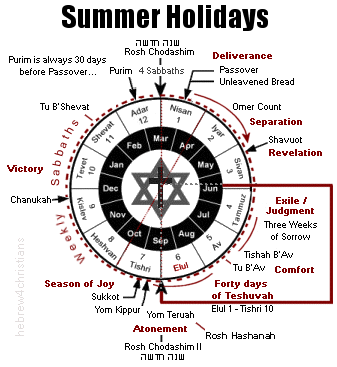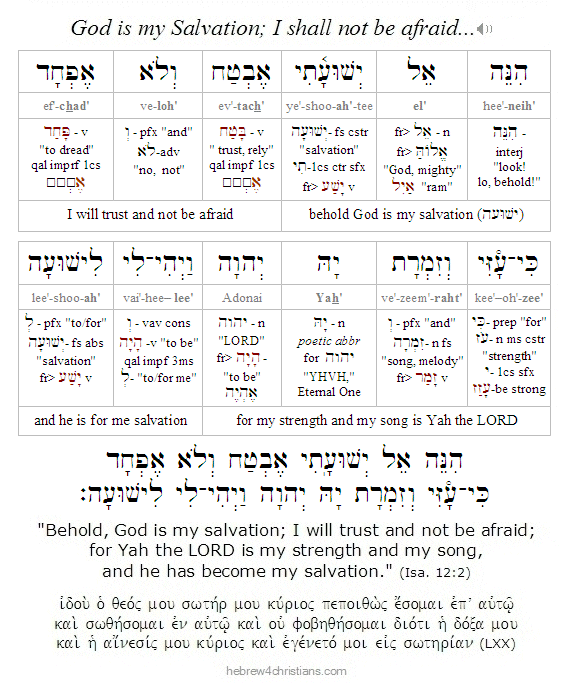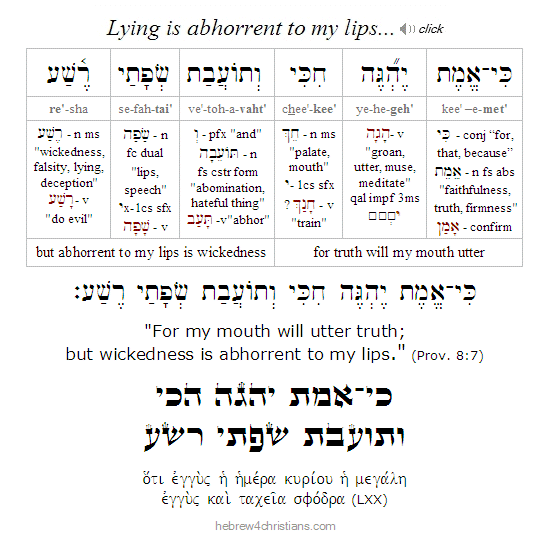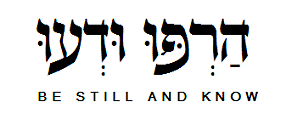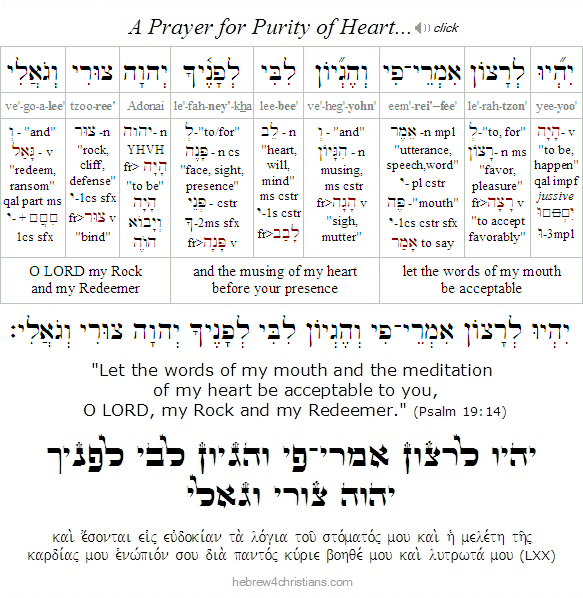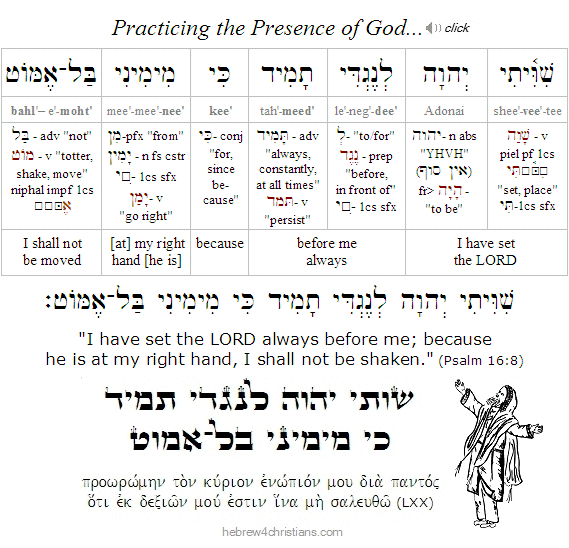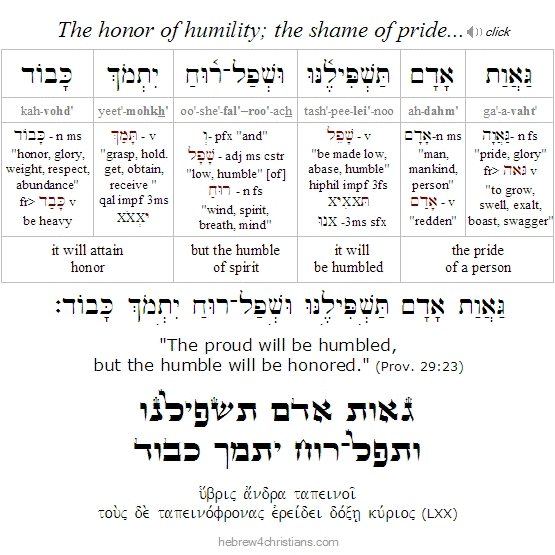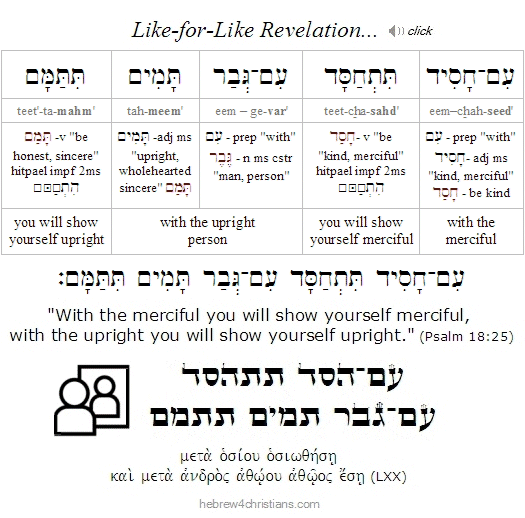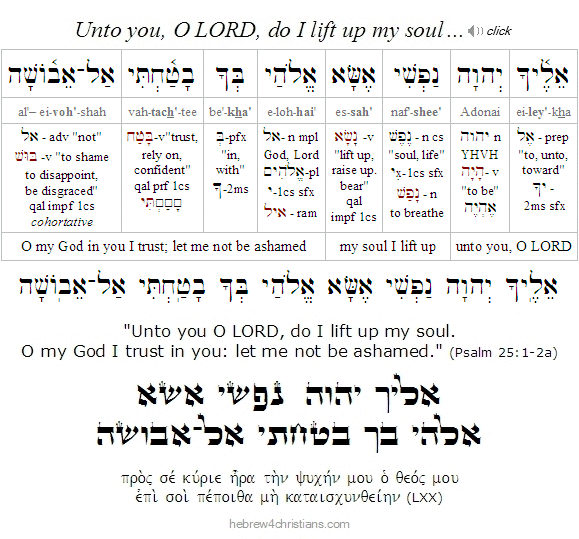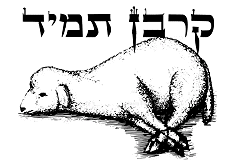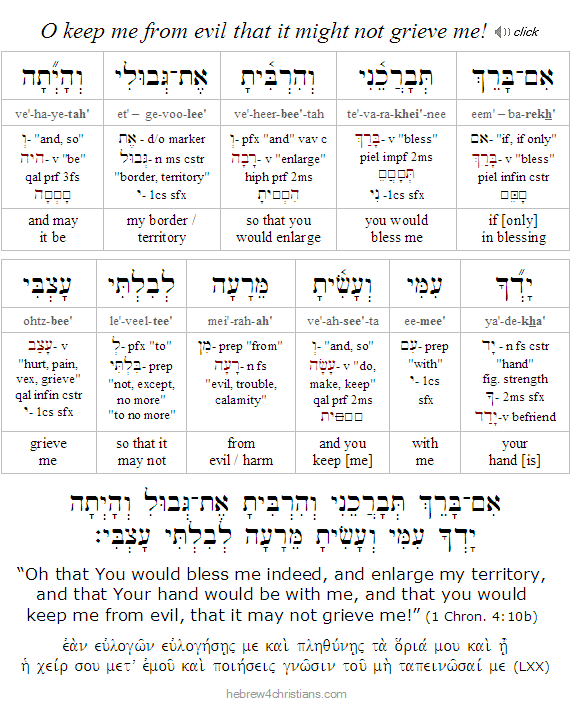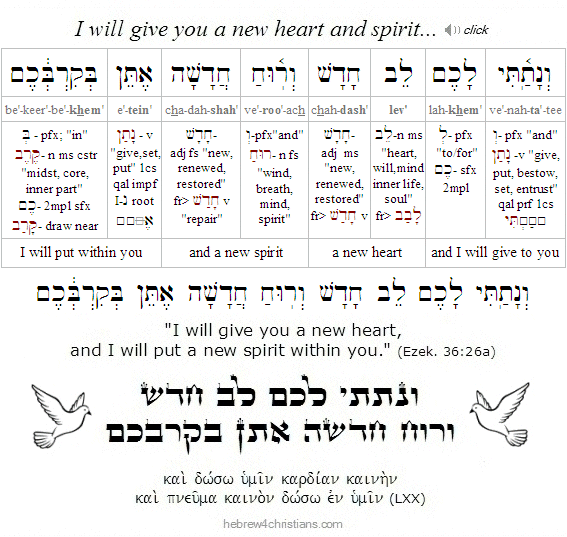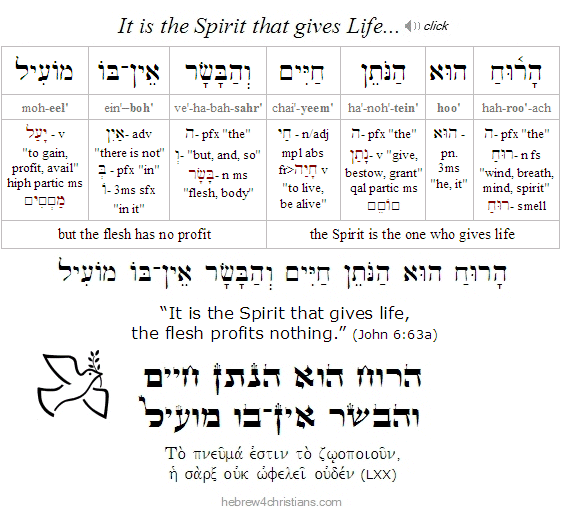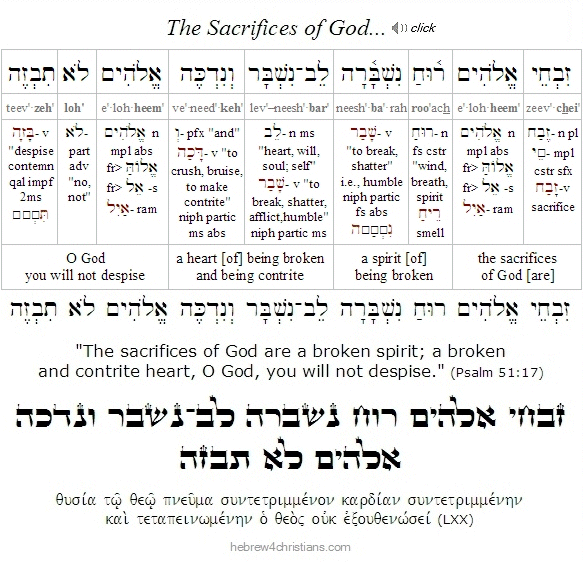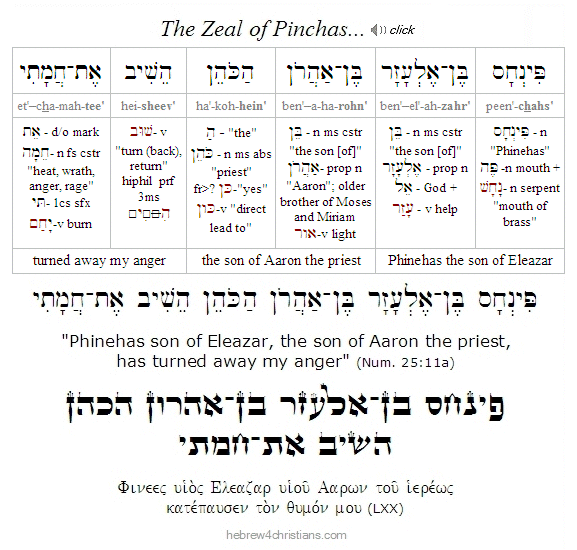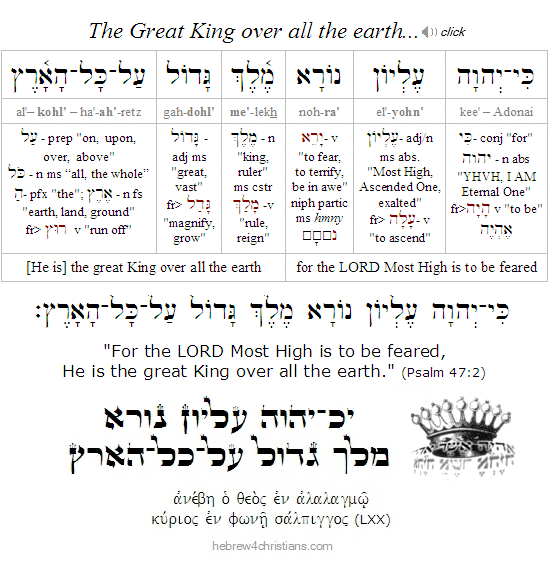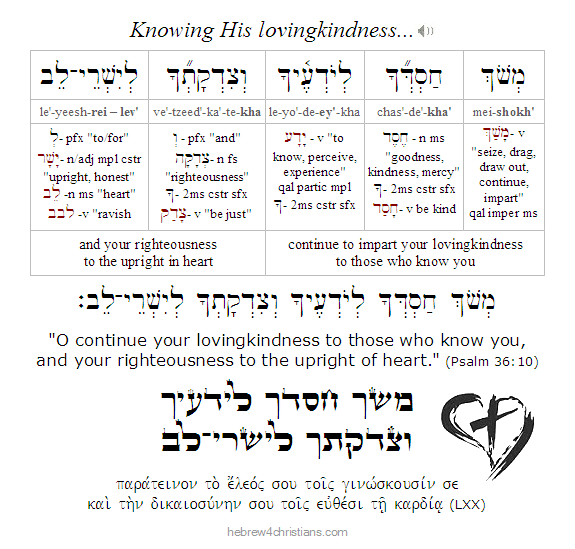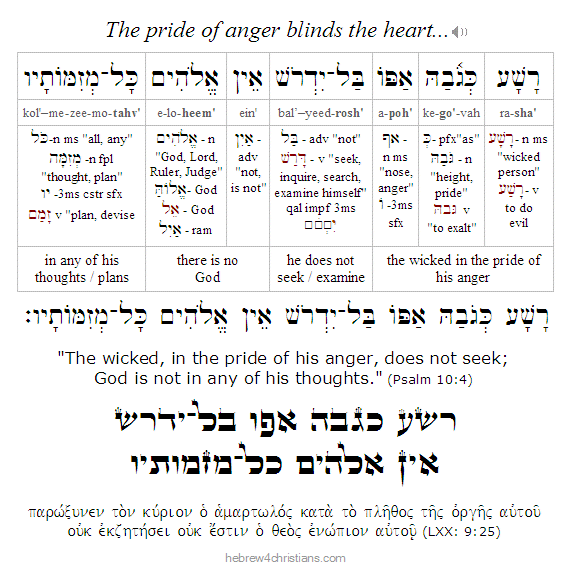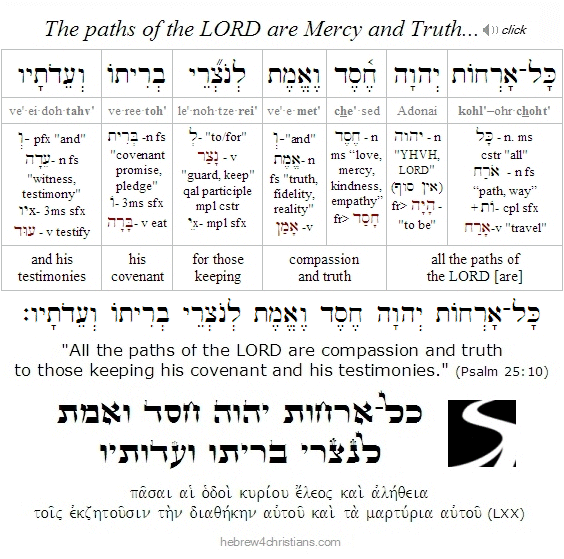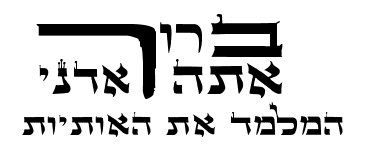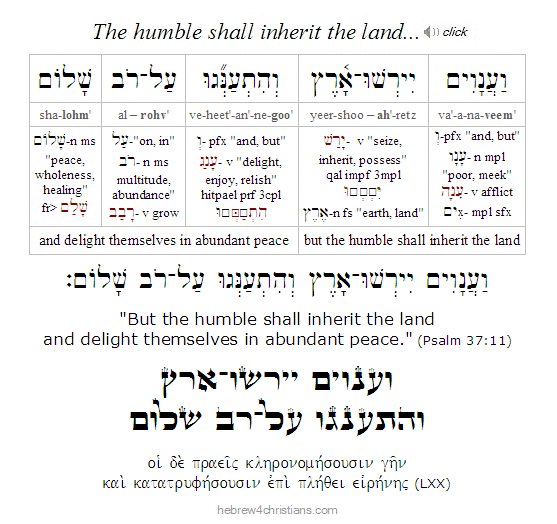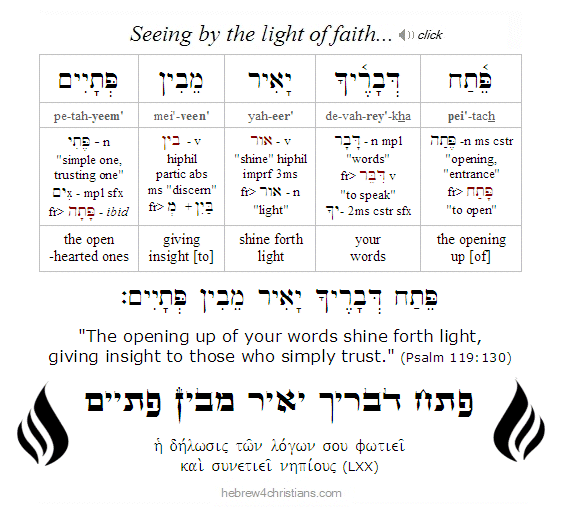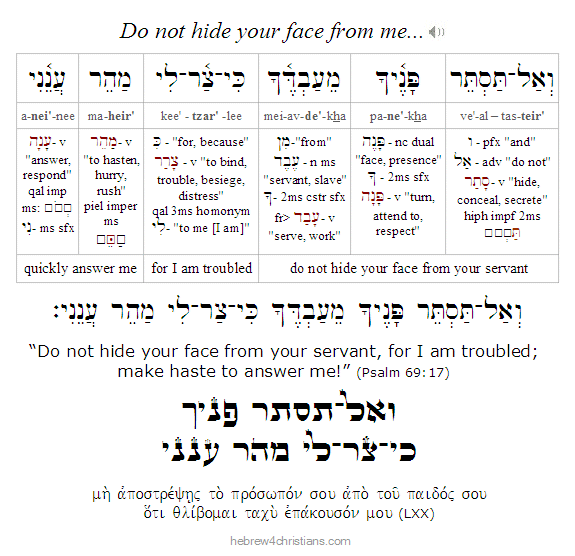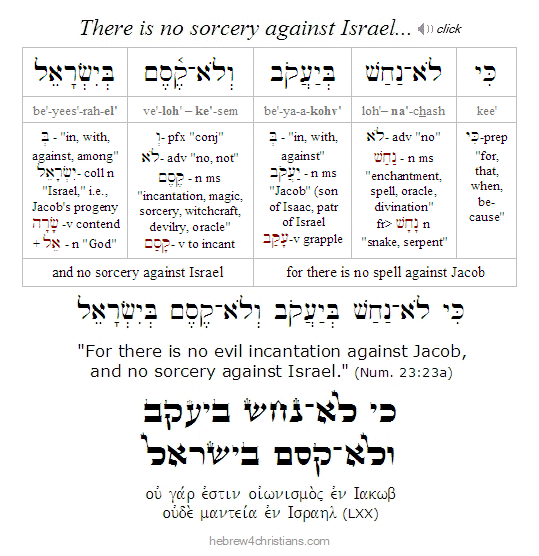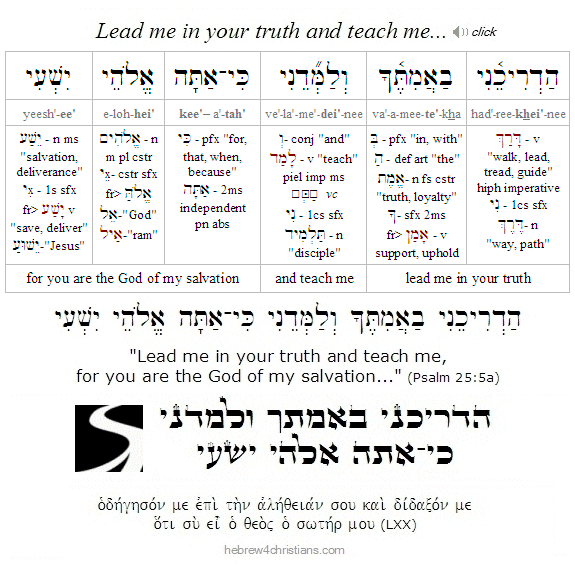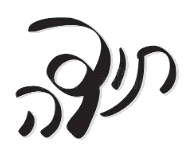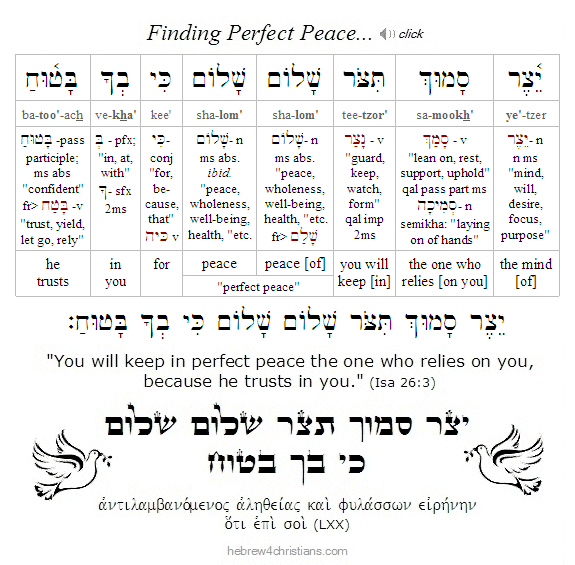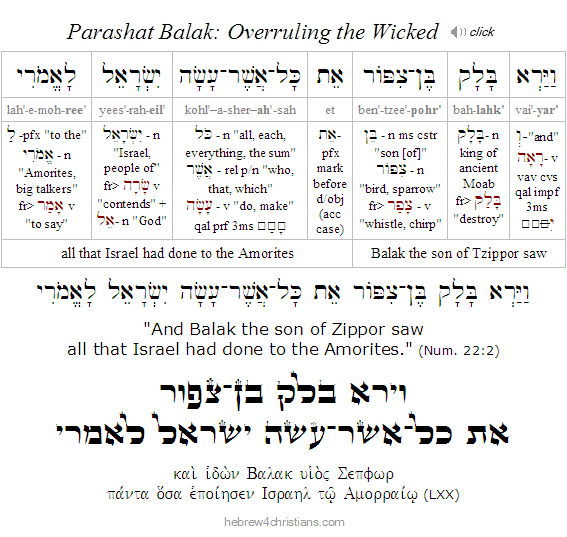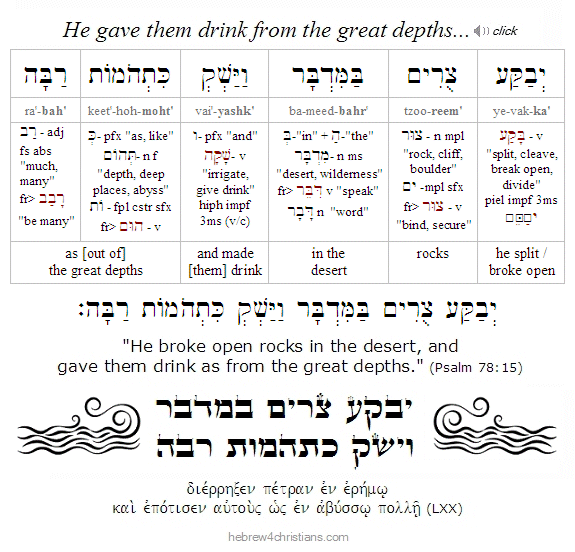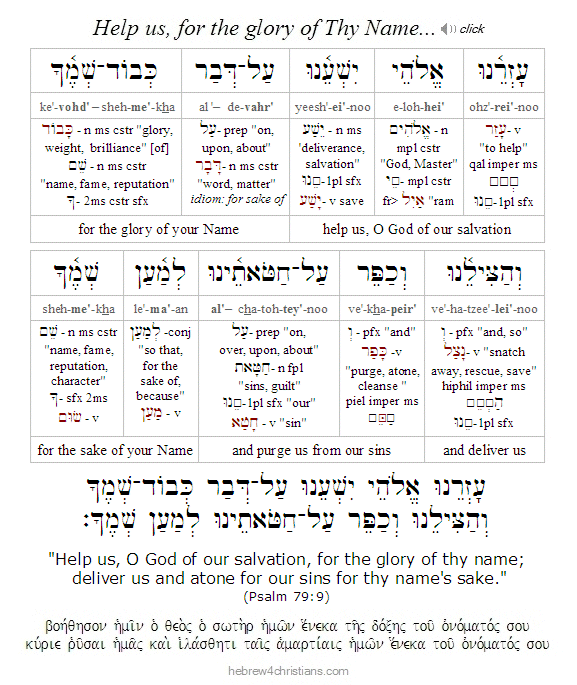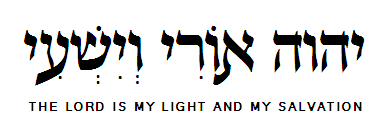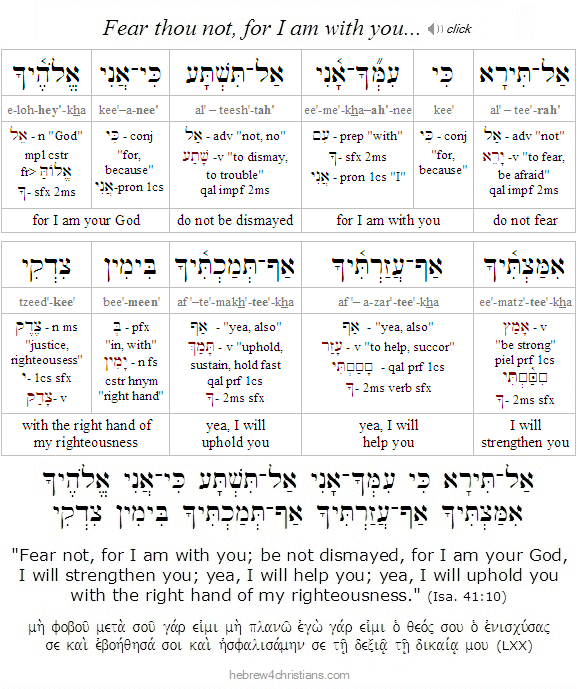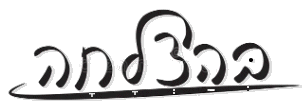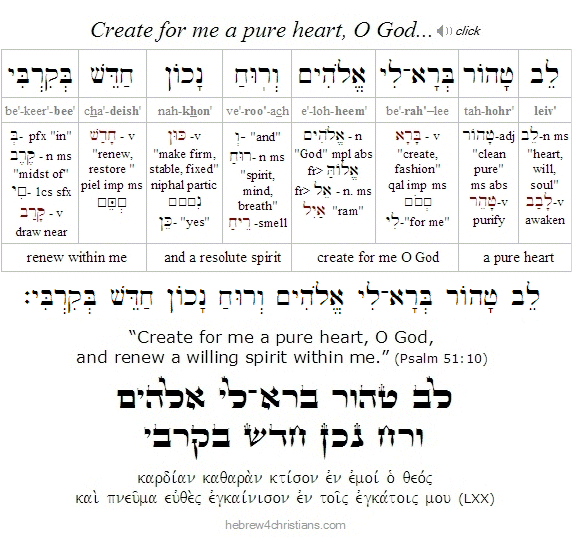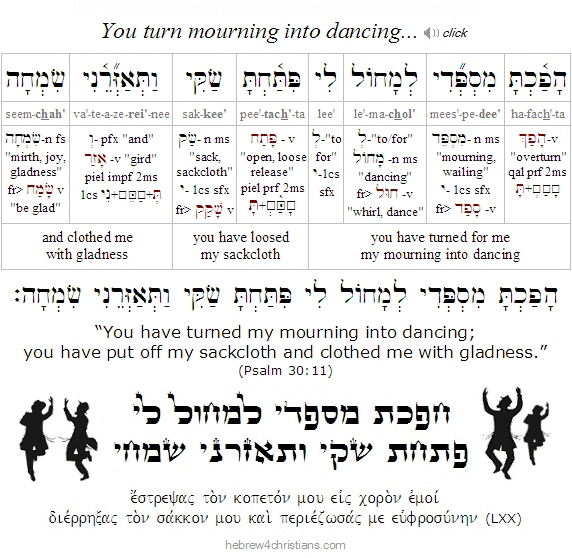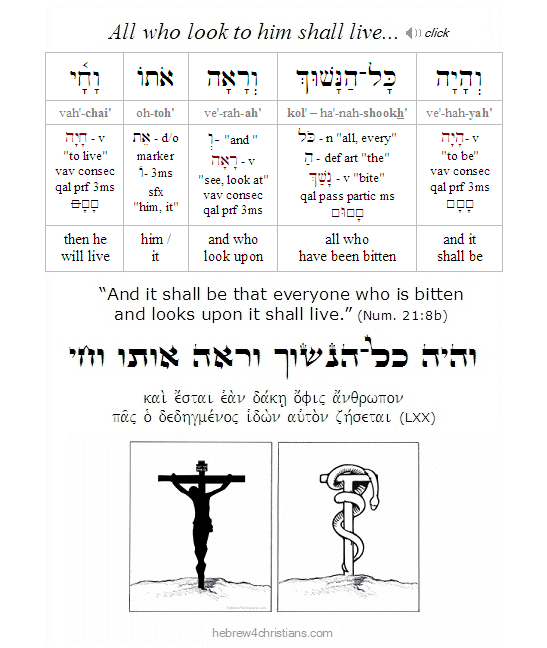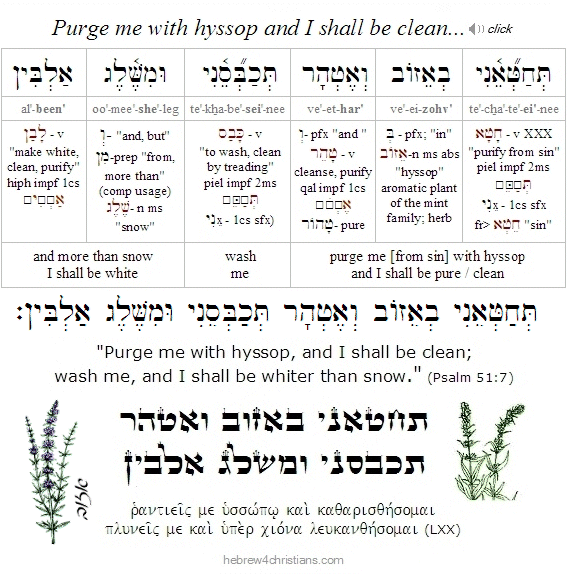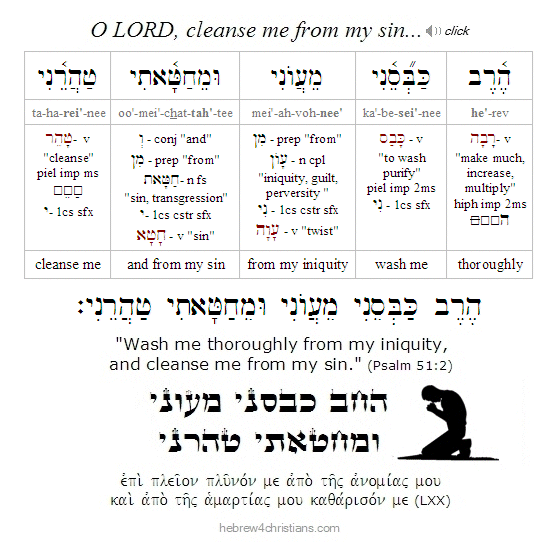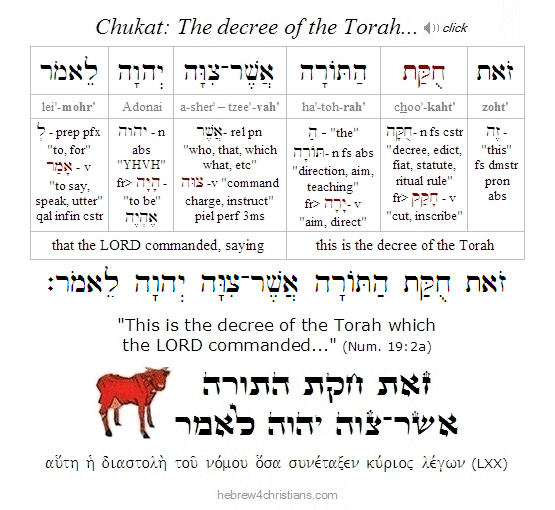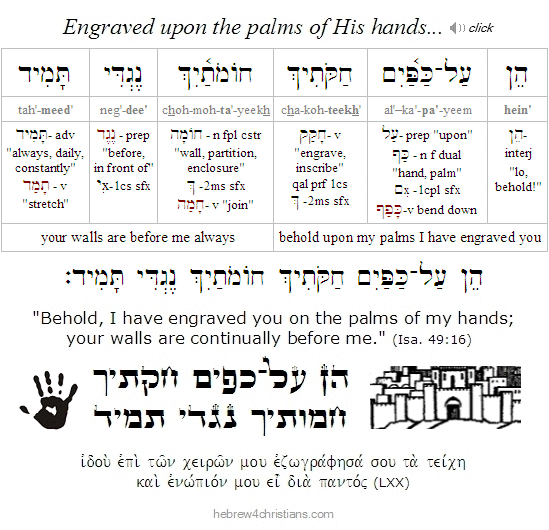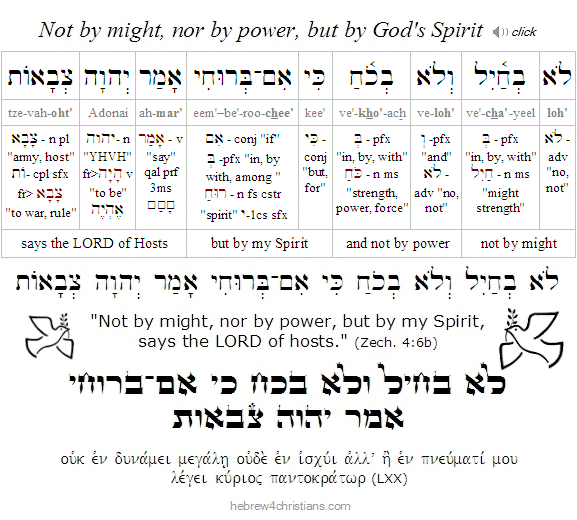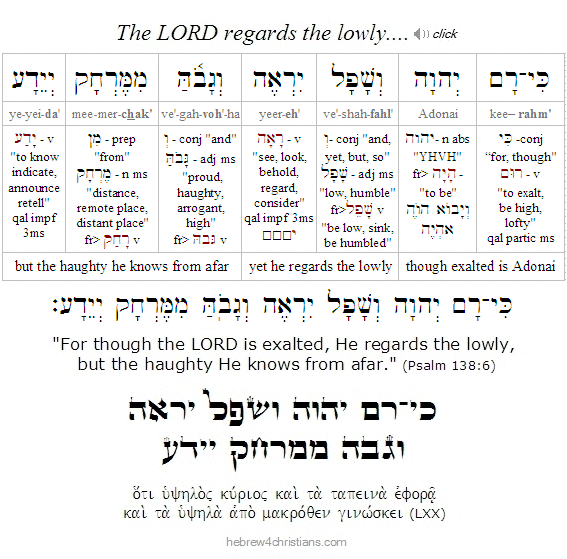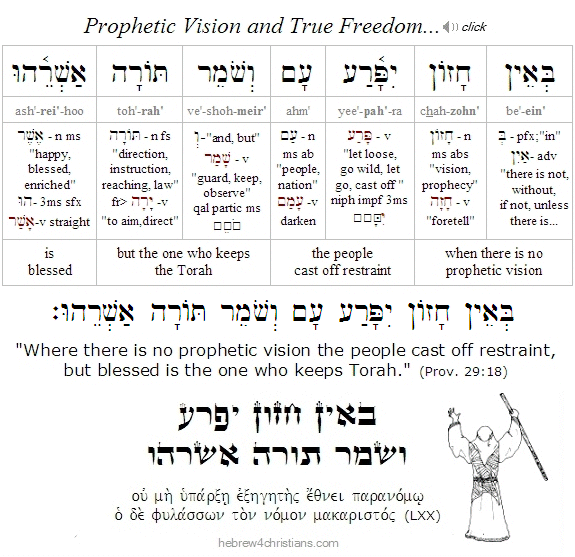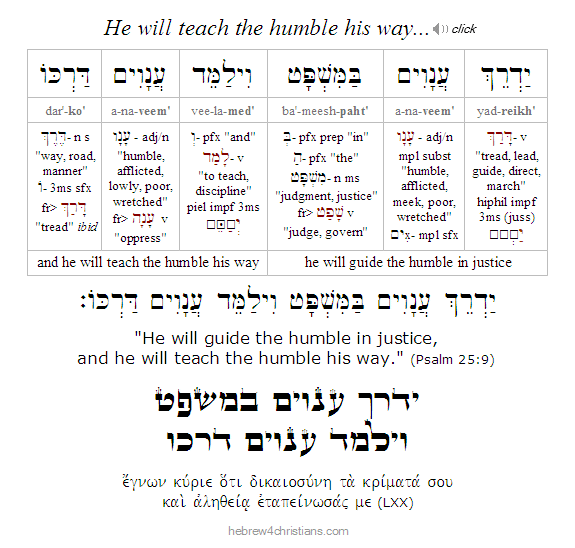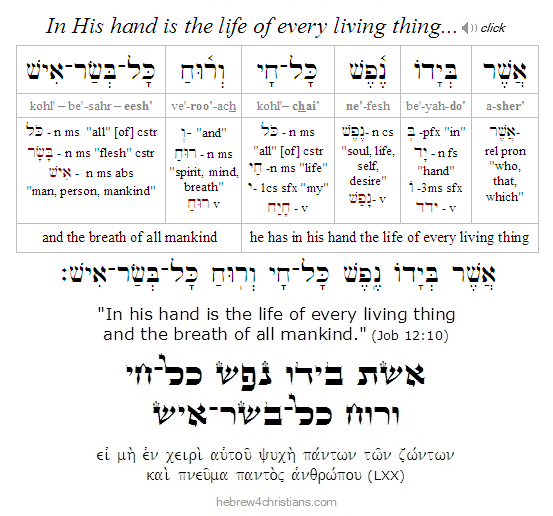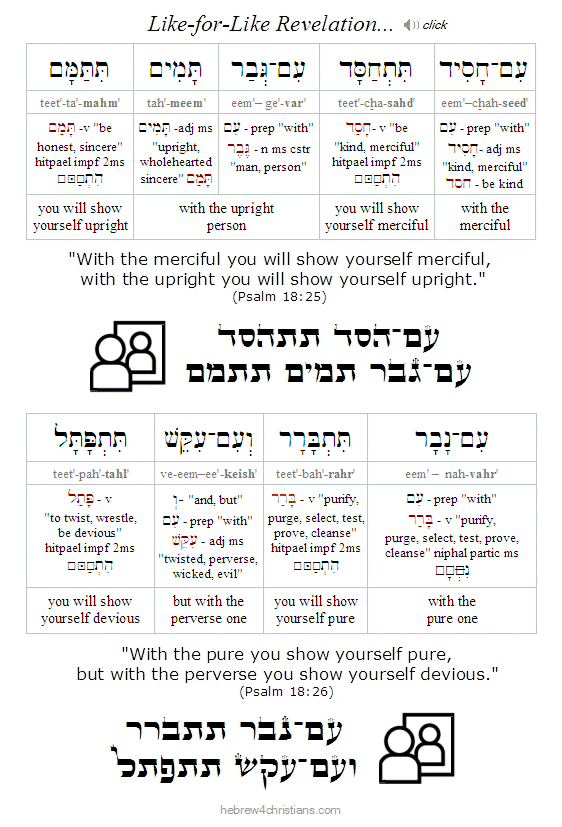|
Jewish Holiday Calendar
For July 2024 site updates, please scroll past this entry....
In the summer there occurs a three week period of mourning that begins with the Fast of Tammuz and ends with Tishah B'Av. The last nine days of this three week period (i.e., from Av 1 until Av 9th) are days of increased mourning. However, after this somber time, the romantic holiday of Tu B'Av, the 15th of Av occurs. Summer ends with the 30 days of the month of Elul, a yearly season of teshuvah (repentance) that anticipates Rosh Hashanah and the fall holidays. The 30 days of Elul are combined with the first 10 days of the month of Tishri to create the "Forty Days of Teshuvah" that culminate with Yom Kippur.
Because they occur between the spring and fall holidays, the summer holidays help us prepare for the second coming of the Messiah:
The Summer Holidays:

Note that in accordance with tradition, holiday dates begin at sundown. Moreover, some holidays may be postponed one day if they happen to fall on the weekly Sabbath:
- Month of Tammuz (Fri. July 5th [eve] - Mon. Aug. 5th [day])
- Month of Av (Mon. Aug. 5th [eve] - Mon. Sept. 2nd [day])
- Month of Elul (Mon. Sept. 2nd [eve] - Wed. Oct. 2nd [day])
- Month of Tishri (Wed. Oct. 2nd [eve] - Thur. Oct. 31st [day])
Note: For more about the dates of these holidays see the Calendar pages....
July 2024 Updates
Note: If any page content appears to be missing, please refresh the page...
Witness of the Spirit...
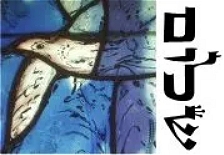
07.31.24 (Tammuz 25, 5784) "Because you are his children, God has sent the Spirit of his Child into your hearts, crying, "Abba! Father!" (Gal. 4:6). Note here the Spirit does not cry out using "esoteric" or magical names for God, nor does the Spirit refer to one of God's many titles based on the divine attributes, but instead uses a term of intimacy and profound trust. After all, the word "abba" (אַבָּא) is not so much a name for God as it is a claim about who you are -- it is a confession that you belong to the Lord as his beloved child...
Throughout his ministry Yeshua referred to the LORD simply as his "Father," though he used the intensive address "Abba, Father" (Ἀββᾶ, ὁ πατήρ) just before his arrest and crucifixion, that is, during his intercession at Gethsamane (גַּת שְׁמָנִים), near the olive oil press on the Mount of Olives where the anointing oil for the Temple (שֶׁמֶן הַמִּשְׁחָה) was made, and therefore he called upon "Abba, Father" while in deep suffering and tribulation of heart (Mark 14:36). "Take this cup away from me. Yet not what I will, but what you will..." The mixed dialect of Hebrew and Greek here (i.e., Ἀββᾶ, ὁ πατήρ) indicate his identification with both the Jewish people and the Gentiles who would be united in his passion, as it was prophesied in the Holy Scriptures: shalom shalom la'rachok vela'karov: "Peace, peace, to him who is far off and to him who is near," says the LORD; "and I will heal him" (Isa. 57:19, Eph. 2:15).
Understanding God as your "father" is an intimate matter of the heart, an inner cry or groan coming from the miracle of spiritual rebirth. Like the divine name El Shaddai that connotes God as our Mother, "the Spirit bears witness to our spirit that we are God's children" (Rom. 8:16).
Hebrew Lesson
Isa. 12:2 Hebrew reading (click):
The Central Thing...

07.31.24 (Tammuz 25, 5784) From our Torah portion this week (i.e., Mattot) we read: zeh ha'davar asher tzivah Adonai (זה הדבר אשׁר צוה יהוה), "This is the thing the LORD has commanded" (Num. 30:1). The language here seems to suggest that there is only one matter that God has commanded, namely, to speak truth and to be faithful in our promises (Num. 30:2). This is because the sacredness of our word is the foundation for all our other responsibilities. After all, if our word is equivocal, it is unclear, unreliable, undecided, and therefore ultimately meaningless.... Insincere words are without genuine commitment, and the lack of decisiveness undermines all Torah. זה הדבר אשׁר צוה יהוה - "This is the thing the LORD has commanded," namely, to honor the truth; to keep faith in God's word; and to hold sacred your commitment before God. May the Lord help us be people of righteousness and truth. Amen.
Hebrew Lesson
Proverbs 8:7 Hebrew reading (click):
Be Still and Know...
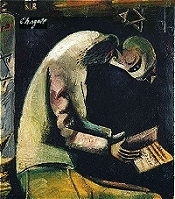
07.30.24 (Tammuz 24, 5784) "Be still and know that I am God..." (Psalm 46:10). This is something you must do; you must make sacred space to know the Divine Presence; you must quiet your heart and "set the Lord before you" (Psalm 16:8); you must still those anxious thoughts that weigh in upon you, creating pressure and "dis-ease."
For a moment, let go of your will, your desires, your fears... Confess your frustrated attempts to control the world; abandon the insanity of your self-rule.
Worry is a place of exile and pain. Since God's Name (יהוה) means "Presence" and "Love," being anxious is to "practice the absence of God's presence" instead of practicing his presence...
A divided house cannot stand. Where it is written, "cast all your anxiety on him because he cares for you" (1 Pet. 5:7), the word translated "anxiety" comes from a verb that means to divide into pieces. Bring your brokenness to God – including those distractions that make you distracted, ambivalent and afraid – and receive God's healing for your divided heart.
"Be still and know that I am God..." Notice that the Hebrew verb translated "be still" (i.e., rapha: רפה) means to "let go," to stop striving, stop complaining, and to surrender categorically everything to the care of God (Rom. 8:28).
Breath out a deep sigh and imagine leaning backward into the welcoming arms of God. "Being still" means letting go of your "need" to control things. Relax your hold and rely on God's care for your life instead.
Yeshua taught us to "take no thought" for tomorrow and its concerns (Matt. 6:34). The past is gone, after all, and the future is God's business: all you have is the present moment to call upon our Lord. Be faithful in the present hour, then, asking God for the grace and strength you need to endure yourself and engage the task at hand. In this way you will experience the peace of God "which surpasses all understanding" (Phil. 4:7).
"Be still and know that I am God..." Prayer is a type of listening (shema), a turning back to know the message of God's love and hope in Messiah. The Hebrew word "teshuvah" (תְּשׁוּבָה) means an answer or response to a question. God's love is your question, and your heart's response is the answer. In order to trust him you must push beyond your fear to know him.
Some of us may find it difficult to trust, to open our heart to receive grace and kindness. For those wounded by abandonment, it can be a real struggle to hear the voice of God calling you "beloved," "worthy," "valued," and "accepted." When you find faith to receive God's word of love, however, your heart comes alive and you begin to heal... Yeshua speaks words of comfort: "Blessed are those who have not seen and yet still believe" (John 20:29), and this includes those with secret wounds that remain a source of sorrow: blessed are you when you believe.
Hebrew Lesson
Psalm 46:10 reading (click):
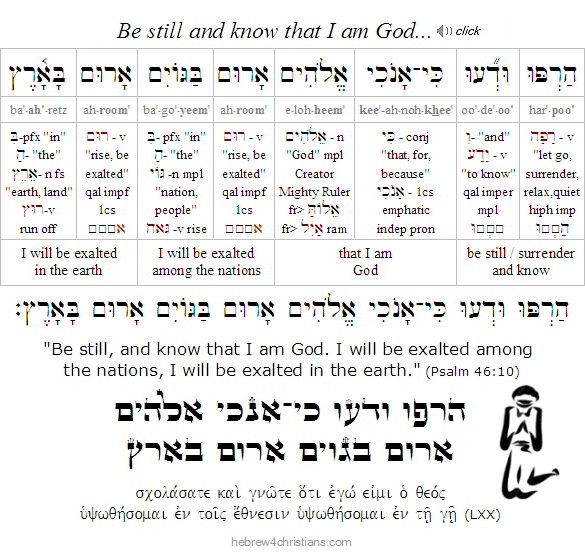 |
Quieting your heart allows you to hear the holy Spirit's whisper: "It is I; do not be afraid..." Once the storm of anxiety dissipates, your heart can access the truth of God. The Spirit asks us to do teshuvah: "In returning and rest you shall be saved; in quietness and in trust shall be your strength" (Isa. 30:15).
The Reign of God's Spirit...
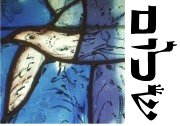
07.30.24 (Tammuz 24, 5784) Yeshua told his followers that the Kingdom of God (i.e., mamlekhet Adonai: ממלכת יהוה) is "within you" (Luke 17:21). This teaches us that the reign of the Spirit is not to be found "out there," nor is the kingdom to be regarded as a political structure of this world, but is realized in spiritual relationship - namely, in redeeming communion between the LORD God with your heart and your heart with the LORD God: וְאָהַבְתָּ אֵת יְהוָה (Deut. 6:5).
When we learn to believe clearly, that is, when informed by the truth of God's salvation and yielding to the authority of his heart, Yeshua says we experience the divine Presence within and among ourselves (John 8:32). As we turn to God, we understand that who we are is more vital than our outer appearance and contingent circumstances, and even more important still is who we are in relation to the blessing of our Heavenly Father. Life in the kingdom means having a new identity, being a new creation (בְּרִיָּה חֲדָשָׁה), and that changes everything (2 Cor. 5:16-17).
Hebrew Lesson
Isaiah 41:3 Hebrew reading:
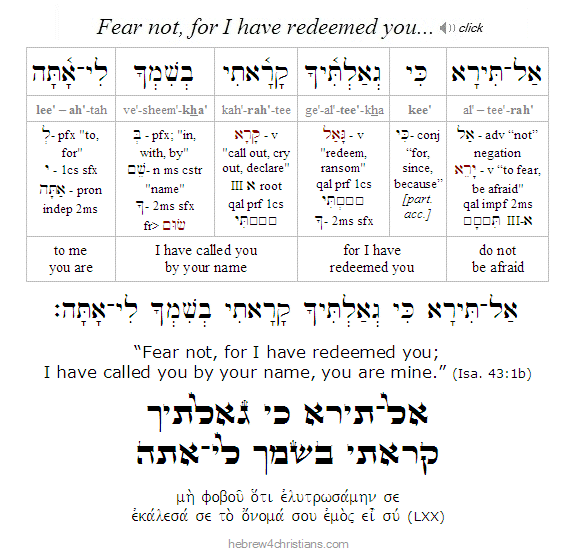 |
Guarding your Tongue...

07.30.24 (Tammuz 24, 5784) Our Torah portion this week (i.e., Mattot) begins with Moses instructing the leaders of the tribes, saying: "If a person makes a vow (נֶדֶר) ... he shall not break his word; but he shall do according to all he has said" (Num. 30:2). Notice that the phrase "break his word" literally means to profane (חָלַל) his word, which implies that breaking a promise is a type of profanity or spiritual defilement... If we do not honor and respect our words, we lose a sense of meaning, and the substance of what we say and think becomes unstable. Such double-mindedness leads to shame, since without inner conviction we become inwardly divided and fragmented, so that we no longer trust ourselves... Being honest (i.e., yashar: יָשָׁר) implies that what we say and what we mean are unified. An honest person doesn't play games with words but understands that communication is a sacred trust...
We have a moral obligation to speak truth to others. This is called dibbur emet (דברי אמת) in Hebrew. Dibbur emet, or "speaking truth," is the duty to use words and language with integrity, compassion, and justice. We abuse language when we gossip, slander, or express contempt to others, and therefore the Torah urges us to practice "shemirat lashon" (שמירת לשון), or "guarding of the tongue" (Psalm 34:11-18). Our Lord Yeshua warned us not make oaths but likewise taught that we should be trustworthy with our words: let your "yes" mean yes, and your "no" mean no (see Matt. 5:37). The talmud agrees by saying that 'no' is an oath and 'yes' is an oath." Our words are to be regarded as sacred, a confession of truth. God has made us inviolable promises, and we are never to play games with that. Just as His word is sacred, so we should strive to be sacred in our speech, too: "I tell you, on the day of judgment people will give account for every careless word they speak, for by your words you will be justified, and by your words you will be condemned" (Matt. 12:37).
The Torah states, "You shall not put a stumbling block (מִכְשׁוֹל) before the blind" (Lev. 19:14). In addition to its literal meaning, the word "blind" figuratively refers to a person unaware of all the facts and who is therefore made vulnerable. Someone who misdirects the blind deceives them, and this violates the 9th commandment not to bear false witness (Exod. 20:16; 23:1). Such deception is called genevat da'at (גְּנֵבַת דַעַת), or "stealing the mind," since it defrauds the other person's trust. For example, it is common practice for politicians to disclose only what they think others need to know, and therefore they offer incomplete versions of truth for the sake of their own self-serving interests. Lying to others is a violation, then, of both the commandment not to steal and the commandment not to bear false witness. "The righteous person hates lies" - דְּבַר־שֶׁקֶר יִשְׂנָא צַדִּיק (Prov. 13:5).
Hebrew Lesson
Proverbs 13:5 reading (click):
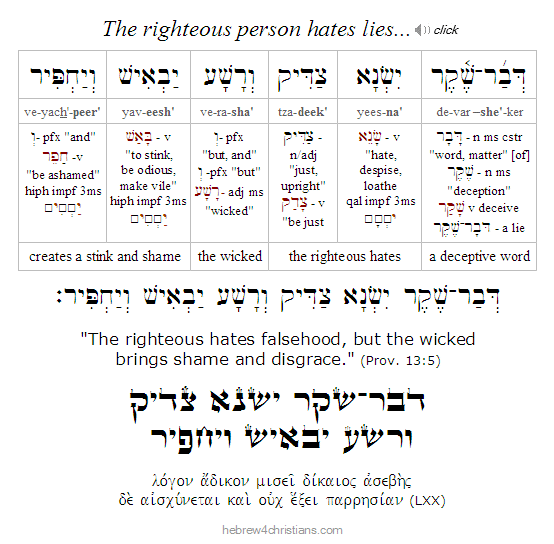 |
"Deliver me, O LORD, from lying lips, from a deceitful tongue" (Psalm 120:2). The sages say that the virtue of eminut (אֲמִינוּת), or trustworthiness, begins with learning to trust others... Parents are therefore responsible to fulfill their commitments to their children. Rabbi Zera said, "One should not say to a child, 'I will give you something' and then not do so, since that teaches the child to lie" (Sukka 46b). People learn to lie from a sense of betrayal, from the mismatch between professed words and reality. The breakdown of trust leads to the evasive use of words to protect ourselves. We tell others what we think they want to hear or we mislead them to keep ourselves safe. Breaking promises wounds others, and children can learn to become hardhearted, untrusting, and fearful of intimacy as a result.
Hebrew Lesson
Psalm 19:14 reading (click):
The Sanctity of your Heart...

[ The following entry concerns this week's Torah reading, parashat Mattot-Masei... ]
07.29.24 (Tammuz 23, 5784) From our Torah portion this week (i.e., Mattot) we read: "Speak to the children of Israel, and say unto them, 'When ye are passed over into the land of promise… drive away all the inhabitants of the land before you; destroy all their carved images, all their molten images, and demolish their high places'" (Num. 33:51-52).
The Hebrew term for idolatry is "avodah zarah" (עֲבוֹדָה זַרָה), which literally means strange or "foreign" worship... The worship of anything other than the true God, whether it is pleasure, money, fame, control, security, self-improvement, health, religion, etc., is regarded as foreign, since it alienates us from the truth of reality. We were created to be in relationship with God but we lose sight of this truth whenever elevate what is finite to the status of the infinite. Indeed idolatry is the substitution of what is not-god (לא־אֵל) for the sacred, absolutizing the present and worshiping the temporal. Since our greatest good is found in the eternal verities of the divine communion, the Lord cannot give us an absolute good apart from Him, since there literally is no such thing. "No one can serve two masters," Yeshua said, and "a divided house cannot stand." For our own good, then, God necessarily is the Ultimate Concern of our life, and he wants to spare us the pain, disappointment, and trauma of being double-minded, disintegrated, and full of inner conflict. Spiritual warfare therefore means taking every thought captive before the bar of God's truth, rooting out and destroying all our inner idols so that we can be delivered from the anguish of uncertainty and ambivalence.
What is at stake here is your inner life, or rather the threat of the disintegration of your deepest essence into a fragmented multiplicity without center... The soul must be grounded in Reality or it is lost, dissipated in existential dread and despair. Yeshua said that when your eye is "single" (ἁπλοῦς), your whole being will be full of light (Matt. 6:22), which means that being single-minded and wholehearted unifies and heals the soul.... Being pulled in opposite directions is both painful and debilitating, for there is no overarching reason to direct the will in its decisions. Hating and loving the good is the ambivalence of despair. Being both willing and unwilling weakens the soul, but seeking the good and making God your ultimate concern binds up the broken heart and centers the will. "Your faith has made you whole..."
The Voice of Wisdom speaks: "Guard your heart with all vigilance, for from it flow the springs of life" (Prov. 4:23). The heart, that is, the willing and desiring center of the self, is to be proactively guarded, and for this sacred task God offers us heavenly comfort and resolve. Courage does not chase away or deny fear and despair, but instead gives us determination to persevere despite these feelings. "Why are you cast down, O my soul, and why are you in turmoil within me? Hope thou in God" (Psalm 42:11). Courage expresses hope in the midst of the struggle; it finds strength to confront pain, danger, or grief with God's help. Courage is grounded in the decision to trust that God is with us, despite our circumstances or feelings of abandonment. How you choose to guard your heart from the corruption and hardness of the world will determine the "road" of your life. If you do not care to keep your heart open and soft, you will become cynical, weary, and more and more selfish. Your way will be lonely, suspicious, and dangerous. If, however, you keep yourself from the hardness of unbelief, you will experience compassion, encouragement, and the joy of loving others.
Hebrew Lesson:
Proverbs 4:23 Hebrew reading (click)
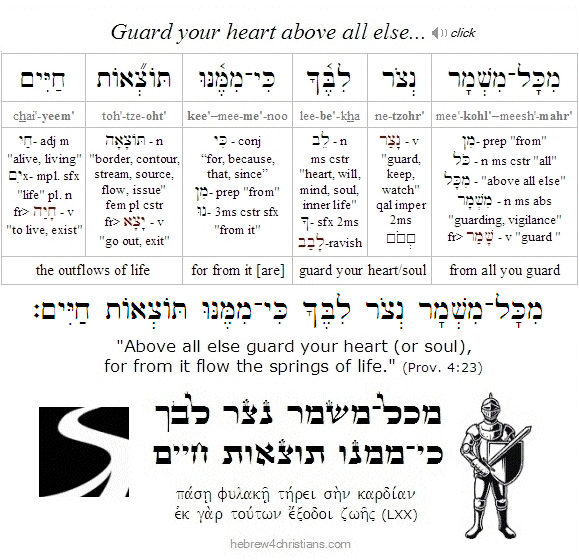 |
Seeing God's Glory...
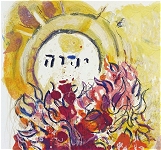
[ "To become sober is: to come to oneself in self-knowledge and before God as nothing before him, yet infinitely, unconditionally engaged." - Soren Kierkegaard ]
07.29.24 (Tammuz 23, 5784) The essence of temptation is distraction. Sometimes it's not the obvious lusts and allurements of the world that tempt us, but something more sinister, namely the slow process of being seduced away from what is most essential to our lives. God's truth should weigh upon our every thought and deed, but through various forms of distraction and self-concern we lose sight of this until he is no longer a primary factor in our daily thinking.
The Hebrew word for "glory" (i.e., kavod: כָּבוֹד) implies "heaviness" and significance. It is of "grave" concern, and regarding the LORD implies fear, awe, respect, honor, and even dread. In some cases it can imply "excessiveness" or "immeasurability." This is what is meant by the "weight of glory": God has infinite worth and value, and we do not know Him as we might know various things in the universe, but as the Holy One (הקדוש), the most important being in our lives (and in any possible world). God is of no significance if he is not of utmost significance, or as C.S. Lewis said: "Christianity, if false, is of no importance, and if true, of infinite importance. The only thing it cannot be is moderately important."
How does the truth of God "weigh in" on your life? Is it a source of magnetic attraction that directs and guides your way, or is divine truth incidental to your thinking? Is God an "afterthought" or a starting point for your decisions? Do you "seek first" the kingdom of God? (Matt. 6:33). How much do you allow God to affect your daily thought life and speech? Is relationship with God the priority of your existence? (Deut. 6:5). Is God the "ultimate concern" of your life, or is God essentially "weightless" or insignificant regarding the course of your life?
The great Commandment not to take the Name of the LORD "in vain" (see Exod. 20:7) implies that we must affirm the sanctity, meaning, significance, and worth of life itself. We must never live as though God does not exist, or, to state this positively, we must "set the LORD" always before us (Psalm 16:8). We must not waste our lives. It is therefore forbidden to ignore the miracle of existence, to scoff at the value of life, or to debase ourselves by refusing to receive the truth. We are to take every thought "captive" to the reality of the Messiah (2 Cor. 10:5). Everything belongs to God, and every moment that we have is beholden to Him...
Hebrew Lesson
Exodus 20:7a Hebrew reading (click):
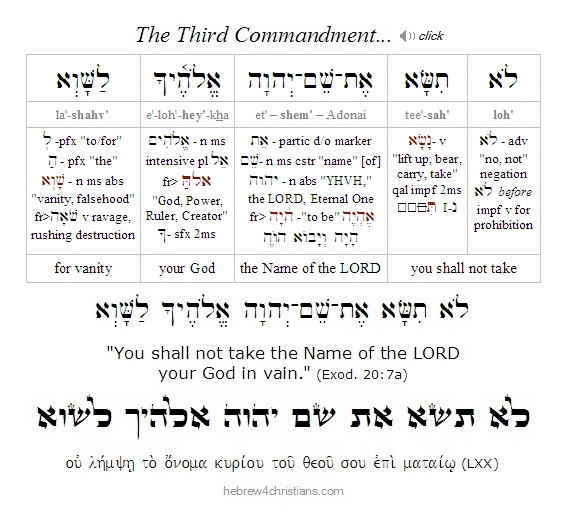 |
Finding deliverance from profane thinking requires concentrated focus, or "kavanah" (כַּוָנָּה). As it is written: "We destroy arguments and every lofty opinion raised against the knowledge of God, and take every thought captive to obey Messiah" (2 Cor. 5:10). We are instructed to "bring down reasonings" (λογισμοὺς καθαιροῦντες) and every high thing that is lifted up against the knowledge of God (κατὰ τῆς γνώσεως τοῦ θεου) and to bring every thought "as a captive" to the obedience (ὑπακοὴν, from ὑπό: by, under, + ἀκούω: hear, obey) of Messiah. We can do this negatively by fighting against evil thoughts and censoring the inner evil of our hearts, or we can do this positively by being "captivated" by the words and love of Yeshua, and often we have to do both. This is the deeper meaning of "profanity" - to deny reality, to live in willful ignorance, and to miss the wonder of God's presence. If we sanctify God in our hearts, we will be far less likely to use God's name in vain, of course.
God invites you to come to Him for relationship... Since the LORD is a Person, He wants to know you as a person. He is not interested in formulaic prayers, religious rituals, or your membership at a particular religious organization. God wants to renew your inmost thoughts and heart. Drawing near to God is God's way of drawing near to you... In other words, as you draw near to God, He will draw near and touch you (James 4:8; Psalm 145:18; Isa. 55:6). This is the way of transformation and healing for the depths of our lives.
שִׁוִּיתִי יְהוָה לְנֶגְדִּי תָמִיד
כִּי מִימִינִי בַּל־אֶמּוֹט
shee·vee'·tee · Adonai · le·neg·dee · tah·meed
kee · mee·mee·nee · bahl-e·moht

"I have set the LORD always before me;
because he is at my right hand, I shall not be shaken."
(Psalm 16:8)

This Week's Torah:
Parashat Mattot-Masei...
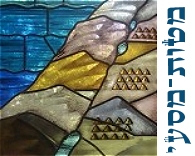
07.28.24 (Tammuz 22, 5784) This week we will read a "double portion" of Torah that concludes Sefer Bamidbar, or "the Book of Numbers." Our first Torah portion, called parashat Mattot (מַטּוֹת, "tribes"), begins with the LORD giving laws and prohibitions regarding the making of vows (nedarim). After this, the Israelites were commanded to wage war against the Midianites for seducing the people to sin at the incident of "Baal Peor." During the ensuing battle, the wicked sorcerer Balaam was killed, as well as five tribal kings of the land of Midian.
The tribes of Reuben and Gad (and half of the tribe of Manasseh) then asked permission to settle in the pasture land of Gilead (on the east of the Jordan), since they had large herds of cattle. At first Moses hotly disapproved of their request, since he feared that the other tribes would lose heart if these tribes stayed behind during the conquest of Canaan. However, when the tribal leaders made a vow to join the fight while their families remained in Gilead, Moses finally agreed.
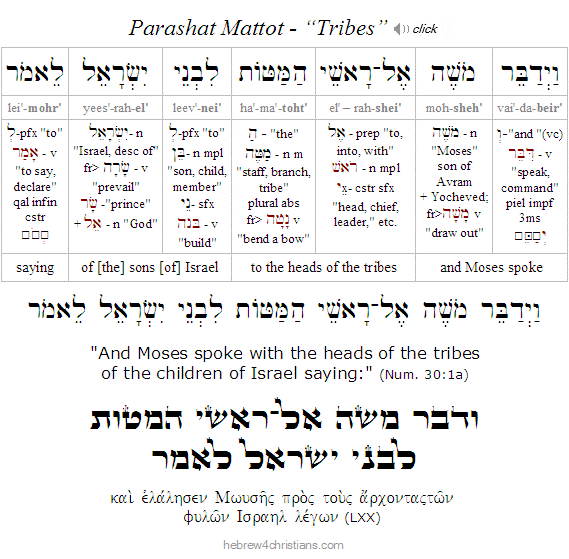 |
In our second Torah portion, called parashat Masei (מַסְעֵי, "journeys"), Moses recounted the various "stations" of the journey, and instructed that when the people crossed the Jordan into the land of Canaan, they were to drive out all the inhabitants and to utterly destroy all traces of their culture and religion. After this, the land would be divided by lot according to tribes of Israel, based on the size of each tribe. God then warned Moses that if the Israelites would not drive out the inhabitants of the land, they would become a "snare" to them, and God would then judge and exile the Israelites as he intended to do to the Canaanites.
The Israelites were then instructed to assign towns with surrounding pasture lands to the Levites. There were to be a total of 42 towns, chosen by lot and distributed throughout the land according to the size of each tribe. In addition, six more cities were to be given to the Levites and designated as "cities of refuge" to which a person who unintentionally killed another may flee to take refuge from an "avenger of blood" (i.e., next of kin). The death penalty required testimony from at least two witnesses and admitted of no "ransom" (plea bargain) to be offered in place of the murderer's execution. On the other hand, a person responsible for involuntary manslaughter of another was required to dwell within the confines of a city of refuge until the death of the High Priest, after which time he was free to return to his home without fear of retribution from an avenger of blood.
The Book of Numbers – and the historical narrative of the Torah itself – concludes with the resolution of the question of legal inheritance in the land just before Joshua would lead the people into the land of Canaan. The book ends with this statement: "These are the commandments and the rules that the LORD commanded through Moses to the people of Israel in the plains of Moab by the Jordan at Jericho."
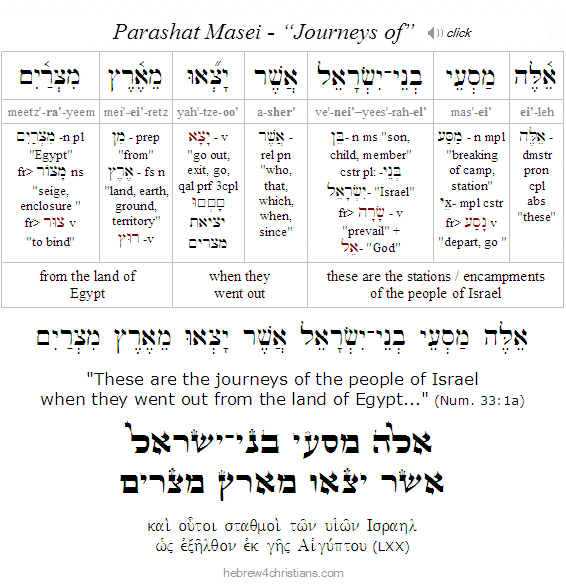 |
Resources:
Feeding God's Heart...

[ The following entry concerns this week's Torah reading, parashat Pinchas... ]
07.26.24 (Tammuz 20, 5784) As I've discussed elsewhere on the site over the years, the climax of the revelation at Sinai was not the giving of the Ten Commandments (עשרת הדיברות) to Israel but was instead the vision of the Altar of the sanctuary (מזבח המשכן). However -- as our Torah portion this week makes clear -- the central sacrifice upon this altar was the daily sacrifice (i.e., korban tamid: קרבן תמיד) of a defect-free male lamb with unleavened bread and wine. The LORD calls this "my offering" (קרבני) and "my bread" (לחמי) [Num. 28:1-8]. In other words, the service and ministry of the Mishkan (i.e., Tabernacle) constantly foretold the coming of the great Lamb of God (שה האלהים) who would be offered upon the altar of the cross to secure our eternal redemption (John 1:29; Heb. 9:11-12).
The sacrifice of the lamb represents "God's food," a pleasing aroma (ריח ניחחי), for it most satisfied the hunger of God's heart (Eph. 5:2). Indeed, Yeshua's offering upon the cross represents God's hunger for our atonement, our healing from the sickness of death, since it restored what was lost to Him through sin, namely, communion with his children. God could never be satisfied until He was able to let truth and love meet (Psalm 85:10).
Sometimes we say that we "hunger for God," but it is vital to remember that it is God who first hungers for us. God desires our love and fellowship. He comes to seek fruit among the trees - but does He find any? He walks in the cool of the day, calling out to us, but are we attuned to hear His voice? Do we accept the invitation to be in His Presence? When God "knocks on the door of your heart" to commune with you, what "food" will you be serving? (Rev. 3:20). Every day we are given an opportunity to "feed God" through expressing faith, hope, and love. Ultimately it is our obedience to the truth is what "feeds" Him: "Behold, to obey is better than sacrifice, and to hearken than the fat of rams" (1 Sam. 15:22).
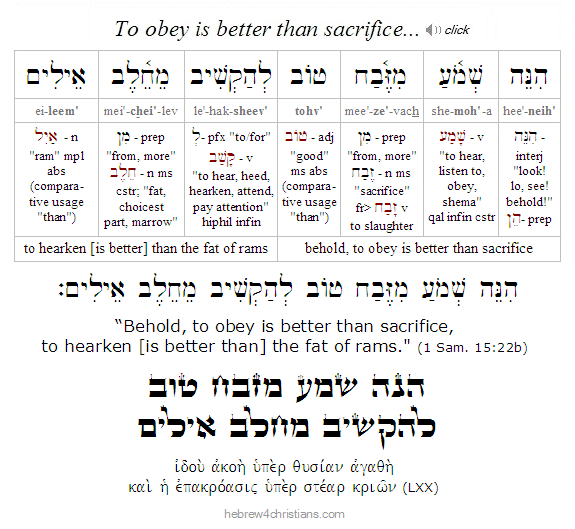 |
We "feed God" by offering heartfelt prayer, by walking in faith, by yearning for Him, by studying Scripture, by participating in corporate worship, by giving tzedakah, by performing acts of kindness (gemilut chasadim) for others, and so on (Heb. 13:15-16). Expressing our love for God is the deepest meaning of teshuvah, which is an "answer" or response to His great love for us (1 John 4:19). Just as God feeds and sustains us through His love, so we "feed Him" by our yearning, our prayers, our praise, and our worship...
For more on this subject, see "The Hunger of God's Heart."
Olam Katan - Small World...
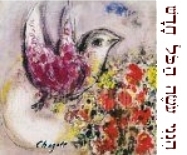
[ "Darkness cannot drive out darkness, only light can do that. Hate cannot drive out hate, only love can do that." - Martin Luther King Jr. ]
07.26.24 (Tammuz 20, 5784) It is written in our Torah portion for this week (i.e., Pinchas), "My offering, my food for my food offerings, my pleasing aroma, you shall be careful to offer to me at its appointed time" (Num. 28:2). Wait. Food for God? What need has the LORD for food? But by this is meant "as you have done it to least of these my brethren, you have done it unto Me" (Matt. 25:40). The offerings you make to tzedakah (giving charity, your time, your kindness, etc.) constitute food presented before the secret place of God's altar...
God created Adam alone, as a solitary being, made in the divine image, to teach us that to destroy a single life is to destroy an entire world, and to sustain a single life is to sustain an entire world. Therefore everyone should say: 'For my sake the world was created' (Talmud). Each of us is olam katan (עולם קטן), a small world that represents the large world. Indeed, one righteous human being can sustain the entire world, as it is written (Prov. 10:25), "the righteous is the foundation of the world" (וְצַדִּיק יְסוֹד עוֹלָם).
On the other hand, balance is of course required here. Each of us is olam katan, a small world, though, as Rabbi Noah of Lekhivitz once wisely said, "if we are small in our own eyes, we are indeed 'a world,' but if we are a 'world' in our own eyes, we are thereby made small." This thought obviously echoes Yeshua's teaching: "Whoever exalts himself will be humbled, and whoever humbles himself will be exalted" (Matt. 23:12).
Hebrew Lesson:
Proverbs 29:23 reading (click):
There are assumptions we bring to the reading of Torah that affect how we read and what we will hear... The sages generally agreed that the greatest principle of Torah is to love your neighbor as yourself (Lev. 19:18), though Ben Azzai further said that even greater is the principle that God created man in His likeness (i.e., bid'mut Elohim, בִּדְמוּת אֱלֹהִים, in "outline" or "silhouette," the word demut [דְּמוּת] is a synonym of tzelem [צֶלֶם], a "shadow" or semblance) since then one cannot say, 'Since I despise myself I can despise another as well; since I curse myself, let the other be accursed as well.' Being made in God's likeness means how we regard ourselves will be the measure we regard even God Himself (1 John 4:20). Therefore the first commandment is always, "I am the LORD thy God..." (Exod. 20:2), since apart from faith, there is no Torah of any kind.
The Power of Forgiveness
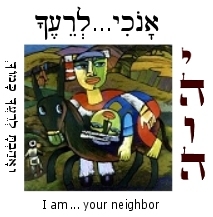
[ "To forgive is to set a prisoner free and discover that the prisoner was you." - Lewis B. Smedes ]
07.25.24 (Tammuz 19, 5784) In the Gates of Repentance it is written: "I hereby forgive all who have hurt me, all who have wronged me, whether deliberately or inadvertently, whether by word or by deed. May no one be punished on my account. And as I forgive and pardon those who have wronged me, may those whom I have harmed forgive me, whether I acted deliberately or inadvertently, whether by word or by deed." Amen...
Yeshua taught us to pray "forgive us as we forgive others," which implies that our forgiveness (of others) is the measure of our own forgiveness. In other words, as we forgive others, so we experience forgiveness ourselves... Forgiveness releases the hurt, the anger, and the disappointment so these feelings do not inwardly consume and exhaust our souls. And yet forgiveness must be self-directed, too, since refusing to forgive yourself denies or negates the forgiveness given from others. Forgiving yourself means admitting that you act just like other people, that you are human, and that you are in need of reconciliation too. We have to move on, past the shame, and to turn back to hope. As a Yiddish proverb puts it, "You are what you are, not what you were..."
It is written, "in many things we offend all," and therefore we must confess our sins one to another to find healing (James 5:16). However the practice of love overlooks a multitude of sins, and if we do not condemn those who offend us, then we will not need to forgive them for their offenses. Walking in God's love sets us free from the slavery of negative emotions such as resentment, bitterness, anger, unresolved grief, and so on.
I love this affirmation and prayer attributed to Eusebius of Caesarea (c. 263-339 AD): "May I be the friend of that which is eternal and abides. May I never quarrel with those nearest me; and if I do, be reconciled quickly. May I never devise evil against anyone; and if any devise evil against me, may I escape uninjured and without any desire to hurt them. May I love, seek, and attain only that which is good. May I wish for the happiness of all and the misery of none. May I never rejoice in the ill-fortune of one who has wronged me. When I have done or said what is wrong, may I never wait for the rebuke of others, but always rebuke myself until I make amends."
"May I, to the extent of my ability, give all needful help to my friends and to all who are in want. May I never fail a friend in danger. When visiting those in grief, may I be able by gentle and healing words to soften their pain. May I respect myself. May I always keep tame that which rages within me. May I accustom myself to be gentle, and never be angry with people because of circumstances. May I never discuss who is wicked and what wicked things he has done, but know good men and follow their footsteps."
Hebrew Lesson
Psalm 18:25 reading (click for audio):
The Will to Believe...
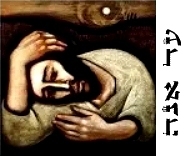
"When you have to make a choice and don't make it, that is in itself a choice." - William James
07.25.24 (Tammuz 19, 5784) The central issue of your spiritual life is the willingness to do God's will, or the willingness to believe, since these amount to the same thing.... Believe what? That God is real, that He has (personally) called you by name, that he has particularly redeemed you by Yeshua's own blood poured out for your sins, and that therefore that your identity and life are bound up with his mercy and truth... Perhaps this message seems too good to be true, and yet it is the heart's duty to take hold of hope and to refuse to yield to despair, as it is written: "Let not love and truth forsake you; bind them around your neck; write them on the tablet of your heart" (Prov. 3:3).
The spiritual danger here is being "pulled apart" in opposite directions, dissipating the soul so that it will not be unified, focused and directed. Both loving and hating the good is a state of painful inner conflict, ambivalence, and self-contradiction. "Who can bring a clean thing out of an unclean? there is not one" (Job 14:4), yet this is our starting point: "I find it to be a law that when I want to do right, evil lies close at hand" (Rom. 7:21). We are often willing and unwilling, or neither willing nor unwilling, and this makes us inwardly divided, weak, fragmented, anxious, and "soulless." An honest faith that "wills one thing" binds the soul into a unity, or an authentic "self." As King David said, "One thing have I asked of the LORD, that will I seek after: that I may dwell in the house of the LORD all the days of my life, to gaze upon the beauty of the LORD and to inquire in his temple" (Psalm 27:4).
The way to be healed of a divided heart is to earnestly make a decision: "Draw near to God, and he will draw near to you" (James 4:8). There are no conditions given here -- other than your raw need to connect with God for help. "Purify your hearts, you double-minded ones" (δίψυχοι, lit. "two-souled ones"); make up your mind and be unified within your heart: "How long will you go limping between two different opinions?" (1 Kings 18:21). You are invited to come; God has made the way; your place at the table has been set and prepared...
Our Heavenly Father "sees in secret.." As William James once said: "The deepest thing in our nature is this region of heart in which we dwell alone with our willingnesses and our unwillingnesses, our faiths and our fears" (James: Is Life Worth Living, 1896). Or as Albert Camus later wrote, "There is but one truly serious philosophical problem, and that is suicide. Judging whether life is or is not worth living amounts to answering the fundamental question of philosophy" (Myth of Sisyphus, 1942).
It is there, in the secret place of the heart, that the sound of the "knock" is either heard or disregarded (Rev 3:20); the stakes are nothing less than everything. May the Lord give us the willingness to do His will and the courage to believe in His love. And may God deliver us from doubt and from every other fear. May we all be strong in faith, not staggering over the promises, but giving glory to God for the miracle of Yeshua our LORD. May we all be rooted and grounded in love so that we are empowered to apprehend the very "breadth and length and height and depth" of the love of God given to us in Messiah, so that we shall all be filled with all the fullness of God (Eph. 3:14-19). Amen.
Hebrew Lesson
Proverbs 3:3 reading (click):
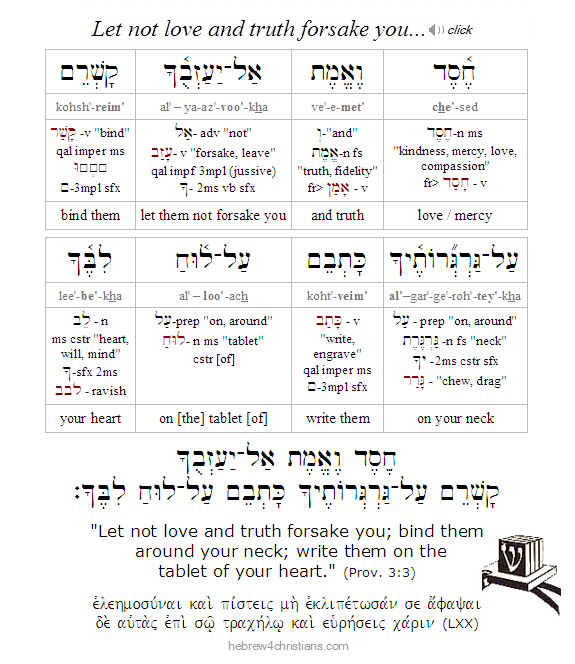 |
True and False Zeal...
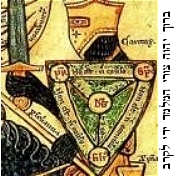
[ "A great many people think they are thinking when they are merely rearranging their prejudices." - William James ]
07.25.24 (Tammuz 19, 5784) You may be entirely sincere in your convictions, but you may be sincerely wrong... In the time of the Second Temple, for instance, the Zealots despised the rule of Rome. Their political hatred caused them to blindly regard anyone who didn't share their passion as a personal enemy. In one of the great tragedies of Jewish history, these Jewish zealots actually killed more Jews than did the Romans themselves! And how many Christians these days "kill" relationships with other believers because of their particular zeal regarding some doctrinal question? I am not suggesting that doctrine is unimportant, of course, but before you pick up that sword to do the business of Pinchas, you might do well to consider your heart's attitude...
"In this respect fundamentalism has demonic traits. It destroys the humble honesty of the search for truth, it splits the conscience of its thoughtful adherents, and it makes them fanatical because they are forced to suppress elements of truth of which they are dimly aware." - Paul Tillich
We need to be careful with our passions. There is a "false zeal" that leads to estrangement and confusion. Withholding love from others is ultimately grounded in an appeal to God as the administrator of Justice. It is an appeal to God as Elohim (אֱלהִים), not as YHVH (יהוה), the Compassionate Source of Life. If we insist on our rights, we appeal to principles of justice, i.e., to God as the Lawgiver. But if we intend to have God be the Judge of others, we must appeal to Him to be our own Judge as well. If we have an unforgiving spirit toward others, we will not receive our own forgiveness (Matt. 6:15); if we are judgmental toward them, we ourselves will be put on trial; if we are cruel and ungiving toward them, we will experience life as hellish, miserable and mean. This reciprocal principle of Kingdom life appears throughout Yeshua's teaching. According to your faith, be it done unto you (Matt. 9:29).
Hebrew Lesson:
Psalm 18:26 reading (click):
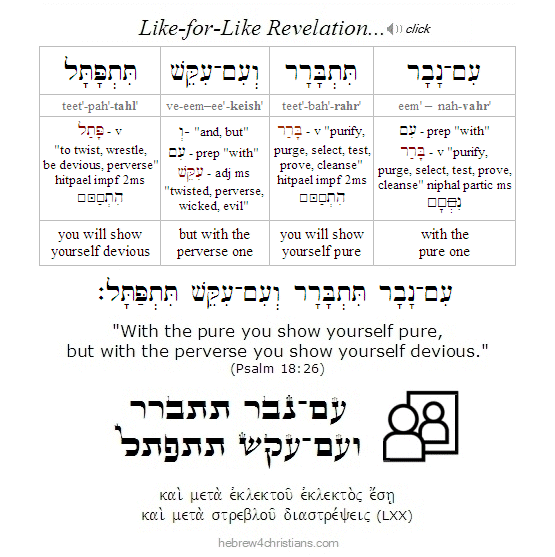 |
Note: For more on this important topic, see "Parashat Pinchas: God's Greater Zeal."
The Suffering of Truth...

[ "One thing my father told me when we were separated, 'Don't forget where you come from. When all this is over, go home.' Those few words were the only reason I survived." - Harry Joseph Feldinger, a survivor of Auschwitz ]
07.25.24 (Tammuz 19, 5784) We may say that we should bless the Lord for the bad as well as for the good (Job 2:10), since we affirm that God does everything for our ultimate benefit (Rom. 8:28), and we may therefore infer that affliction is a "messenger" from above provoking us to do teshuvah. If we had greater understanding or more faith, we may suppose, then we would accept that our troubles and sorrows are really disguised "afflictions from love" and we would learn to accept them without protest or bitterness...
But that's how we might reason. And while it is true that we trust in God's providential plans for our lives, we still feel pain, we still get sick, we cry, we get frustrated, angry, and even feel forsaken at times. However we must not be offended over our frailty, our vulnerability, and our smallness of faith, friends. For God is with us, even when we are confused or unsure...
An old story relates how some disciples wondered why their rebbe wept when he was falsely imprisoned. Didn't he regularly teach them that all trouble is for ultimate good? Said the rebbe, "When God sends bitterness, we ought to feel it..." Can you imagine someone admonishing Yeshua not to weep during his intercession at Gethsemane saying, "Where is your faith, Master?" Don't you believe that God is working all things for good?" There is very little difference between these sorts of "questions" and the taunts Yeshua received when he bled out on the cross for our sins (Matt. 27:39-45; Luke 23:35-37).
Look, there is "theology" and then there is the passion of living out your faith. Theology offers up the "right answers" while living by faith raises unanswered questions. Theology is cognitive; trust is a matter of the will and of the heart. People who live way up in their heads often forget their hearts. From a "legalistic" point of view Job was wrong to have argued with God; Moses was wrong to have despaired over his mission; Jeremiah was wrong to have lamented over the destruction of Jerusalem; David was wrong to have cried out for justice over his enemies, and John the Baptist was wrong to have doubted the identity of Messiah, to mention just a few instances where we see that passion, hunger and thirst, overruled the doctrines taught in our theology books.
This reminds me of another story. A godly man died and was standing before the bar of the heavenly tribunal, undergoing questioning: "Did you learn Torah, as Moses had commanded?" he was asked. "No," he quietly answered. "Or did you pray with all your heart and soul, seeking God in all your ways?" he was asked. "No," the man again softly replied. "Well then did you do good, as implied by the categorical duty to care for others?" And again the man meekly said no... When the judgment was then given, however, the man was awarded divine favor, since he spoke the truth and appealed only to God's mercy and love. The tzaddik is truthful even in his untruth; he confesses his wayward affections and acknowledges his weakness before God; he accepts the imperfection at the core of his being, and therefore he appeals only to his great need for God's love and mercy to make things right, to heal him, and to bring him home...
Hebrew Lesson
Psalm 73:25-26 reading (click for audio):
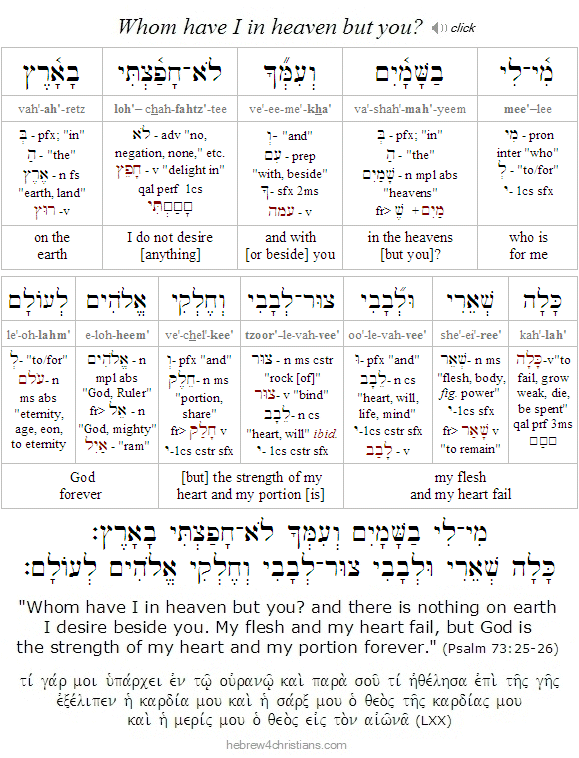 |
Waking up to God's Heart...
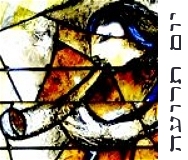
07.25.24 (Tammuz 19, 5784) "When they had come together, they asked Him, saying, "Lord, will You at this time restore the kingdom to Israel?" And He said to them, "It is not for you to know times or seasons which the Father has put in His own authority. But you shall receive power when the Holy Spirit has come upon you; and you shall be my witnesses" (Acts 1:6-8).
Now in this context the disciples had supposed that the festival of Shavuot, or "Pentecost," would finally herald the advent of the kingdom of Zion, and their supposition made sense, especially when we remember that Shavuot marked the "climax of Passover," the time when the Holy Spirit would write the Torah upon the heart, and so on (Jer. 31:31-33). Similarly, there are many believers today who look to "Yom Teruah" (i.e., "Rosh Hashanah") to signal the advent of the prophesied "End of Days" leading up to the atonement of national Israel and the second coming of Messiah, and again, this supposition makes sense, especially in light of the miraculous return of Israel to their ancient homeland after thousands of years of exile, the present conditions of the world, and the various prophetic signs that indicate the imminent time of tribulation for world -- and particularly for the people of Israel. And yet, despite all that, we are admonished to remember that "no one knows the day or hour" (Matt. 24:36) and that "it is not for you to know the times or seasons which the Father has put in His own authority."
When we consider the "appointed times" of the LORD, we must remember that they are His appointed times, not ours, and therefore our focus should be directed to Him and not on our own speculations or understanding (Prov. 3:5-6). And while God assuredly gives wisdom and imparts revelation to us as we seek him, we nevertheless "walk by faith" (כִּי בֶאֱמוּנָה נִתְהַלֵּךְ) and not by sight" (2 Cor. 5:7). We can apprehend prophetic significance in all of the mo'edim (holidays) of the Torah, and we can discern the general "times and seasons" (Matt. 24:32-33; Luke 17:26; Luke 19:44), but we must accept our limitations. For "we know in part and we prophesy in part, but when that which is perfect has come, then that which is in part will be done away. For now we see through a glass darkly (i.e., ἐν αἰνίγματι, "in riddles" or by "hints," the Hebrew word is chidot: חידוֹת); but then "face to face" (i.e., panim el-panim: פָּנִים אֶל־פָּנִים): now I know in part; but then shall I know even as also I am known" (1 Cor. 13:9-12).
Meanwhile what is most important is the law of mercy (תורת הרחמים), which is the very essence of Torah, friends (Deut. 10:12; Micah 6:8; Zech. 7:9; Matt. 23:23). The principle that "the Sabbath was made for man, and not man for the Sabbath" (Mark 2:27) means that our heart connection with our heavenly Father is what is of utmost importance, and the holidays - though important, meaningful, and significant - are a means to this greater end. Friends, if we miss the "weightier matters" of Torah, we miss the point of Torah altogether...
Hebrew Lesson
Micah 6:8 Hebrew reading (click):
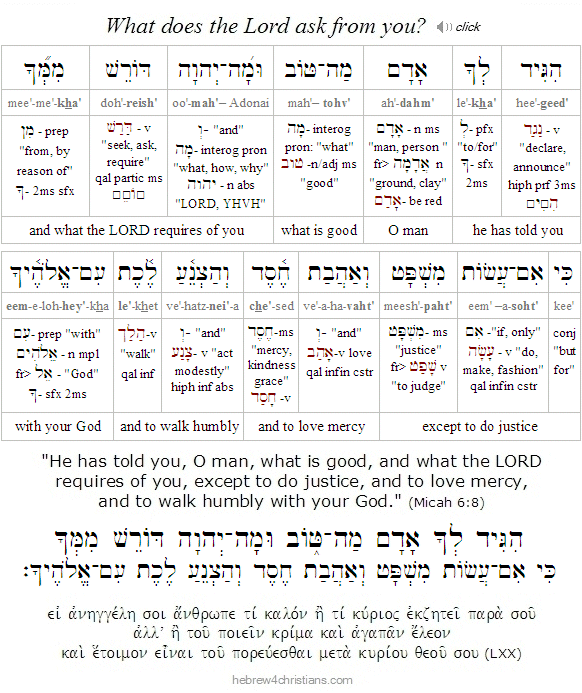 |
Substance and Hope...

07.24.24 (Tammuz 18, 5784) There is a secret and childish temptation to regard God as a sort of "Santa Claus" figure who rewards those who have been "nice" but punishes those who have been "naughty"... An implication of this (faulty) assumption is that God only blesses the worthy, so if our prayers and petitions seemingly go unanswered, we tend to suspect ourselves as being unworthy or unfaithful people... We may then try to bargain with God by promising to change and to "make ourselves" into better people. "If you will help me, then I will reciprocate by doing good." We reason that if we do good to others, then God will do good to us. This idea translates the notion that "God helps those who help themselves." We trust in the "law of karma" as the means for spiritual cause and effect.
Karma or "merit based" theology fails us, however, whenever bad things happen to good people, such as when a young child dies from an incurable illness. In such tragic cases people tend to look "beneath" appearances and posit hidden factors designed to deny or to appease the pain of the moment. Thus certain forms of Hinduism, for example, ascribe the suffering of innocent people to bad actions done in a previous life, while the "holier-than-thou" types (such as Job's friends) would persist that hidden sin was ultimately the cause for the suffering...
"To suggest personal will and effort to one all sicklied o'er with the sense of irremediable impotence is to suggest the most impossible of things. What he craves is to be consoled in his very powerlessness, to feel that the spirit of the universe recognizes and secures him, all decaying and failing as he is." - William James
Yeshua said "If you ask anything in my name, I will do it" (John 14:14), though it is important that we do not lapse into "magical thinking" when we hear these words. God is not some cosmic "genie in a bottle" that we can conjure up (through our religious rituals, our promises, etc.) to meet our needs but is a loving Heavenly Father who cares for our ultimate good.
"If you ask anything" therefore does not stand as an unqualified promise, and indeed, we often do not get what we want because we are not asking in the Name of Yeshua, that is, according to his vision, direction and will. "This is the confidence that we have toward him, that if we ask anything according to his will he hears us. And if we know that he hears us in whatever we ask, we know that we have the requests that we have asked of him" (1 John 5:14-15).
But this becomes a point of testing for us. What if we have prayed earnestly for God to do something to help but the help does not come to pass? What if we have prayed with utmost urgency for the healing of a loved one but they die? What if we suffer from painful illness, or get divorced, or lose our jobs -- even though we have prayed to God for the very opposite? This is a serious matter that needs to be considered, for if we assume that God only gives to the worthy and disregards the faithless, then we will be tempted to despair and question whether we "really" believe, after all... Questioning whether you "really" believe leads to nagging questions about whether you "really, really" believe, ad infinitum (see James 1:3-8).
The will of God is to exercise faith in Yeshua as the healer of your life: "This is the work of God (τὸ ἔργον τοῦ θεοῦ), that you believe in the one whom he has sent" (John 6:29). The work of God is the miracle of faith, and true faith surrenders everything in trust to God's will. "Our Father, who art in heaven, hallowed be Thy Name. Thy kingdom come; Thy will be done, on earth as it is in heaven" (Matt. 6:9-10). This is the beginning of the "Disciples' prayer"; it is the signal of the new life of the Spirit at work within the heart...
"Faith is the foundation (i.e., ὑπόστασις: the "substance," reality, underlying essence, etc.) of hope, the conviction of the unseen... "By faith Enoch was taken away so that he did not see death, and was not found, because God had taken him; for before he was taken he had this testimony, that he pleased God. And without faith it is impossible to please God, for whoever would draw near must believe that he exists and rewards (μισθαποδότης) those who seek him" (Heb. 11:1,5-6). At first glance these verses may seem to support a theology of karma, but it is important to see that the conditions to be known by God are given by God himself in the impartation of the gift of faith (Eph. 2:8-10; Rom. 4:16; John 4:10; Exod. 33:19). The reward here is that of truly knowing God - being "translated" from the realm of death and despair to "walking with God" in realm of the Spirit, as the life of Enoch demonstrated.
Note that God is pleased when we seek his Presence, that is, when we when we look past the ephemera and ambiguity of the phenomenal world for the truth about spiritual reality (2 Cor. 4:18). For our part, faith resolves to confession (ὁμολογέω), that is, aligning our perspective and focus to agree with the revelation and message of divine truth and verbally declaring our conviction. We must say that we believe, and affirm it with all our heart (see Rom. 10:9). As it says, "I will make Your faithfulness known with my mouth" (Psalm 89:1). Even in times of testing, and particularly at such times, we trust God is in control of all that happens to us, both the good and the bad. "The trial of your faith is more precious than of gold that perishes, though it be tried with fire" (1 Pet. 1:7). As Job confessed: יְהוָה נָתַן וַיהוָה לָקָח יְהִי שֵׁם יְהוָה מְבֹרָךְ - "the LORD has given and the LORD has taken away: may the Name of the LORD be blessed (Job 1:21).
Whenever we encounter tribulation, or experience some crisis of faith, let us reaffirm aloud: "I believe in God's promise..." Physically expressing our faith is itself an act of faith, and this encourages us to trust in God's healing reward even in the present struggle or darkness. Amen. "Seek the LORD and His strength; ask for His Presence at all times" (Psalm 105:4).
Hebrew Lesson
Psalm 105:4 Hebrew reading (click):
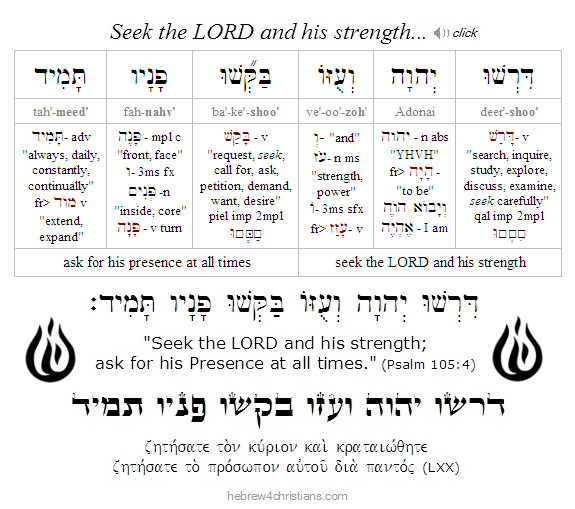 |
Salvation and Sanity...

[ "At bottom the whole concern is with the manner of our acceptance of the universe. Do we accept it only in part and grudgingly, or heartily and altogether?" - William James ]
07.23.24 (Tammuz 17, 5784) It is written in our Scriptures (2 Tim. 1:7) that "God has not given us a spirit of fear (πνεῦμα δειλίας), but of power, and love, and a sound mind." Note that the Greek word for "sound mind" (σωφρονισμός) comes from a verb (i.e., sodzo: σῴζω) that means being made "safe" (i.e., soas: σωός) or healed because of the power and grace of the Living God. Understand, then, the connection between fear and confusion, and note further the connection between having a sound mind and a heart of peace and courage. "The work of righteousness shall be peace; and the service of righteousness shall bequietness and confidence for ever (Isa. 32:17). A fearful or shameful attitude (פַּחדָנוּת), then, weakens your resolve, quells your love, and introduces pain to your thinking. It is the old trick of the enemy of our souls to lead us unto despair, the exile of shame, and cruel bondage to untruth. As always the answer is the same: namely, teshuvah, turning to God and embracing the grace and love given in Yeshua as our deepest reality, our power, our heart, and our mind.
The Name of the LORD (יהוה) means "Presence" and "Love" (Exod. 3:14; 34:6-7). Yeshua said, "I go to prepare a place for you," which means that his presence and love are waiting for you in whatever lies ahead (John 14:1-3; Rom. 8:35-39). To worry is to "practice the absence" of God instead of practicing His Presence... Trust the word of the Holy Spirit: "For I know the plans I have for you, declares the LORD, plans for healing peace and not for evil, to give you a future and a hope (Jer. 29:11). Chazak ve'ematz, chaverim!
Take comfort that your Heavenly Father sees when the sparrow falls; he arrays the flower in its hidden valley; and he calls each star by name. More importantly, the Lord sees you and understands your struggle with fear... Come to him with your needy heart and trust him to deliver you from the burdens of your soul (Matt. 11:28).
Hebrew Lesson
Psalm 25:1-2a reading (click):
The Gift of Desperation...
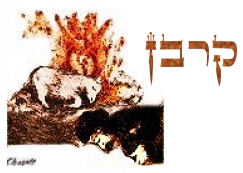
[ The following is related to our Torah for this week, Parashat Pinchas, which describes the daily offering of the lamb as God's "food" (Num. 28:1-8)... ]
07.23.24 (Tammuz 17, 5784) Many of us have been given the "gift of holy desperation." That's the special blessing of needing God so viscerally that you will fall apart or even self-destruct apart from His daily intervention in your life... "Blessed are the poor in spirit, for theirs is the kingdom of heaven" (Matt. 5:3). We groan in hope...
Our Torah portion this week (Pinchas) says that the fire on the altar was to be kept burning at all times (Lev. 6:12-13), which symbolizes esh tamid (אֵשׁ תָּמִיד), or the inner fire of the heart... How blessed it is to be full of the fire of this inner need, this relentless groaning, this constant hunger to be set free. Even more wonderful is how the korban tamid (קָרְבָּן תָּמִיד) - the daily whole burnt sacrifice of the lamb - represents Yeshua's ongoing and wholehearted passion for you to come alive to God's love... The heart of the Lord is offered to you in brokenness and compassion.
Hebrew Lesson:
Psalm 143:6 Hebrew reading:
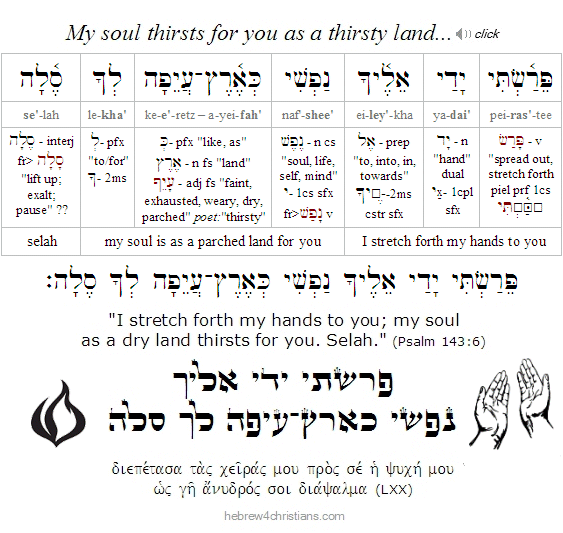 |
The Sigh of Faith...

[ "I have only one friend and that is echo. Why is it my friend? Because I love my sorrow, and echo does not take it away from me. I have only one confidant, and that is the silence of the night." - Soren Kierkegaard (Either/Or) ]
07.23.24 (Tammuz 17, 5784) "We groan inwardly as we eagerly await our redemption..." (Rom. 8:23). We sigh deeply because we are suspended between two worlds, living in the ambiguity of an already-not-yet expectation, enduring ourselves as imperfect vessels longing for perfection, trapped between what is and what will be, seeing the unseen, yearning for healing, believing that we shall never die, even as we die (John 11:26). We are restless for our eternal home and long for God's presence as we walk through shadowy vales, facing various temptations, whispering our prayers in the dark. And though we must learn endurance and trust in God's sovereign purposes, our faith nevertheless compels us to cry out both, "How long, O Lord?" and "Come, Lord Yeshua" (Rev. 22:20). Our ongoing challenge is to keep a trusting attitude despite our struggles, and therefore we inwardly pray: "Renew within me ruach nachon (רוּחַ נָכוֹן) - "a spirit that says Yes" (Psalm 51:10).
Surrender means accepting God's will for our lives -- saying "yes" to his promise of love, even if we presently feel empty inside and wonder how long we can hang in there... Saying "yes" implies saying "no" to other things - no to fear, anger and doubt, for example. Tragically there are people who have given up hope for bitterness and despair. Asking the Lord to give us a spirit of "yes" is really a prayer for focus, direction, and the willingness to keep pressing on to our heavenly destiny, especially when the way seems dark and hope seems distant.
Though life is a struggle, we do not lose heart or faint, since even though the outer self is wasting away, our inner self is being renewed (i.e., ἀνακαινόω, "raised up") day by day. "For this light momentary affliction is preparing for us an eternal weight of glory beyond all comparison, as we look not to the things that are seen but to the things that are unseen. For the things that are seen are transient, but the things that are unseen are eternal. For we know that if the tent that is our earthly home is destroyed, we have a building from God, a house not made with hands, eternal in the heavens. For in this tent we groan, longing to put on our heavenly dwelling, that is, substance and reality..." (2 Cor. 4:16-5:3). Meanwhile we must endure ourselves, deal with our resistance to mortification, and ask God for the great blessing of keeping us from evil so that we are not consumed by grief....
Hebrew Lesson:
1 Chronicles 4:10b Hebrew reading (click):
Losing and Finding yourself...
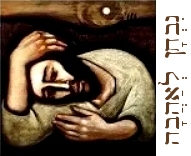
07.22.24 (Tammuz 16, 5784) Shalom chaverim. Many of us deal with inner conflicts, self-reproach, and meagerness of faith... It is reported that on his deathbed Reb Zusya said, "I am not afraid that the Holy One will ask me, 'Zusya, why were you not more like Moses?' Rather, I fear the Holy One will say, 'Zusya, why were you not more like Zusya?'" This Hasidic story is interesting because, on the one hand, how could Zusya be anyone other than he is? and on the other, why is Zusya afraid that he is not who he should be? Zusya's parable reveals that there is an inner conflict in his soul. He senses that has not lived as he ought, that he has failed himself (and God), and that he is lost in the rift between the ideal and the real... His struggle, then, is with himself. Who he is and who he thinks he should be are at odds within his heart.
The question of who we are meant to be haunts us, and consciousness of the failure to practice our ideals leads to a sense of guilt, anxiety, and shame. For those who believe in Yeshua the question is essential to the question of what it means to be an authentic disciple. How are we to live before God and be accountable for what we do? For instance, we read Yeshua's message in the Sermon on the Mount and we eventually realize - if we are honest with ourselves - that it is not within our nature to be able to do as he teaches, and this leads us to a despair not unlike that which Zusya experienced. A divided house cannot stand....
Reb Zusya's despair can be remedied only by overcoming the inner divide through a personal relationship with Yeshua, for salvation is not simply deliverance from the accusations of conscience (i.e., the verdict of the law) but constitutes the healing grace that delivers us from the sickness of sin within ourselves. Yeshua did not die on the cross to simply take away our sins, but to create within us indestructible new nature that it no longer enslaved to the power of sin. The message of the gospel is that your heart can be - and ultimately will be - transformed by the miracle of God given in Yeshua.
Salvation is not a matter of "religion" or of man's attempt to justify himself by some kind of reformation of character. Yeshua is not the "second coming of Moses," after all. Try as you might to live a "good life," keep the commandments, and aspire to elevate yourself spiritually, you will eventually come to realize that it is impossible to change yourself. You will then be faced with a decision: either to deceive yourself about who you are, or to be honest and confess your wretched and hopeless condition. This is the "lawful use of the law," that reveals the "ought-to-be" self, so that the gap between the ideal and the real becomes unsurpassable, and we know ourselves as lost sinners who are in peril over ourselves...
In our natural estate we are "fallen," shattered of heart, full of trouble "as the sparks fly upward." As Simone de Beavoir once wrote: "In the very condition of man there enters the possibility of not fulfilling who he is" (Ethics of Ambiguity, 1947). The breach between who we are and what we ought to be creates a sense of alienation from ourselves, a "shadow self" that we deny, suppress, or try to control. In a moment of rare lucidity, the "natural man" cries out to God: "What do you want from me?" This is the moment when truth has its opportunity, when the heart is stirred to confess its need for deliverance and to accept God's love, despite the brokenness and incoherence of life.
When by miracle we escape from the "hard yoke" of our laws, our vain attempts at self-justification, we do not encounter another set of laws, or another heavy yoke, but we take hold of the love of God, a personal love, and we engage in relationship with God as the central (and unifying) reality of our lives. Deliverance from ourselves is not found in religious (or "spiritual") recipes of any kind but in our connection with the truth of who God really is, trusting in his love and healing for all that we are, have been, and ever shall be, amen.
"Salvation is of the LORD," which means that God does the work of righteousness within you. It is God who saves you; it is God who sanctifies you, and ultimately it is God alone who heals you. Whenever you say "I can't," you are either looking at yourself or at God. If you are looking at yourself, "I can't" is better understood as "I won't," and the problem then is a lack of faith. On the other hand, if you are looking at God, "I can't" is followed by "but You can, O Lord" and faith trusts that God will complete the good work that he has begun in you.
It has been said that God sends each soul into the world with a special message to deliver, a revelation that only he or she can disclose... No one else can bring your message to this world - only you can do this. And since God is entirely unique, you are called to be who you were created to be, and not someone else. As George MacDonald once said, "I would rather be what God chose to make me than the most glorious creature that I could think of; for to have been thought about, born in God's thought, and then made by God, is the dearest, grandest and most precious thing in all thinking." That's the good news of the gospel, friends: God not only saves us from ourselves, he remakes us to be true bearers of his image and likeness. He works all things together for his glory and our good.
Amen, let it be so, O Lord!
Hebrew Lesson
Ezekiel 26:26a reading (click):
The Meaning of Life...
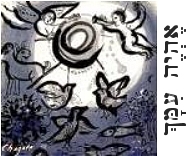
07.22.24 (Tammuz 16, 5784) The Hebrew word for "life" is chayim (חַיִּים), a plural noun that contains two consecutive letter yods (יי) that picture two "hands held together" (the Hebrew word yad [יָד] means "hand"), or the union of our spirit with God's Spirit. The word itself reveals that there is no life apart from union with God, who extends his hand to you and says, "Live in me" (John 15:4). Live in God, who is your life, your love, your light, your truth, your healing, your beauty, your breath, and your salvation. Yeshua is the Source of all life, and we find nourishment, strength, and fullness of joy as we connect with his life. The Lord is our light and our salvation, the Mediator of divine life (Psalm 27:1; John 1:4). The Voice of the LORD still speaks: "Take heart. It is I; be not afraid."
The word chayim can be read as chai (חי), "alive," combined with the particle im (אם), "if," suggesting that being alive is conditional on our connection with God in the truth. "Whoever believes in the Son has eternal life (חַיֵּי עוֹלָם); whoever refuses the Son shall not see life, but the separation of God remains" (John 3:36). Life and peace are therefore inextricably connected, and those who refuse Yeshua, the Prince of Peace (שַׂר־שָׁלוֹם), therefore separate themselves from unity with God. Yeshua alone is the means of receiving the divine life: "Whoever has the Son has the life (הַחַיִּים); but whoever does not have the Son of God does not have the life" (1 John 5:12).
The Divine Life is such that it is never diminished as it shared but instead grows and multiplies in miraculous ways. This is alluded to by the Hebrew word for love (i.e., ahavah: אהבה), the gematria of which is thirteen (1+5+2+5=13), but when shared with another it is multiplied: 13 x 2 = 26 - the same value for the Sacred Name (יהוה), i.e., (10+5+6+5=26). The love of God given in Yeshua is the very life of the universe...
The word chayim is also written in the plural to indicate that each person potentially contains a "universe of lives" within him or her. Spiritually, your soul is a unity that contains a multiplicity of changes, yet remains a distinct identity. Physically, when Cain murdered his brother Abel, it is written, "the voice of your brother's bloods (plural) cries out from the ground" (Gen. 4:10), indicating that Abel's descendants also cried out. In light of this the Talmud states, "Whoever destroys a soul, it is considered as if he destroyed an entire world; and whoever saves a life, it is as if he saved an entire world" (Sanhedrin 37a).
Hebrew Lesson
John 6:63a reading (click):
The Divine Light...

07.22.24 (Tammuz 16, 5784) "If I say, surely the darkness shall cover me, even the night shall be light about me, for the darkness cannot hide from You, but the night shines as the day: nothing escapes your radiance" (Psalm 139:11-12).
The heart of faith confesses that the divine light overcomes all the darkness, even the darkness of our own hearts, and furthermore it furthermore affirms that we can trust that God is in our darkness, in the silence, in the unknown... Yeshua was covered by the dark cloud as He suffered on the cross on your behalf. You come out of the shadows when you admit that you act just like other people, that you are human, in need of reconciliation yourself... Above all you need God. You need help. You need a miracle to help you to truly love. You may find excuses for many things, but you cannot escape the "wretched man that I am" reality that constitutes your fears.
God sees in the darkness and is present there, too. When you feel alone, like an unbridgeable gulf lay between you and all that is good; when you feel like you want to scream but are afraid that even then no one would hear, may the LORD shine His light upon you... Amen, may the light of the LORD shine upon you and may he be gracious to you: יָאֵר יְהוָה פָּנָיו אֵלֶיךָ וִיחֻנֶּךָּ.
Hebrew Lesson
Psalm 139:11 reading (click):
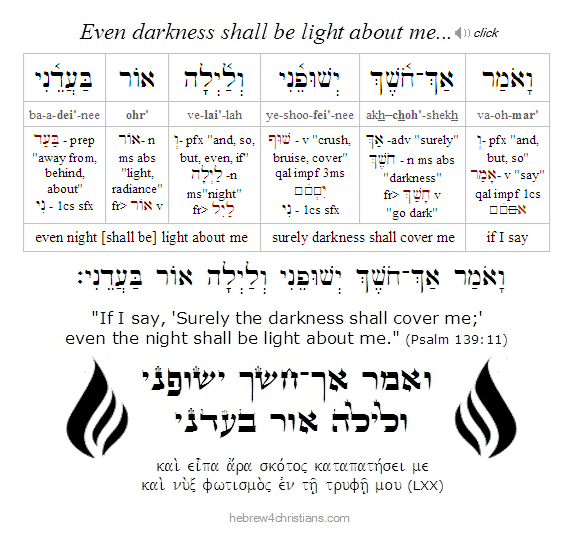 |
Fast of the Fourth Month...

07.21.24 (Tammuz 15, 5784) According to Jewish tradition Moses shattered the tablets on the 17th day of the 4th month, after he came down from Sinai and found the people worshipping the golden calf. Today, this tragic date is commemorated as a fast day (i.e., the "Fast of Tammuz"), which marks the beginning of a three week period of mourning that culminates on Tishah B'Av (i.e., the date when the people tragically believed the evil report of the spies and were sent into exile).
During this three week period of national mourning, the weekly readings from the prophets are all "Haftarahs of Rebuke" that warn the people about imminent judgment from heaven, and therefore the theme of most Jewish religious services is teshuvah (repentance). In addition, weddings or other joyous events are usually not held during this time of year. Indeed, among the very Orthodox, the last nine days of the three weeks are the most rigorous and solemn. Beginning on the first day of the month of Av, traditional mourning customs are practiced in anticipation of the most solemn fast day of Tishah B'Av, when the Book of Lamentations (Megillat Eichah) is plaintively recited during the evening service.
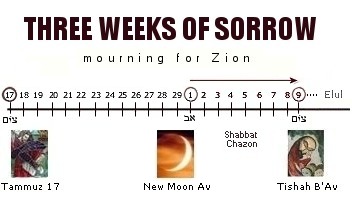 |
This year the Fast of Tammuz begins at dawn Tuesday, July 23rd and lasts until sunset. The Tishah B'Av fast therefore begins three weeks later at sundown on Monday, August 12th and ends after sunset on Tuesday, August 13th.
Dates During the "Three Weeks" of Sorrow:
Hebrew Lesson
Psalm 51:17 reading (click):
This week's Torah:
Parashat Pinchas - פינחס
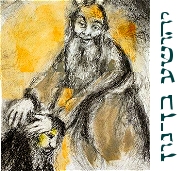
07.21.24 (Tammuz 15, 5784) Shavuah tov chaverim! Last week's Torah portion (i.e., parashat Balak) first introduced us to a man named Phinehas (i.e., "Pinchas"), the son of Eleazar the priest and grandson of Aaron, who, during the tragic rebellion at Baal Peor, zealously removed evil from Israel by driving a spear through a tribal prince who was brazenly cavorting with a Midianite princess in defiance of God's law. On account of Pinchas' zeal for the truth of Torah, God stopped the plague and Israel was delivered from great destruction... This week's Torah portion (i.e., parashat Pinchas) begins with the LORD rewarding Pinchas by granting him a "covenant of peace" (ברית שׁלום) and an everlasting priestly line in Israel (ברית כהנת עולם). As I hope you will see, Pinchas pictures the Messiah Yeshua, and the covenant of priesthood given to him is a picture of the greater priesthood after the order of Malki-Tzedek.
Jewish tradition says that when Aaron and his sons were commissioned as the exclusive priests of Israel (Exod. 40:12-15), the office applied only to themselves and to their future descendants. Since Aaron's grandson Pinchas had already been born at the time the promise was given, however, he did not automatically receive this honor, especially since his father Eleazar (the son of Aaron) was married to an "outsider" -- namely, the daughter of Yitro (also called Putiel, Exod. 6:25). This explains Rashi's statement about why the other tribes mocked Pinchas. How dare this "son of an outsider" kill a nassi (prince) of Israel (i.e., Zimri), especially since Pinchas' mother was regarded as an idol worshipper! The LORD honored Pinchas' zeal, however, and overruled the uncharitable tribalism of the Israelites, and he was therefore elevated to be a priest with special honor before the LORD.
God looks at the heart, chaverim, and is able to make those who have zeal for Him true priests of the LORD! You don't have to be born Jewish to be chosen by the LORD God of Israel, since He's "no respecter of persons" (Rom. 2:11). Not only can He create spiritual children of Abraham "from the stones of the ground" (Matt. 3:9; Luke 3:8), but He can turn someone considered a non-Jew (by the rabbis, anyway) into a highly honored priest of Israel (1 Pet. 2:9-10). Indeed, according to tradition, many descendants of Pinchas later became the most faithful of the High Priests of Israel during the First Temple period.
Note that according to one midrash, when Zimri and Cozbi (the Midianite princess) were cavorting, they actually ran inside the Tabernacle compound itself, directly past Moses and the people who were there weeping at its entrance (Num. 25:6)! Pinchas then took a spear from the Tabernacle guards and courageously followed after them. When he caught up with them within the Tent of Meeting itself, he pierced them through with the spear (Num. 25:7-8). After this, thousands of men from the tribe of Simeon ran in after him, seeking to kill him. Pinchas was in such a state of terror that "his soul left him" and he was reborn as a Kohen.
Parashat Pinchas (like parashat Emor in Leviticus) also mentions of all of the (sacrifices of the) mo'edim (holidays) given to the people Israel (Num. 28). These include the daily (tamid), weekly (Shabbat), monthly (Rosh Chodesh) sacrifices, as well as the sacrifices assigned to the special holidays: Passover, Shavuot, Rosh Hoshannah (Terumah), Yom Kippur, Sukkot and Shemini Atzeret. The sages said that remembering the joys of the Temple and the special celebrations of the Jewish people promote the call to do teshuvah during the otherwise somber time of the Three Weeks of Sorrow.
Curses to Blessings...
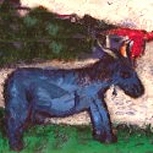
[ The following entry concerns this week's Torah reading, parashat Balak... ]
07.19.24 (Tammuz 13, 5784) The story of Balaam took place "out of view" of the Israelites, which teaches us that the LORD our God is always at work - even among our enemies - for our blessing and ultimate good... No weapon formed against God's people shall prosper, and every tongue that speaks in judgment shall be made to stammer out praise. "He who vindicates us is near; who will contend with us?" Indeed, "who shall bring any charge against God's elect? It is God who justifies. Who is to condemn? Yeshua the Messiah is the one who died -- more than that, who was raised -- who is at the right hand of God, who indeed is interceding for us" (Rom. 8:33-34). Those of faith understand history - including the End of Days - as the expression of God's sovereign and providential hand. The gracious Savior always works "all things together for the good" of those who are trusting in Him.
God can turn curses into blessings... For example, Joseph was blessed despite the ill-will of his brothers: "You devised evil against me, but God devised it for good" (Gen. 50:20). Note that the same verb for "devised" (i.e., chashav: חשׁב) is used to describe both the evil intent of the brothers and the good intent of the Lord. This teaches us that God overrules the malice of men to effect his own good purposes, and therefore we can rightfully affirm gam zu l'tovah (גַּם זוּ לְטוֹבָה), "this too is for good" (Rom. 8:28). Underlying the surface appearance of life (chayei sha'ah) is a deeper reality (chayei olam) that is ultimately real, abiding, and designed for God's redemptive love to be fully expressed. Resist the temptation, therefore, to judge by mere appearances. Forbid your troubles to darken the eye of faith. Do not unjustly judge God's purposes or try to understand His ways. As the story of Balaam shows, God makes even the wrath of man praise Him (Psalm 76:10). "Then God opened Balaam's eyes, and he saw the Angel of the LORD (מַלְאַךְ יְהוָה) standing in the way, with his drawn sword in his hand. And he bowed down..." (Num. 22:31). Indeed, every knee will bow to the LORD our God and Savior (Isa. 45:22-23; Phil. 2:10-11).
Find comfort that the schemes of the wicked are subject to the sovereign purposes of the LORD. Ein od milvado (אֵין עוֹד מִלְבַדּו) - there is no power that can be exercised apart from God's consent and overarching will... Indeed all authority on heaven and earth belongs to Yeshua, the "the Ruler of the Kings of the earth" (עֶלְיוֹן לְמַלְכֵי־אָרֶץ). As it is written, "All the nations you have made shall come and worship before you, O Lord, and shall glorify your name" (Psalm 86:9).
Hebrew Lesson
Psalm 47:2 reading (click):
The Mind of Messiah...
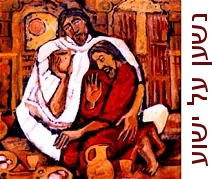
07.19.24 (Tammuz 13, 5784) Recall that the Hebrew word "mitzvah" (מִצְוָה), often translated as "commandment," derives its basic idea regarding connection to God (i.e., the root צוה means to "bind" or "unite"). Therefore when Yeshua said to his followers, "If you love me, keep my commandments" (John 14:15; 1 John 5:3), he meant they should do those things that connect them with him (John 15:1-5). This appeal to "love the Lord your God" (וְאָהַבְתָּ אֵת יְהוָה אֱלֹהֶיךָ) with all your heart by keeping his commandments was also the message the Lord gave to Israel at Sinai (Exod. 20:6; Deut. 6:5). What is essential to Torah, then, is a love connection, that is, walking in the light of the Lord and knowing the blessing of his heart...
We told to have the "mind of Messiah" (תּוֹדָעָת הַמָּשִׁיחַ) within us -- that is, we are to embrace his hashkafah (הַשׁקָפָה), or his outlook, and his chashivah (חֲשִׁיבָה), or thinking, regarding the truth and reason for our lives (1 Cor. 2:16). This means knowing the heart of the Father as lived and expressed in the life of his beloved Son (בן יחיד). "This is eternal life, that they know you the only true God, and Yeshua the Messiah whom you have sent" (John 17:3). Yeshua is the interpreter and teacher of Torah (המורה הגדול ביותר), and all the great truths of Scripture point to him: "I the Lord, have called you in righteousness, and will hold your hand; I will keep you and give you as a covenant to the people, as a light to the Gentiles, to open blind eyes, to rescue prisoners from prison, and those who sit in darkness" (Isa. 42:6-7).
The Holy Scriptures (כִּתְבֵי הַקּוֹדֵשׁ) - both the "Tanakh" (i.e., תנ"ך, an acronym for Torah (תּוּרה), Prophets (נביאים), and Writings (כּתּוּבים)) as well as New Testament (i.e., הַבְּרִית הַחֲדָשָׁה, including the Gospels, the Writings (epistles), and the book of Revelation) provide witness as informed by the Holy Spirit (Tim. 3:16-17). When we read the Scriptures with a heart of faith, the Holy Spirit (רוּחַ הַקּוֹדֵשׁ), whom Yeshua called "the Spirit of Truth" (רוּחַ הָאֱמֶת), provides the "seal" of attestation and the inner witness between our minds and the mind of our Lord (John 15:26, 1 Cor. 2:16; Phil. 2:5). The "yoke" of Yeshua's discipleship leads us to know his ways and to shepherd our understanding of God (Matt. 11:29).
Discipleship to Messiah is more than simply "book learning," of course, since the Word of God is "living and powerful, sharper than any two-edged sword, piercing even to the division of soul and spirit (הַנֶפֶשׁ וְהָרוּחַ), and of joints and marrow (הַמִפְרָקִים וְהַמֹחַ), and is the judge (הבּוֹחֵן) of the thoughts and intentions of the heart (Heb. 4:12). In other words, "study" is a means to the greater end of living the truth in your daily life. Followers of Yeshua are to be "doers of the word" (עוֹשֵׂי הַדָּבָר) and not merely "hearers" who fool themselves (James 1:22). As Yeshua said, "Whoever has my commandments and keeps them, he it is who loves me. And he who loves me will be loved by my Father, and I will love him and manifest (i.e., "shine within," from ἐν, "in" + φαίνω, "shine") myself to him" (John 14:21). The end or goal of Torah is personal love for God revealed by the inner light of our Redeemer and Savior.
As we study the Scriptures, then, let us obey from the heart its "Torah," its living message of grace and love spoken to us... The "mind of Christ" (i.e., תּוֹדָעָת הַמָּשִׁיחַ), that is, Yeshua's beliefs, values, concerns, and vision then become our own. When we identify and and yield ourselves to him, we become instruments of his will, practicing peace, love, and good will toward others in his name. As we "follow" him, we share the same way, truth, and life that revealed the heart of the Father: "Let this attitude be in you" that was also in Yeshua the Messiah... who humbled himself and became obedient unto death - even the death upon the cross (Phil. 2:5-8; John 15:13).
Yeshua promised that the Ruach HaKodesh (Holy Spirit) would be "called alongside" (παράκλητος) to comfort us on the journey. The English verb "comfort" literally means "to give strength" (from com- ["with"] and fortis ["strong"]), an idea similarly expressed by the verb "encourage," that is, to "put heart [i.e., 'core'] within the soul." In Hebrew, the word courage is expressed by the phrase ometz lev (אמֶץ לֵב), meaning "strong of heart," denoting an inner quality of the will rather than of the intellect. Ometz lev means having an inner resolve, a passion, and a direction. The sages say "the mind is the eye, whereas the heart is the feet." May the LORD our God be our Light and Salvation as we walk through the surrounding darkness...
Let us always focus on Yeshua, "the Light of Torah" (האור של תורה) and "the true Wisdom of God" (חָכְמַת אֱלהִים אֲמִתִי). He is the Source of the Light we need that overcomes all darkness; He is the Power that is upholds our way. Yeshua is the Beginning, the Center, and the End of all true meaning from God. Blessed is His Name forever and ever.
Hebrew Lesson
Psalm 36:10 reading (click):
End of Days Madness...

07.18.24 (Tammuz 12, 5784) We are living in a decaying and moribund world, and the great age of apostasy will soon be coming to an end. The Apostle Paul provided a list of nineteen characteristics that would mark the heart of people during this final period of human history. He wrote that "people will be lovers of self, lovers of money, proud, arrogant, abusive, disobedient to their parents, ungrateful, unholy, heartless, unappeasable, slanderous, without self-control, brutal, not loving good, treacherous, reckless, swollen with conceit, lovers of pleasure rather than lovers of God, having the appearance of godliness, but denying its power" (2 Tim. 3:2-5).
Noteworthy in this sorry litany is the phenomena of what might be called "misdirected love." People will be "lovers of themselves," "lovers of money," "lovers of pleasure more than lovers of God," and "not lovers of good." Loveless self-centeredness will be the "norm" of the day.... And even though he was being prophetic (i.e., speaking of the End of Days), the Apostle linked these nineteen middot ra'ot (evil attributes) to the character of false teachers presently in the church, and warned his protege Timothy that Satan can masquerade as an "angel of light." Therefore we are to have nothing to do with those who pervert the gospel message (2 Tim. 3:5). These false teachers would come to an end just as did "Jannes and Jambres" (Paul here cites a midrash regarding the identity of two of the Egyptian magicians who opposed Moses and whose rods were swallowed up by Aaron's rod in Exod. 7:11-12).
Hebrew Lesson
Psalm 10:4 reading (click):
For more on this topic, see "Perilous Times and the End of Olam HaZeh."
The Enigma of Balaam...
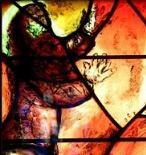
07.18.24 (Tammuz 12, 5784) In our Torah reading for this week (i.e., parashat Balak), we are introduced to a strange character named "Balaam" (בִּלְעָם), who was famously rebuked by a talking donkey, though in light of his supposed ability as a "seer" who could prophesy in the Name of the LORD (יהוה), we may wonder what to make of this man. Was Balaam, who was a Midianite, a true prophet or a mere puppet in the hands of God?
Jewish scholar Nehama Leibowitz (1906-1997) notes two essential differences between Balaam (who was a Gentile) and the Hebrew prophets of Israel. First, Balaam sought "special visitations and visions," building altars and performing rituals to "force" the prophetic spirit. The Hebrew prophets, on the other hand, never engaged in these sorts of activities to hear from the LORD, and many were reluctant messengers, convinced of their own unworthiness and nothingness. Second, the Hebrew prophets cautiously spoke in the name of the LORD ("thus saith the LORD...") to authenticate their message, but Balaam took credit for his visions, flamboyantly regarding himself as a "great seer" with special powers. Based on Joshua 13:22 (which describes him as a sorcerer), it is likely that Balaam was given a temporary gift of prophecy, perhaps like the "witch of Endor" was allowed to temporarily communicate with the dead (1 Sam. 28:7-20). In other words, God raised up Balaam to demonstrate his authority over the powers of darkness and to reassure Israel of God's ongoing protection of his people.... Ein od milvado.
In the New Testament, Balaam is described as one who sought to corrupt others for his own personal gain. The Apostle Peter does not call him the "son of Beor" but "son of Bosor" (τοῦ Βοσόρ), apparently a play on the Hebrew word basar (בָּשָׂר), meaning "flesh," implying that he was a "son of carnality" who enticed of Israel to sin at Baal Pe'or (see 2 Pet. 2:15; Num. 31:16). Peter further described him as a spiritual hireling who loved the "wages of unrighteousness" (μισθὸν ἀδικίας ἠγάπησεν), and who (like the Sophists of ancient Greece) was willing to sell his spiritual "services" without regard for the truth (Num. 22:7, Deut. 23:4-5). Balaam so loved the prospect of reward and the flattery of men that he justified his venture into darkness. "An evil eye, a haughty spirit, and a lusting soul - these are signs of disciples of the wicked Balaam" (Avot 5:22).
The Hebrew word melekh (מֶלֶךְ) means "king" and shares the same letter value as the word lemech (לֶמֶךְ), a name that means "powerful," but can also mean "fool." The sages reasoned that since the letter Mem represents the brain (מוֹחַ) or thought (מַחֲשָׁבָה), and the letters Lamed-Kaf refers to the kidneys (כליות), a king is one who uses right thinking to rule the heart (מ-לך), but a fool reverses the order and makes thinking a servant of the passions and the lower nature... Therefore Balaam was properly regarded as a fool (Josh. 13:22).
Hebrew Lesson
Psalm 25:10 reading (click):
Note: For more on this topic, see the article: "The Way of Balaam."
Blessings of Hebrew...
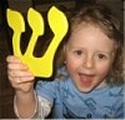
07.18.24 (Tammuz 12, 5784) The late Frederick Buechner once challenged his readers to take any English word and to repeat it twenty times, over and over. By the time they were finished, he said, it would be likely that the word will have lost its meaning and simply become an absurd noise. He then went on to say that many words of the Christian faith, even the most meaningful words of great significance, have been so repeated over the last two thousand years that they, too seem to have lost their meaning.
Words like "faith," "sin," "redemption," and so on all have been assimilated by the world and their meaning has been vitiated, much like the symbol of the cross that has grossly "transmogrified" into a piece of costume jewelry. Words that once so moved men and women that the world was turned upside because of their radical significance now are regarded as banalities and platitudes, if they are heeded at all.
This is why, I believe, studying biblical Hebrew (and Greek) can be helpful, since doing so forces us to retool our lexicon in order to translate the meaning of Scripture in relevant ways. A pop song may gush about "faith" or "love," but understanding the Hebrew meaning of emunah (אֱמוּנָה) and ahavah (אהבה) can enable us to escape the mass-produced language of our age. Or consider various Hebrew words for "sin" (e.g. chatat, pesha, avon, asham, etc.) or the words for "law" (e.g., Torah, mishpatim, chukim, eidut, etc.), each of which has subtleties of meaning lost in modern translations. So study some Hebrew, even if you are just beginning. Doing so will force you to slow down and think about the original meaning of many Biblical words we often unthinkingly use when we think about God.
Hebrew Lesson
Jeremiah 33:3 reading (click):
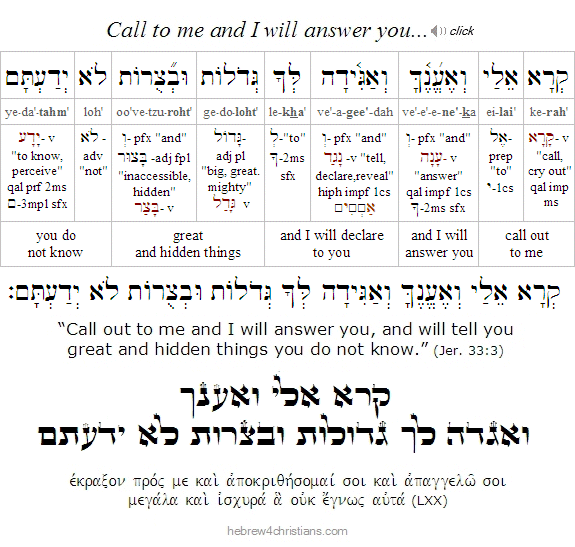 |
Freedom of Humility...

07.17.24 (Tammuz 11, 5784) Those conscious of their inner poverty, who mourn over their sinful condition, and who are afflicted with themselves, can let go of the need to "manage appearances," to be in control, or to seek validation from others, and therefore they are free to surrender their lives to God's care. They "flow" with the Father's will as a "gentle breeze," no longer resisting or striving, but simply trusting in God's care. When they are wronged, they seek neither revenge nor vindication, but only restoration (1 Pet. 2:23). Paradoxically, it takes strength to be genuinely "lowly of heart," but such is found in the Spirit of God (Zech. 4:6). Indeed, the Spirit leads us to our inheritance, as it written: "the humble shall inherit the land and delight themselves in abundant peace" (Psalm 37:11).
Hebrew Lesson
Psalm 37:11 reading (click):
Yeshua quoted this verse in the Sermon on the Mount when he said, "Blessed are the meek, for they shall inherit the earth" (Matt. 5:5). In the New Testament, the Greek word translated "meek" is πραεις (or πραος), perhaps better rendered as humble or soft spoken. In the Hebrew text of Psalm 37, the word is anavim (עֲנָוִים), usually translated as "lowly ones" (anavah is the Hebrew word for humility). This word does not suggest weakness, but rather the recognition of one's proper place in the universe before God. It is not self-effacing but rather reality-focused. The meek inherit the earth because they are grounded in the truth of reality...
God "opposes the proud but gives grace to the humble" (James 4:6). The LORD our God dwells with those "of a contrite and lowly spirit, to revive the spirit of the lowly, and to revive the heart of the contrite" (Isa. 57:15). True greatness is found in outside of the self, beyond the instincts of the carnal ego. Those who seek to exalt themselves and to "gain the world" do not understand that the very reason for their life is to be sacrificed for the sake of love. Obeying God's call to love is not a burden, but rather sets the heart free. As Yeshua said, "Come to me, all who labor and are heavy laden, and I will give you rest. Take my yoke upon you, and learn from me, for I am gentle and lowly in heart, and you will find rest for your souls. For my yoke is easy, and my burden is light" (Matt. 11:28-30).
In the Jewish tradition, humility (i.e., anavah: עֲנָוָה) is among the greatest of the virtues, as its opposite, pride (i.e., ga'avah: גַּאֲוָה), is among the worst of the vices. God hates the proud of countenance (Prov. 6:16-17). Therefore Moses is described as the most humble of men: "Now the man Moses was very humble, above all the men that were on the face of the earth" (Num. 12:3), and likewise the great patriarch Abraham confessed to God: "Behold now, I have taken upon me to speak unto the Lord, who am but dust and ashes (עָפָר וָאֵפֶר)" (Gen. 18:27).
"He must increase, but I must decrease" (John 3:30). Our aim should not be personal greatness, but humility. Love personal obscurity; rejoice that you are unnoticed by the world and that you are "poor in spirit." Be happy that you are a stranger and sojourner in this world. How blessed are you when God alone is your chief concern!
Hebrew Lesson
Psalm 119:130 reading (click):
Uncovering of Eyes...
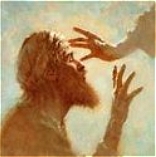
[ The following entry concerns this week's Torah reading, parashat Balak... ]
07.17.24 (Tammuz 11, 5784) From our Torah portion this week (i.e., Balak) we read: "Then the LORD uncovered Balaam's eyes and he saw..." (Num. 22:31). This implies that the great "seer" had been walking "sightlessly" – blind to reality, closed off, unable to get past his own narrow perspective... Indeed the Hebrew verb for "uncovered" (i.e., galah: גָּלָה) implies captivity and exile (i.e., galut: גָּלוּת), being enslaved to the superficial. Like the man born blind who needed a miracle to see the world around him, so we are delivered from our blindness only when God reaches down and touches us so we can see (John 9). True seeing is receiving revelation from God... "Amazing grace... I once was lost, but now am found; was blind, but now I see."
Hebrew Lesson
Psalm 69:17 reading (click):
This is such an important appeal – to be enabled by the miracle to see God's presence in all things, in every person we encounter, and in every experience we have... Amen.
In this connection note that the Hebrew word for "reality" is metziut (מְצִיאוּת), from the root matza' (מָצָא) meaning to find or discover. Reality is not simply something we encounter, it is something disclosed to us as a form of revelation. Therefore in Hebrew we do not say "I have x" but rather "there is to me x." In other words, reality is something we obtain from God. This idea is summarized by Abraham Heschel: "To the Western man, reality is a 'thing in itself,' but to the biblical man, it is a 'thing through God.' Looking at a thing his eyes see not so much form, color, force and motion, as an act of God. The world is a gate, not a wall" (Heschel: 1955).
Lessons from Balaam...
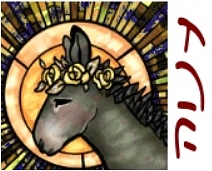
07.16.24 (Tammuz 10, 5784) In our Torah portion for this week (i.e., Balak), we read how Balaam intended to curse the Israelites, but God "took hold of his tongue" and made him bless the people instead... It is encouraging to realize that despite all of the repeated failures of the Israelites in the desert, the LORD never let go of his people... Indeed, as the story of Balaam reveals, if a spiritual enemy should secretly arise to curse Israel, God would take the sorcerer "by the tongue" to evoke God's blessing instead (Deut. 23:4-5). As Balaam himself later confessed: "there is no sorcery (i.e., nachash: נחש) against Jacob; there is no divination (i.e, kesem: קסם) against Israel" (Num. 23:23).
Unlike scheming Balaam, who was willing to say whatever people wanted to gain temporal reward, God is "not a man that he should lie, nor a son of man, that he should change his mind" (Num. 23:19, 1 Sam. 15:29). Whatever the LORD has promised he will invincibly perform: His word is full of integrity and truth: "The grass withers, the flower fades, but the word of our God will stand forever" (Isa. 40:8). Amen. The God of Israel is forever faithful in his love, and no one can overrule his desire (Num. 23:20; Rom. 11:29; Isa. 40:13).
You can trust in your promised future, friend. As it is written: "No weapon fashioned against you shall succeed, and you shall refute every tongue that rises against you in judgment. This is the heritage of the servants of the LORD (זאת נחלת עבדי יהוה) and their vindication from me, declares the LORD" (Isa. 54:17). "For I know the thoughts that I think toward you, says the LORD, thoughts of peace and not of evil, to give you a future and a hope" (Jer. 29:11).
Hebrew Lesson
Numers 23:23a reading (click):
The Way of Balaam...
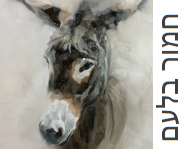
07.16.24 (Tammuz 10, 5784) This week's Torah portion centers around a strange character named "Balaam" (בִּלְעָם) who attempted to manipulate the LORD for his own twisted purposes.
Interestingly, the Talmud mentions that Moses wrote a separate book called the "Book of Balaam" (Sota 5), a work that presumably tells the story of Balaam in greater detail than the Torah portion provides (Bava Basra 14b-15a). This non-canonical book did not survive over the centuries, much like other works mentioned in the Tanakh (such as the Book of Yashar (Josh. 10:13, 2 Sam. 1:18), the Book of the Acts of Solomon (1 Kings 11:41), the Book of the Chronicles of the Kings of Israel (1 Kings 14:19, 14:29), the Book of Nathan the prophet (1 Chron. 29:29), etc). But notice that this implies that not everything Moses wrote was considered Scripture (since the book was rejected from inclusion in the Jewish canon).
Jewish tradition generally considers Balaam to be a prophet with the true gift of nevuah (נְבוּאָה, prophecy), although (paradoxically) he was an adversary of the LORD and an enemy of the children of Israel (Num. 31:16). The midrash (Bamidbar Rabbah 20) maintains that Balaam was "one who was [potentially] as great as Moses himself," but since he abused his spiritual gifts, he was judged and came to ultimate ruin. Instead of submitting himself to the truth and willingly blessing Israel, Balaam turned away from his true purpose, and "the portion of the Book he was meant to write (i.e., the "Book of Balaam") was decreed to be written by Moses instead." The tale of Balaam, then, is a sober warning to us all.
Balaam's legacy is with us today. The New Testament Scriptures speak of "the way of Balaam, the son of Beor, who loved gain from wrongdoing" (2 Pet. 2:15), "Balaam's error" (Jude 1:11), and "the teaching of Balaam, who taught Balak to put a stumbling block before the sons of Israel" (Rev. 2:14). Note that the doctrine of Balaam is associated with the licentious "doctrine of the Nicolatians" who "conquered the people" [νικος + λαος] in order to pursue their own ecclesiological/spiritual lusts (Rev. 2:6,14-15).
What is the "way of Balaam" or Balaam's error? Well, though Balaam appeared to follow God's instructions, his inner attitude was actually one of covetousness that resulted in a subversive hostility to God's expressed desire and plan. Balaam was therefore double minded, antagonistic to the way of truth, and therefore literally insane (see 2 Pet. 2:16). When Balaam told Balak's emissaries that he could "only speak what God put in his mouth," he was being literal, not moral... This is revealed in the fact that he was willing to try three times to curse God's purpose, but every time God thwarted his evil intent (Josh. 24:9-10). Despite God's dramatic intervention in his life, Balaam was unrepentant and defiant, and later succeeded in corrupting Israel by devising a scheme to tempt the men of Israel to commit fornication (Num. 31:16, Rev. 2:14-15).
Balaam was a hireling, a spiritual prostitute who wanted to sell his services. He was in possession of charisma which he used to seduce others into disobedience. He was paid for exercising his gifts without regard for the truth (Num. 22:7, Deut. 23:4-5, 2 Pet. 2:15). As Yeshua said, "You cannot serve God and mammon" (Matt. 6:24).
The tragic story of Balaam warns us to check our motives. By itself, the study of Scripture is never enough -- even if we take great pains to properly understand its meaning. Our heart attitude is definitive. Our will to serve God in the truth determines our way in this life. "If anyone wills to do His will he will know of the teaching..." (John 7:17). We cannot rightfully use the Scriptures to justify our ideas about God or own pet theological doctrines. We cannot manipulate God in order to serve our own theological visions... We must humble ourselves; we must make the effort to honestly listen; and we must be willing to surrender to the truth. It is the love of the truth that brings salvation to us (2 Thess. 2:10-12), not gaining power through religious knowledge or passing ourselves off as religious authorities....
When we rebel against God's will in our lives, we are inviting disaster. If we get into "vain repetitions" before the LORD, He might take us down a path that reveals why His will is best, despite our personal "vision" or preferences. Inevitably, coming up against God like this is dangerous and leads to various forms of madness. Making a pretense of "hearing from God" only what you want to hear leads to delusional thinking, hardening of the heart, perversity of the will, and eventual self-destruction. God will never allow us to use His Word to justify our lusts.
Yeshua promises those who put their trust in Him: "You will know the truth, and the truth will set you free" (John 8:32). May God watch over you, keep you, and give you the glorious liberty to obey Him in the truth, chaverim.... Amen.
Hebrew Lesson
Psalm 25:5a reading (click):
Hold Fast to Truth...
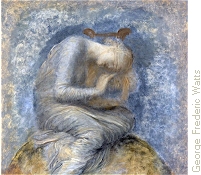
07.16.24 (Tammuz 10, 5784) One of the primary strategies of the devil is to induce a sense hopelessness within your soul... The devil entices you to lose sight of what is ultimately real and who you really are. The truth of God is your weapon against the cascade of lies that pours forth from the world and its various princes (Eph. 6:11-18). The entire venture of teshuvah (repentance) presupposes that you are created "in the image of God," that you are related to him, and therefore your life has infinite value and inherent dignity. This is all the more evident in light of the awesome ransom that Yeshua gave to reconcile your soul with God (2 Cor. 5:21; 1 Pet. 2:24). Therefore hold fast to the truth, friends; da lifnei mi attah omed - "know before Whom you stand!" Turn to what is real, refuse the lies and despair of this fallen world, and review what will abide the test of Eternity...
Amen, where it is written: "For your lovingkindness is before my eyes and I have walked in your truth" (Psalm 26:3), we note that the verb translated "I have walked" (i.e., הִתְהַלַּכְתִּי) is "hithpael," a verb pattern used to express reflexive, intensive action done to oneself. Therefore we could translate this as "I earnestly choose to walk" in the truth, indicating decisiveness of intent, focus, purpose... As King Shlomo said: בְּכָל־דְּרָכֶיךָ דָעֵהוּ - "Choose to know Him in all your ways!" (Prov. 3:6).
If you forget the essence of your soul you begin to lose sight of your reason for being, the "why" that underlies all other whys... This essence, however, is not discovered by means of reason, but by revelation -- it is a divine disclosure that awakens you to newness of life. Teshuvah is a return to the arms of your Heavenly Father...
Hebrew Lesson
Psalm 26:3 Hebrew reading:
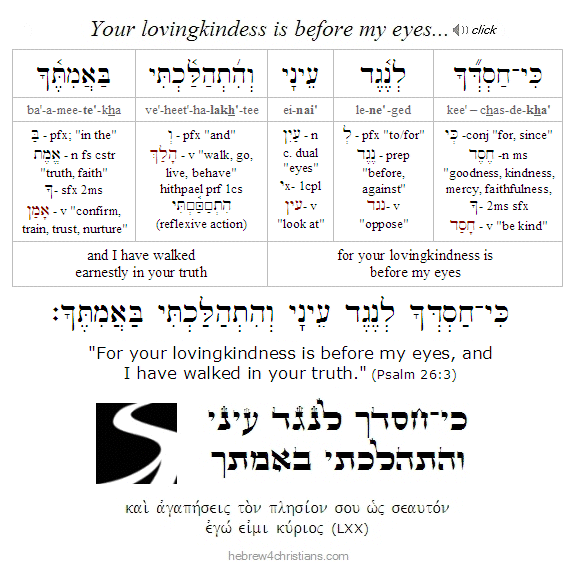 |
Treasuring God's Promise...
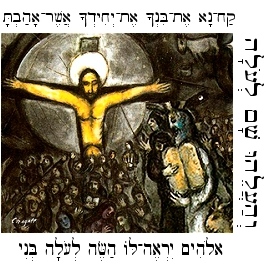
07.15.24 (Tammuz 9, 5784) A fundamental principle of Bible interpretation is succinctly stated in the axiom: "a text without a context is a pretext," and therefore we must endeavor to understand the New Testament in light of the Torah, not the other way around... God "breathed out" his revelation in a prescribed order, and without the context of Torah, the meaning and terms of the New Testament will be obscure and subject to misunderstanding.
Remember that Yeshua was "embedded" in the Jewish culture of his day (see Gal. 4:4-5), and that he was fluent in Torah reading and study (see Luke 4:16-21; John 4:22). Moreover, he plainly taught that the Jewish Scriptures testify of Him: "And beginning with Moses and all the Prophets, he interpreted (διερμηνεύω) to them in all the Scriptures the things concerning himself" (Luke 24:27; John 5:39). We study Torah to know Yeshua, the "Living Torah" better, as he said: "Therefore every scribe who has been trained for the kingdom of heaven is like a master of a house, who brings out of his treasure what is new and what is old" (Matt. 13:52).
בלבי צפנתי אמרתך
למען לא אחטא־לך
be·lee·bee · tzah·fan'·tee · eem·rah·te'·kha
le·ma'·an · loh · e·che·tah-lakh

"In my heart I have treasured your word
so that I might not sin against you.
(Psalm 119:11)
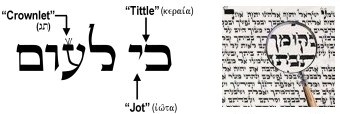
Click to listen to the Hebrew text with some commentary:
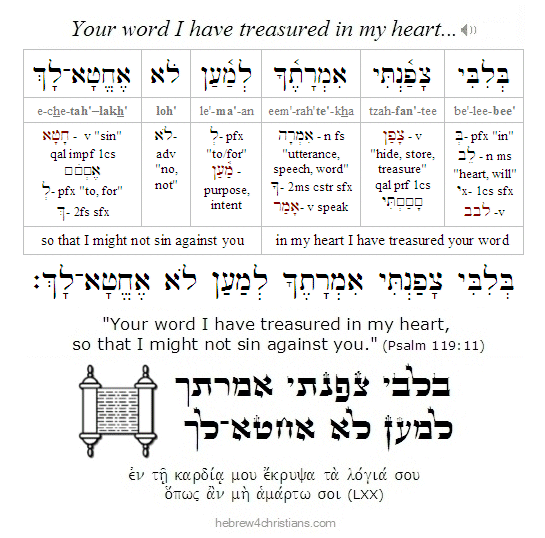
Some so-called Bible scholars claim that Yeshua spoke and taught in Aramaic and not in Hebrew. But consider this. If the law of God decreed that the king of the Jews was to "make a handwritten copy of the Torah" that was to perfectly match the Torah scroll protected by the priests of Israel (see Deut. 17:18-19), then surely Yeshua, who is the great King of the Jews, the Mashiach, would have read Hebrew and understood kotzo shel yod (קוֹצוֹ שֶׁל יוֹד) - "every jot and tittle" of its meaning (see Matt. 5:17-19). Indeed, Yeshua knew the traditional Hebrew blessings, prayers, and hymns (Matt. 26:26-30); he chanted Hebrew in synagogue (Luke 4:16), and he reasoned with the learned sages in Jerusalem, even as a young boy (Luke 2:42-27). Surely the true King of the Jews spoke lashon hakodesh, the holy language of Hebrew...
Teshuvah and Sanity...

[ "Victory over fear is the first spiritual duty of man." - Nikolai Berdyaev ]
07.15.24 (Tammuz 9, 5784) It is written in our Scriptures (2 Tim. 1:7) that "God has not given us the spirit of fear (πνεῦμα δειλίας), but of power, and love, and a sound mind" (the term "sound mind" comes from the word saos (σάος) "safe," or under the restraining influence of the Spirit of God). Understand the connection between fear and confusion, then, and note further the connection between having a sound mind and a heart of peace (Isa. 32:17).
A fearful or shameful attitude, then, weakens your resolve, quenches your love, and introduces pain to your thinking. It is the old ruse of the enemy of our souls to lead us to despair, the exile of shame, and cruel bondage to untruth.
As always the answer is the same: namely, teshuvah, turning to God and embracing the grace and love given in Yeshua as our deepest reality, our power, our heart, and our mind. May we be set free from all our fears by the wonder of his unfailing love!
Hebrew Lesson
Isa. 32:17 Hebrew reading (click):
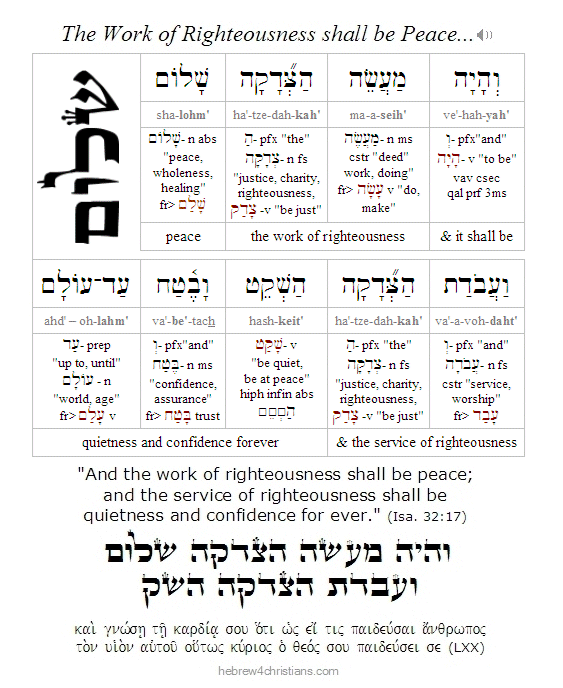 |
The Way of Perfect Peace...

[ If you leave everything in God's hands, eventually you will see God's hand in everything.... ]
07.15.24 (Tammuz 9, 5784) When we lose sight of the truth that God is in complete control of all things, we tend to grow anxious... Feeling worried comes from focusing on ourselves, a perspective that can make us feel alone, forgotten, and even victimized in this world. Worry moves us to defend ourselves, to seek refuge in our own devices, and to forfeit the will of God according to the dictates of lesser fears...
The sages say it is not permitted to worry: "To worry is a sin; only one sort of worry is permissible; to worry because one worries." We should worry that we worry because this indicates our hardness of heart and our unbelief. God's name YHVH (יהוה) means "Presence," "Breath," "Life," and "Love." So why should we be anxious for "tomorrow"? We really only have this moment, but this moment is entirely sufficient when we walk in the light of God and seek to know him in all our ways (Prov. 3:5-6).
The first part of the Shema (i.e., Deut. 6:4-9) admonishes us to remember the truth of God "when you sit in your house, when you walk in your ways, when you lie down, and when you rise up." "In all your ways know Him," that is, in all that you put your hand to do look for the God's Presence and guidance (Prov. 3:6; 1 Cor. 10:31). This is something you must do: As King David stated, "I have set the Lord always before me, because He is at my right hand, I shall not be moved" (Psalm 16:8). Make up your mind: "Let the peace of God rule in you" (Col. 3:15).
The Name of the LORD is "I-AM-WITH-YOU-ALWAYS," which implies that we always live within His Presence and care, even if we are sometimes unconscious of this truth (Matt. 28:20). As it is written in the prophets, hen al kapayim hachotikh: "Behold I have engraved you on the palms of my hands" (הֵן עַל־כַּפַּיִם חַקּתִיךְ; Isa. 49:16). Remember the One who stretched out his hands and died for your healing; remember that he said, "Do not be anxious about tomorrow... sufficient for the day is its own trouble" (Matt. 6:34). A
Again it is written in our Scriptures: "Do not be anxious about anything, but in everything by prayer and supplication with thanksgiving let your requests be made known to God" (Phil. 4:6). When we worry we heed voices of fear and begin to feel 'double-minded,' (i.e., δίψυχος), unstable, and unable to think clearly; we get restless and find it difficult to deeply breathe. We start to feel out of control, fearful that something bad will happen despite all our efforts or wishes to the contrary; we sense doom; we lose heart; we go dark...
The Scripture here admonishes us to pray when we are tempted to be anxious by focusing on something for which we are grateful. Doing so will instill the "peace of God" (שלום יהוה) that quells all our fears (Phil. 4:7). We gain the "light of life," that is, inner illumination from God, so that we can remain steadfast and unmovable in faith. We will experience complete peace, shalom shaleim (שלום שלם) when we make up our minds to trust in Him (Isa. 26:3).
Hebrew Lesson
Isaiah 26:3 reading (click):
Parashat Balak:
Overruling the Wicked
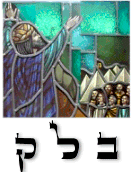
07.14.24 (Tammuz 8, 5784) Our Torah reading for this week is named after an ancient Moabite king named "Balak" (i.e., בָּלָק, "the destroyer") who sought to curse Israel by hiring the services of a flamboyant Midianite conjurer named "Balaam" (i.e., בִּלְעָם, "one set above the people"). It begins this way: "And Balak the son of Zippor saw all that Israel had done to Amalek (e.g., אֱמרִי) and grew fearful.
King Balak's malicious plan was to employ Balaam's sorcery (i.e., kashafut: כַּשָׁפוּת) against the Israelites to prevent them from entering the Promised Land. Similar to the delicious irony that befell the villain "Haman" in the Book of Esther, however, King Balak's scheme was likewise upended, and the curse he sought to put on the Jewish people was repeatedly pronounced as a blessing by Balaam instead. After several foiled attempts, Balak fretfully dismissed the prophet, but before departing from the dejected king, Balaam ironically prophesied the destruction of the Moabites and the victorious establishment of Israel.
Some peoples lives, it seems, are meant to serve as warning of the dangers of self-destruction.... The shameful story of Balaam reveals that "there is no enchantment against Jacob, no divination against Israel" (Num. 23:23). Ein od milvado (אֵין עוֹד מִלְבַדּו) - no weapon or scheme devised against God will ever prosper (Isa. 54:15-17).
But who was this mysterious prophet named Balaam? According to Jewish tradition, Jacob's wicked uncle Laban had a son named Beor (בְּעוֹר), who became the father of Balaam. In other words, the "cursing prophet" Balaam was none other than the grandson of Laban:
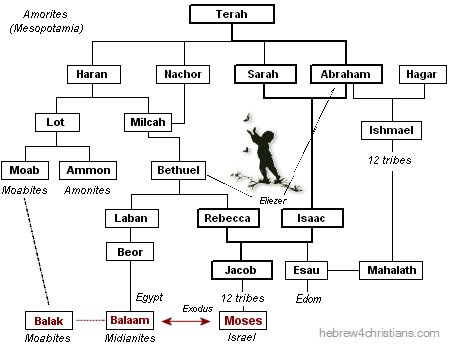 |
Note that the name "Beor" first appears in connection with a king of Edom (Gen. 36:32), which suggests that Balaam might have once been a king of the Edomites (i.e., the descendants of Esau). Further note the phonetic similarity to Peor. If Beor and Peor are the same, then Balaam was actually a prophet of Baal Peor, a local Semitic god.
Balaam was regarded as a great seer, magician and an adept in the occult. He had an "evil eye" and drew the spirit of demons to anything he gazed upon (Avot 5:22). His notoriety made him famous, and powerful people asked him to invoke curses on their enemies. The Talmud (Sanhedrin 106a) states that Balaam became so famous as a magician that he later became a chief advisor to Pharaoh. If so, then it might have been none other than Balaam who advised the new Pharaoh to enslave the Israelites and to afflict them with brutal taskmasters (Exod. 1:8-11). For more about the genealogy of Balaam, see the article entitled, "The Curses of Laban."
The Sin of Moses...
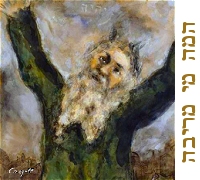
[ "All of them ate the same spiritual food, and all of them drank the same spiritual water. For they drank from the spiritual rock that went with them, and that rock was Messiah." - 1 Cor. 10:3-4 ]
07.12.24 (Tammuz 6, 5784) Our Torah portion for this week (i.e., parashat Chukat) includes the account of the sin of the great lawgiver of Israel: And God said, "Speak to the rock..." but Moses struck the rock twice with his staff" (Num. 20:8,11). This was Moses' transgression for which his punishment was exile from the Promised Land.
The punishment might seem severe, but God intended Moses' actions to be prophetic. When the people first demanded water at Rephidim, Moses was told to strike the rock with his staff (Exod. 17:6). The Hebrew word used to describe how Moses "struck" the rock is the same used to describe how Yeshua was "smitten by God" (Isa. 53:4). The Rock symbolized the Messiah, the One stricken for His people to give them waters of life (Isa 55:1; 1 Cor. 10:4). Moses' act of disobedience implied that rock needed to be stricken again to give life, instead of speaking to it as the "Living Rock."
In his frustration, Moses lost sight of the LORD by suggesting that he and Aaron were responsible for the miracle of the water ("listen, you rebels, shall we bring forth water for you?"[Num. 20:10]), and God could not leave those words unanswered before the people. That is why God told Moses that his exile from the land was the result of his sin not sanctifying (i.e., honoring) the LORD before the people of Israel (Num. 20:12).
Hebrew Lesson
Psalm 78:15 reading (click):
Note: The sages sometimes expressed dismay that Moses was bereft of seeing his dream come true by entering the Promised Land, but we know that there is a happy ending regarding that point (see Matt. 17:3).
The Foundation of Torah...
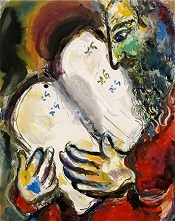
[ The following concerns the foundation of the Torah (yesod ha'Torah) and parashat Chukat... ]
07.12.24 (Tammuz 6, 5784) The commandments of God are usually divided between the rational laws (i.e., mishpatim) and the divine decrees (i.e., chukkim), though this distinction is somewhat artificial, since all of the commandments of Torah (and that includes the Torah of the New Covenant) are grounded in the mystery of God's will, which is to say that we are to obey them simply because they derive from the Divine Authority itself...
When the people gathered before Moses to receive the covenant at Mount Sinai, they said: "All the LORD has spoken we will do and we will hear" (na'aseh ve'nishmah: נַעֲשֶׂה וְנִשְׁמָע). Note the order: first comes faith in God expressed in the decision to act (na'aseh), and then comes understanding (ve'nishmah). As Yeshua said, "If anyone's will is to do God's will, he will understand" (John 7:17). The heart of faith is willing to do what God asks before hearing (or understanding) what is required. Many people operate the other way round, sitting in judgment of God's word, demanding to understand why they should obey.
You cannot understand apart from faith, however, and that is categorically true of all forms of knowledge, which is usually defined as "justified true belief." We are to be "doers of the word and not hearers only, deceiving ourselves" (James 1:22). The Greek verb used in this verse is emphatic: "Be doers!" (γίνεσθε) means "be born!" "Come alive!" "Do, live, and exist before God!" This is a call to creative action, to newness of life...
Hebrew Lesson
Exodus 24:7b reading (click):
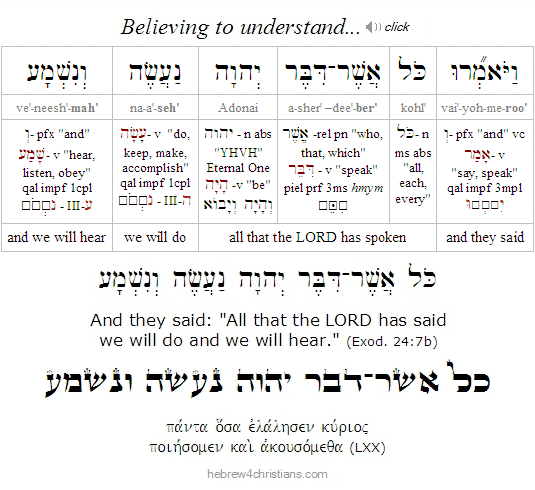 |
The Scriptures state that "if anyone is a hearer of the word and not a doer, he is like a man who looks intently at his natural face in a mirror. For he looks at himself and goes away and at once forgets what he was like" (James 1:23-24). If we just hear the truth but do not act upon it, we are comically likened to someone who looks his face over in a mirror but then promptly forgets what he looks like after he steps away... Likewise those who only hear the word but do not "bring it to life" in their deeds forget who they are and why they were created (Eph. 2:10; Titus 2:14; Col. 1:10). When we look into the mirror of truth we see our need for teshuvah and turn to God for the healing miracle he provides (Heb. 4:12).
It's not about doing but being, though being is revealed in doing... If your actions do not align with your values, then back up and recover who you really are in Messiah, understand what your new nature truly is. That is what it means to "take up the yoke" of Messiah, for his yoke is easy (kal) and burden is light, and the task is to repeatedly practice allowing Him to carry your pain, shame, and sin far, far away from your heart.
There is a deeper law, however, a "mirror" that reveals something beyond our passing image. When we look intently into the "perfect law of liberty" (תּוֹרַת הַחֵרוּת וּמַחֲזִיק) - the law of faith, hope, and love for our Savior - we find blessing in our deeds (James 1:25). Note that the verb translated "look into" the law of liberty is the same used when John stooped down to "look inside" the empty tomb of Yeshua (John 20:5). The deeper law reveals the resurrection power of God's invincible love. The Torah of the New Covenant also has many mitzvot, though these are based on the love God gives to us in Yeshua: "This is my Torah: that you love one another as I have loved you" (John 13:34).
Related Podcast:
The Scarlet Thread...
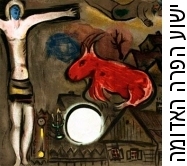
[ The following concerns this week's Torah reading, parashat Chukat... ]
07.11.24 (Tammuz 5, 5784) Shalom chaverim. This week we are reviewing the significance of the "Red Heifer" sacrifice as described in parashat Chukat. Recall that the Red Heifer was a completely red cow that was entirely burned on the altar - its hide, internal organs, and blood - and its ashes were then mixed with living water to create "waters of separation" that were used to cleanse from contact with death (Num. 19:1-10).
In this connection it is noteworthy that three elements used for purification (i.e., cedarwood, hyssop, and scarlet thread) were used not only for ritual cleansing from contact with death and tza'arat (see Lev. 14), but they were also used during the ratification of the covenant at Mount Sinai (see Exod. 24:8; Heb. 9:19-20) and indeed during the crucifixion of our Lord Yeshua.
Recall that "hyssop" (אֵזוֹב) is first mentioned regarding the application of the blood of the lamb upon the doorposts during the Passover (Exod. 12:22), and that King David later appealed to God for cleansing saying, "purge me with hyssop, and I shall be clean" (Psalm 51:7). A hyssop branch was also used to offer vinegar to Messiah during the time of his crucifixion (John 19:29). Likewise the wood from a cedar tree (עֵץ אֶרֶז) is likely the type of wood used for the cross of Messiah. And finally, scarlet (שָׁנִי) thread symbolizes both blood and royalty, and appears in the birth of Judah's children Zerach and Peretz (Gen. 38:28), in the coverings of the Mishkan (i.e., Tabernacle), as a sign of Rahab's faith (Josh 2:8,21), and as the color of the robe of Messiah during his crucifixion (Matt. 27:28). There are lots of fascinating and illuminating connections to be found as we study Torah as the context of Ha'Brit Ha'Chadashah!
Hebrew Lesson
Psalm 79:9 reading (click):
Seeing God's Light...
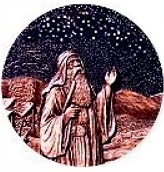
[ "Do not marvel that I say to you, 'You must be born again...'" - Yeshua ]
07.11.24 (Tammuz 5, 5784) By nature human beings are seemingly "thrown" into existence, subject to historical forces and pressures over which they have no control, bound to their DNA and biochemistry, hemmed in on all sides, powerless, full of ignorance and dark impulses. Yet the more people try to disentangle themselves from what cannot be changed, the more enmeshed they become. The natural order of life seems to be that we come forth out of the darkness of birth and return to the darkness of death - a pilgrimage of the unknown.
We need light to conquer our darkness, but we are blind. We cannot forgive ourselves or make ourselves feel loved. We can't find our way. By ourselves we cannot be delivered from fear, anger, or despair. Aristotle's logic is tragically sound: "All people are mortals; all mortals fear death; therefore all people fear death." We cannot escape ourselves; we cannot heal ourselves; we cannot save ourselves. Therefore all that hope believes can only be graciously given by God, for we are lost and must be found. We cannot find our way to eternal life: we must be brought home by the Good Shepherd who seeks for us.
We are saved by the miracle of divine intervention in our lives, and that alone truly changes us. This is called "regeneration" or spiritual rebirth. Just as we were powerless when we were physically brought into this world, so we are powerless when we are spiritually brought into the realm of the divine. We cannot change ourselves, that is, by our own strength or resources. Salvation is "of the LORD," which means it is God's power and love that sets us free. We become a "new creation" that finds its life in the blessing of the Living God. Before we see this, however, we have to become "sick of our sickness," tired, exhausted, and utterly conscious of our need for deliverance from ourselves. We can only come to know God as our Savior when we turn to Him as our only hope.
"Unless you are born again, you cannot see the kingdom of God." We are blind until God opens our eyes. When Yeshua gave sight to a man born blind, the Pharisees concluded that he could not be a true prophet of God because he healed someone on the Sabbath day (John 9). In response Yeshua said, "For judgment I came into this world, that those who do not see may see, and those who 'see' may become blind." When the Pharisees heard this they asked, "Are we blind then?" and Yeshua replied: "If you were blind, you would not be guilty of sin, but now because you claim that you can see, your guilt remains." Likewise the Apostle Paul was made blind in order to see; he had to lose the blindness of his seeing in order to behold the truth of God's kingdom (Acts 9). As long as Paul thought he could see he remained blind, but as soon as he realized he was blind, he began to be able to see...
The difference between believers and unbelievers does not turn on the problem of sin and the condition of spiritual death - for both are in the same helpless state before God - but rather with the different responses they have toward "the light," that is, the revelation of God manifest in Yeshua. Those who love evil hate the light and turn away from its disclosure, whereas those who "do truth" love the light so that their deeds are revealed as God's power at work within their hearts (John 3:19-21; Eph. 5:13). There is an "exclusive disjunction" in the realm of the spirit: either you will love what is evil and hate the light, or you will love the light and hate what is evil. As Yeshua said: "No one can serve two masters, for either he will hate the one and love the other, or he will be devoted to the one and despise the other" (Matt. 6:24).
Followers of Yeshua are told to "walk as children of light" / ὡς τέκνα φωτὸς περιπατεῖτε (Eph. 5:8). The children of light are called to be "am kadosh" - a holy people - separate from the evil engendered by the fallen world and its forces, just as the very first creative expression of God was the separation of light from darkness (Gen. 1:3-4). The children of light "hate evil and love the good," and conversely, the children of darkness "hate the good and love evil" (Psalm 34:21, Prov. 8:13, Amos 5:15, John 3:20-21). Regarding the heavenly Zion to come, it is written: "nothing ritually unclean will ever enter into it, nor anyone who does what is detestable or practices falsehood (lit. "makes a lie"), but only those whose names are written in the Lamb's book of life" (Rev. 21:27).
This is the question of the gospel, after all: Are you willing to believe in the light of God's love, or not? What is your destiny? Yeshua is the light of the world, and those who follow him will not walk in darkness, but will have the light of life (John 8:12). So, do you have "ohr ha-chayim" (אוֹר הַחַיִּים), "the light of Life," shining within your heart? The light beckons: "wake up, open your eyes, and believe" the good news: darkness and despair will not prevail; your mourning will find comfort, your grief its solace. Your heart's deepest longing shines brightly, even now, if you will but believe... Now may you find courage and remember what is written: "The LORD is my light and my salvation (i.e., my Yeshua); whom shall I fear? The LORD is the refuge of my life; of whom shall I be afraid?" Amen.
Hebrew Lesson
Psalm 27:1 reading (click):
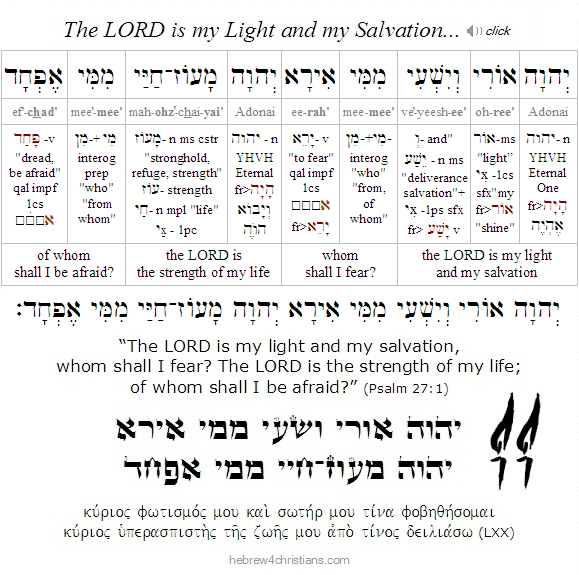 |
Sowing and Reaping...
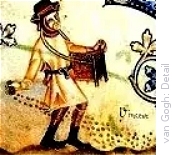
[ We are always "sowing" into our hearts and "reaping" its consequences in our lives... ]
07.11.24 (Tammuz 5, 5784) "Do not be deceived: God is not mocked, for whatever one sows, that will he also reap. The one who sows to his own flesh will from the flesh reap corruption, but the one who sows to the Spirit will from the Spirit reap eternal life" (Gal. 6:7-8). Here we see the importance of attending to the divine nature imparted to us in Messiah - to "sow" or "plant" truth within our hearts so that we will yield the "fruit of righteousness." However, feeding the lower nature, gratifying the desires of the flesh, disregarding the truth of eternity for the sake of temporal pleasure, and so on, leads to corruption and to death. "For to be carnally minded is death, but to be spiritually minded is life and peace" (Rom. 8:6).
Spirituality (i.e., ruchaniyut: רוּחָנִיוּת), then, is of utmost importance to us, as we learn to "renew our minds" and yield ourselves to the truth of God (Gal. 5:16). We are engaged in the battle daily - an internal struggle to direct our hearts and to make the decision to be awake to the Lord's Presence or to surrender to our fallenness, fear, and despair (Rom. 8:13).
The Lord has promised us his very strength for the battle, but we must choose to believe in order to receive the blessing. Since God will assuredly help us as we seek to honor and do His will (see 1 John 5:14), we can be confident of blessing as we draw near to the Throne of Grace to receive mercy and find grace to help in time of our need (Heb. 4:16).
God is forever faithful and makes the way of escape for those who trust in him (1 Cor. 10:13). The LORD God Almighty says to your heart: "Fear not, for I am with you; be not dismayed, for I am your God: I will strengthen you, yea, I will help you, yea, I will uphold you the right hand of my righteousness (Isa. 41:10).
Hebrew Lesson
Isaiah 41:10 reading (click):
Mirrors of Forgiveness...

[ "Therefore, from now on, we regard no one according to the flesh... If anyone is in Messiah, he is a new creation; old things have passed away; behold, all things have become new." - 2 Cor. 5:16-17 ]
07.10.24 (Tammuz 4, 5784) It's tragic that many want to retaliate against those who have hurt them, clinging to their woundedness and allowing bitterness to take root in their hearts. Holding grudges, harboring spite, and seething in anger are common and deadly sins.
Interestingly, the common English word "resentment" literally means the state of "feeling again," alluding to the reliving of an offense, real or imagined, that can fester into an angry and unforgiving attitude of the heart that refuses to let go... "Anger and resentment are like drinking poisoned waters -- and hoping the other person will die." The English word "forgiveness," on the other hand, means just the opposite, that is "giving up" or "letting go" of the desire for retribution or revenge. Of course it is not easy to forgive someone who has hurt you. Often we must repeatedly "give away" our pain by finding a way to let it go. We do not "forgive" by rationalizing or denying our hurt; we learn to surrender it and allow it to become a blessing..
Many wounded people live with "scar tissue" that surrounds their heart, making them feel numb and unwilling to open up and trust others. Their affections have become disordered and their ego rationalizes blaming others or seeking various forms of entitlement. "Turning off your heart" can mean suppressing any positive regard for others (empathy) while nurturing anger and self-righteousness, or it may mean withdrawing from others as a lifeless shell (both approaches vainly attempt to defend the heart from hurt). Although Yeshua always showed great compassion, especially to the wounded and broken in spirit (Isa. 42:3), He neverthess regularly condemned the "hardness of heart" ("sclero-cardia," σκληροκαρδία) of those who sought self-vindication and who opposed his message of forgiveness and love.
Yeshua warned that transgressions were inevitable - and he warned of great sorrow that would come to those through whom they come (Luke 17:1) - but he did not fulminate against the deeds of the wicked as much as he focused on our need to forgive others when they sinned against us. Indeed, Yeshua considered our need to forgive to be one of the most crucial matters of life itself, a corollary of the gospel message itself.
Consider Peter's response to Yeshua's teaching about correcting a brother who sins against another (Matt. 18:15-20). When he asked how often he should forgive someone who had sinned against him, wondering if "seven times" was sufficient before he could justifiably "excommunicate" him (see Luke 17:3-4), Yeshua corrected him by saying, "not seven times, but seven times seventy times," in effect saying that forgiveness was an ongoing attitude of the heart, unlimited in its scope and application...
To illustrate what he meant, Yeshua likened the kingdom of heaven to the reign of a king who took account of his servants, discovering one who owed him an enormous sum of money. The debtor was unable to pay so the king then ordered him to be sold, along with his wife, children, and all of his possessions. The servant threw himself to the ground and begged the king for mercy, saying, "O Lord, have patience with me and I will repay you everything." The king, moved with compassion, then graciously forgave him his debt.
Some time later, however, the selfsame servant found a fellow servant who owed him some money and grabbed him by the throat, saying, "Pay me what you owe me!" In response his fellow servant threw himself to the ground and begged the man, saying, "O have patience with me and I will repay you everything." But the man refused the appeal and had him thrown in prison until he repaid the debt.
When the king's other servants understood what had been done, they were grieved and came before the king to tell him what had happened. The king then summoned the man and said, "O you wicked servant! I forgave you all that debt because you pleaded with me. Should you not also have had compassion on your fellow servant, just as I had pity on you?" The king then remanded him to the torturers until he should pay all that was due to him. Yeshua then concluded the parable by saying: "This is how my Heavenly Father will treat each of you unless you forgive your brother from the heart" (see Matt. 18:23-35).
Our Lord was warning us that if we do not forgive our brother "from the heart," that is, sincerely and without dissimulation, we will hold the fires of resentment within us and consign ourselves to grave suffering. This is the "middah keneged middah" principle, "like for like," and measure for measure: "as you do unto others, so will be done unto you." Therefore we see that forgiveness is not "recommended" for a godly life, it is absolutely essential. Forgiving "from the heart" relieves the inner pressure and pain induced by resentment, and the anger will dissipate. Your tension will be gone and you will feel lighter and set free. As it is written: "With the merciful you will show yourself merciful, with the upright you will show yourself upright; with the pure you show yourself pure" (Psalm 18:25-26).
It is important to understand that forgiveness is not an attempt to rationally understand or "explain away" sin; nor does it try to reduce (or "deconstruct") evil in "naturalistic" terms. No, forgiveness deals with spiritual reality, that is, behavior that violates God's moral truth and law, and therefore the doer of moral evil is under divine judgment. God's forgiveness is costly and never cheap. It is a "severe mercy" that cost him the sacrifice of his son to release us from the debt we owe. And it is a gift, a sacrifice freely offered to repay what the sinful person owes. Forgiveness is therefore a conscious decision - an act of the will - that releases the sinful person from their guilt and lets go of any desire for revenge.
Because "we cannot give what we do not have," the ability to forgive comes from something outside of ourselves, namely, the miracle of God's life-giving grace accepted within the trusting heart. As we receive forgiveness from God, so we are obligated (and enabled) to practice forgiveness toward others. This is the "divine reciprocity," the "balance" of a heart that is in genuine communion with Him. How we respond to God is revealed by how we treat others. What we do affects God's heart, just as what God does affects our hearts.
Your forgiveness is your forgiveness: as you forgive, so you reveal your heart. What you do comes from what you are, not the other way around... We are first transformed by God's grace and then come works of love. We are able to judge others mercifully, with the "good eye," because we come to believe that we are beloved by God.
On the other hand, if we refuse to forgive others, we thereby subject ourselves to God's judgment. Our indignation inwardly appeals to God as Elohim (אלהים), the Judge, rather than as YHVH (יהוה), the merciful Savior. But appealing to God for retribution for another's sin is to fall under judgment ourselves (see Rom. 2:1-3). Hardening our heart locks us into a torture chamber of our own choosing. "This is how my Heavenly Father will treat each of you unless you forgive your brother from the heart" (Matt. 18:35). Refusing to be merciful to others is self-destructive and deeply painful. "Hurt people hurt people," and bitterness invariably leads to desolation and hopelessness. "Despair has been called the unforgivable sin - not presumably because God refuses to forgive it, but because it despairs of the possibility of being forgiven" (Frederick Buechner).
Just as God graciously paid the price for our forgiveness, he expects us to pay the price of forgiving others as well. "The discretion of a man defers his anger; and it is his glory to pass over a transgression" (Prov. 19:11). In the parable mentioned above, Yeshua says the refusal to forgive your brother is wickedness: "O you wicked servant! I forgave you all that debt because you pleaded with me. Should you not also have had compassion on your fellow servant, just as I had pity on you?" (Matt. 18:32-33).
The consequences of retaining an unforgiving spirit are dreadful: the prison cell of resentment tortures the heart, extinguishes hope, and ultimately destroys the soul. "See to it that no one comes short of the grace of God, that no one be like a bitter root springing up and causing trouble, and through him many become defiled" (Heb. 12:15).
Deliverance from bitterness requires the miracle of God given in the gospel. What is at stake is the very salvation of your soul. If you find yourself unable to forgive, revisit the cross of Yeshua and behold how he bore your sin and paid for your freedom through his utmost agony and suffering. When we truly receive the miracle of grace it will show up in our interpersonal relationships (as well as in our relationship with ourselves).
Forgiveness is "easy" to those who have little to be forgiven, but the message of the cross is that we are in great need of healing, that our sinful heart is a disaster for us, and that we are desperately ashamed and in need of utmost reconciliation. In your struggle, ask the gracious Lord to increase your faith: "Lord, I believe: help my unbelief." Go to the cross, with your sin and your need before you, and pour out your heart in confession. Trust your Heavenly Father to fulfill his perfect will in your life. The Lord is able and willing to give you a new heart and a new spirit according to his sure promise. Amen.
Hebrew Lesson
Psalm 51:10 reading (click):
Beauty for Ashes....

[ The following is related to this week's Torah reading, parashat Chukat... ]
07.09.24 (Tammuz 3, 5784) The ashes of the red heifer represented the death and sacrifice of something extremely rare, valuable, and precious. The ashes were mixed with "living water" (מַיִם חַיִּים) to reveal the truth that though the end of all flesh is but dust and ashes, the Spirit gives cleansing and life.
Indeed the word ashes (אֵפֶר) may be rearranged to spell both cure (רַפֵא) and beauty (פְאֵר). The author of the book of Hebrews argues from the lesser to the greater: If the sprinkling of water mixed with the ashes of a red heifer purify the flesh from contamination with physical death, how much more does the blood of Messiah purify the soul from the deeds that cause spiritual death? (Heb. 9:13-14).
Amen, because of Yeshua's sacrifice we are given "beauty for ashes, the oil of joy for mourning, the garment of praise for the spirit of heaviness," that we may be called oaks of righteousness, the planting of the LORD, that He may be glorified (Isa. 61:3).
Hebrew Lesson
Psalm 30:11 reading (click):
Saved from Death's Sting...
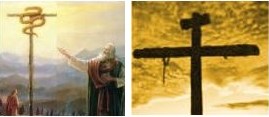
[ The following concerns this week's Torah reading, parashat Chukat... ]
07.09.24 (Tammuz 3, 5784) Where it says, "All Scripture is breathed out by God and profitable for teaching, for reproof, for correction, and for training in righteousness" (2 Tim. 3:16), we note that the "Scriptures" referred to are the words of Torah, since the New Testament had not yet been compiled when Paul had written these words. Paul further said: "These things (i.e., the stories recounted in the Torah) happened to them as examples for us. They were written down to warn us, who are living at the end of the age" (1 Cor. 10:11). "The deeds of the fathers are signs for the children," meaning that the narratives of the Bible serve as allegories for us.
From our Torah portion this week (i.e., Chukat) we read how the people became discouraged along the way and complained against God and Moses, saying: "Why have you brought us up out of Egypt to die in the desert? For there is no food and no water, and our soul loathes this worthless bread (i.e., לֶּחֶם הַקְּלֹקֵל, lit. "cursed bread," referring to the heavenly manna). So the LORD sent venomous serpents (i.e., ha'nechashim ha'seraphim: הַנְּחָשִׁים הַשְּׂרָפִים, i.e., bronze colored snakes that gave a burning bite) among the people, and they bit the people and many of the people of Israel died. Then the people came to Moses and said, "We have sinned, for we have spoken against the LORD and against you. Pray to the LORD that He take away the serpent (ha'nachash: הַנָּחָשׁ) from us." So Moses prayed for the people and the LORD then said to him, "Make a fiery serpent (i.e., saraf: שָׂרָף), and set it on a pole (i.e., nes: נֵס); and it shall be that everyone who is bitten, and who looks upon it (i.e., the serpent), shall live" (Num. 21:4-8).
The "fiery serpent" – the venomous sting of which brings death – is what must be looked upon, confronted, and confessed. We must look at that which kills us, and by seeing it, we can then see God's miracle (i.e., nes: נֵּס) that delivers us... Therefore we look to the cross – the place where Yeshua clothed himself with our sickness and sin – to behold God's remedy for our eternal healing. As Yeshua explained to Nicodemus, "As Moses lifted up the serpent in the wilderness, so must the Son of Man be lifted up, that whoever believes in him may have eternal life" (John 3:14-15). Humanity as a whole has been "bitten by the snake" and needs to be delivered from its lethal venom. And just as the image made in the likeness of the destroying snake was lifted up for Israel's healing, so the One made in the likeness of sinful flesh (Rom. 8:3) was to be lifted up as the Healer of the entire world. In Yeshua the miraculous exchange takes place: "For our sake he made him to be sin who knew no sin, so that in him we might become the righteousness of God" (2 Cor. 5:21). This is the essence of the gospel message itself...
Hebrew Lesson
Numbers 21:8b reading (click):
The sickness of sin is lethal, and there is no remedy apart from turning to behold Yeshua, the "fiery serpent" lifted upon a stake, the One crucified for our deliverance (Num. 21:8; John 3:14; Gal. 3:13). The teshuvah of God is to turn away from yourself to behold the miracle of God's righteousness given for your sake, and therefore it is a matter of radical faith.
Paradox and Faith...

07.08.24 (Tammuz 2, 5784) Our Torah portion this week (i.e., Chukat) describes the sacrifice of parah adumah (פרה אדומה), or the "Red Heifer" (see Num. 19:1-10). The Red Heifer is considered paradoxical to most Jewish thinkers, since the one who offers this sacrifice becomes ritually impure, while the sprinkling of the ashes from it makes people clean... The ritual is considered chok (חק) within Jewish tradition, meaning that it makes no rational sense. The Talmud states that of all the 613 commandments given in the Torah, even King Solomon with all his wisdom could not fathom this decree. However, the sacrifice of Yeshua the Messiah can be understood as the fulfillment of the symbolism of the Red Heifer: Both were entirely rare and without defect (sin); both were sacrificed "outside the camp"; both made the one who offered the sacrifice unclean but made the one who was sprinkled by it clean; and finally, both sacrifices cleanse people for priestly service.
The Red Heifer had to be a perfect specimen (temimah) that was completely red, "without blemish, in which there is no defect (mum)." The rabbis interpreted "without blemish" as referring to the color, that is, without having so much as a single white or black hair. This is the only sacrifice in the Torah where the color of the animal is explicitly required. Moreover, the Red Heifer was never to have had a yoke upon it, meaning that it must never have been used for any profane purposes.
Unlike all other sacrifices offered at the altar, the red heifer was taken outside the camp and there slaughtered before the priest, who then took some of its blood and sprinkled it seven times before the Mishkan (thereby designating it as a purification offering). [During the Second Temple period, the High Priest performed this ceremony facing the Temple while atop the Mount of Olives.] Then the red heifer would be burned in its entirety: its hide, flesh, blood, and even dung were to be burned (unlike other Levitical korbanot). Do not miss this: unlike all other animal sacrifices, all the blood of the offering was to be burned in the fire.
Hyssop, scarlet yarn, and a cedar stick would then be thrown upon the burning Red Heifer (these same items were used to cleanse from tzara'at, skin disease). In other words, the blood was assimilated into the ashes of the sacrifice, which were then gathered and mixed with water to create the "water of separation" (mei niddah) for the Israelite community. Note that the word "separation" (niddah) refers to menstrual impurity and hearkens to Zech. 13:1: "On that day there shall be a fountain opened for the house of David and the inhabitants of Jerusalem, to cleanse them from sin and from niddah."
Anyone (or anything) that came into contact with a corpse (the embodiment of sin and death) was required to be purified from tumah by means of the mei niddah. The purification procedure took seven days, using stalks of hyssop dipped into the water and shaken over the ritually defiled person on the third day and then again on the seventh day. After the second sprinkling, the person undergoing the purification process would be immersed in a mikvah (pool of running water) and then be unclean until the following evening.
According to Jewish tradition, the red heifer sacrifice was to atone for the sin of the Golden Calf, though the Torah itself does not make this association. The LORD Yeshua, our High Priest of the New Covenant, is the perfect fulfillment of the Red Heifer, since he was completely without sin or defect (2 Cor 5:21; John 8:46); he was sacrificed outside the camp (Heb 13:13); he made himself sin for us (2 Cor 5:21); his sprinkling makes us clean (1 Pet 1:2; Heb 12:24; Rev 1:5); and the "water of separation" that his sacrifice created is the means by which we are made clean from the impurity of sin (Eph 5:25-6; Heb 10:22).
As mentioned above, Torah commandments (mitzvot) that defy reason are called "chok" (חק). The Jewish sages tend to focus on the Red Heifer as the "mother of all mystery mitzvas," but surely we must go back to the Akedah - that is, to the sacrifice of Isaac at the hand of his father Abraham - as the greatest of God's decrees that defy human reason. The willingness of both Abraham and Isaac to obey - despite their inability to understand - was a direct result of their unwavering faith in God's love and promises. Likewise the heart of our faith says simply: "Jesus saves." His sacrifice saves us from sin and death, yet this also is "chok" - a matter of faith... We may seek logical reasons or explanations, but ultimately it is a matter of divine mystery, just as the darkness covered the earth while the Savior suffered for us on the cross at Calvary (Mark 15:22). "Jesus saves" is the mystery of our confession (Rom. 10:9-10). We are cleansed by our contact with sin and death through him, just as he bears our sin and defilement on our behalf. as it is written: "God made the One who did not know sin to be sin for us, so that in him we would become the righteousness of God" (2 Cor. 5:21).
"But when Messiah appeared as a High Priest (כּהֵן גָּדוֹל) of the good things that have come, then through the greater and more perfect tent (not made with hands, that is, not of this creation) he alone entered once for all into the Holy Places, not by means of the blood of goats and calves but by means of his own blood, thus securing an eternal redemption (גְּאוּלַּת עוֹלָם). For if the blood of goats and bulls, and the sprinkling of defiled persons with the ashes of a heifer (אֵפֶר הַפָּרָה), sanctify for the purification of the flesh, how much more will the blood of Messiah (דַּם הַמָּשִׁיחַ), who through the eternal Spirit (בְּרוּחַ עוֹלָם) offered himself without blemish to God, purify our conscience from dead works to serve the living God (אֱלהִים חַיִּים)?" – Heb. 9:11-14
The Torah of the new covenant is inner, deeper, and eternal, whereas the Torah of the older covenant is outer, limited, and subject to transformation (Heb. 7:12; 8:13). The older covenant foretold of the coming Substance by means of the "ashes that purify the impure yet make the pure, impure." Only after we have been "sprinkled with the ashes" are we made clean from death; only when we make contact with the "ashes of Yeshua" offered on our behalf are we cleansed from sin and death (1 Pet. 1:2; Heb. 10:22).
Podcast:
Hebrew Lesson
Psalm 51:7 reading (click):
Cleansing from Death...
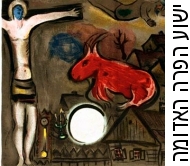
[ The following entry concerns this week's Torah reading, parashat Chukat, though the mysterious themes of purity and impurity are first described in parashat Tzav... ]
07.08.24 (Tammuz 2, 5784) Contact with the dead causes spiritual impurity (i.e., tumah) because death, as the separation from life, is the ultimate expression and consequence of sin. People routinely deny the meaning of death, explaining it away as the result of some cause from which one might escape ("he worked too hard," "she got sick," "it was an accident," etc.). People rationalize death because they refuse to see it as the effect of sin, the consequence of the original transgression of Adam and Eve that humanity as a whole has "inherited" (Gen. 2:17; 3:19; Rom. 5:12). Therefore the Torah states that the birth of a child results in impurity (Lev. 12:2,7). Full atonement comes from "digging up the root of sin" by being purified from its source, namely, the metaphysical curse of death itself. The Red Heifer alludes to the sin of the Golden Calf, which finds its source in the original idolatry of Adam and Eve. Even the blood of the sacrifice was burned to ash "outside the camp," putting a complete end to the "life of death" and its power to corrupt. The Red Heifer is therefore a special sort of "sin offering" (chatat) that cleanses from contact with death itself (Num. 19:9).
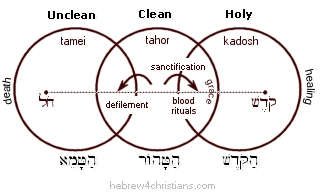 |
Note: The "fall" of man implies that we have contact with death - both inwardly and outwardly. The sacrifice of Yeshua as our "Red Heifer" cleanses us from all tumah and lovingly makes us clean (tahor) before the Father. The "water and the blood" is part of the "olah sacrifice" of Yeshua for our redemption and purification before God offered at Calvary (John 19:34, 1 John 5:6). The water and blood flowing from His wounds are the means by which we are purified from sin and death... All this comes from the love (chesed) of God given in our Messiah and Savior. Just as the sacrifice of the Red Heifer cleansed from the effects of physical death, so the sacrifice of Yeshua cleanses us from the effects of spiritual death. For more on this subject, see the "Gospel of the Red Cow."
Hebrew Lesson
Psalm 51:2 reading (click):
The decree of Torah:
Parashat Chukat (חֻקַּת הַתּוֹרָה)...
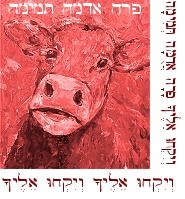
07.07.24 (Tammuz 1, 5784) Our Torah portion this week (i.e., parashat Chukat) begins with the words: "zot chukat ha-Torah" (זאת חֻקַּת הַתּוֹרָה), "this is the decree of Torah" (Num. 19:2), referring to the sacrifice of a specially chosen red cow (פרה אדומה) whose ashes would be used to purify someone contaminated by contact with a dead body. The language of the Torah here is both striking and unique, suggesting that this ritual is the "seminal decree" of the entire Torah.
The red cow (or "red heifer") had to be a perfect specimen "without blemish, in which there is no defect." The sages interpreted "without blemish" to refer to the cow's color, that is, it was to be without a single white or black hair. This is the only sacrifice in the Torah where the color of the animal is explicitly required. Moreover, the cow was never to have had a yoke upon it, meaning that it must never have been used for any profane purposes.
Unlike other sacrifices offered at the altar at the Tabernacle, the red heifer was taken outside the camp to be slaughtered before the priest, who then took some of its blood and sprinkled it seven times before the Tabernacle. Then the heifer would be burned in its entirety: its hide, flesh, blood, and even dung were to be burned (unlike other sacrifices). Also unlike other offerings, the blood of the sacrifice was to be completely burned in the fire.
Hyssop, scarlet yarn, and a cedar stick would then be thrown upon the burning heifer, which were the same items used to cleanse from tzara'at (skin disease). These items, along with the blood of the red heifer, were therefore assimilated into the ashes of the sacrifice, which were gathered and mixed with living water to create what was called the "waters of separation" (i.e., mei niddah: מֵי נִדָּה) for the community. Anyone that came into contact with death (i.e., a corpse) was required to be cleansed using these waters. The purification procedure took a full seven days, using three stalks of hyssop dipped into the water and shaken over the defiled person on the third day and then again on the seventh day. After the second sprinkling, the person was immersed in a mikvah and was declared "clean" the following evening.
The sages have said that this commandment is "chok," meaning that it transcends human reason, and therefore we are to simply accept it by faith. If we think about the meaning of the red heifer sacrifice, however, we will realize that its ashes were used to cleanse people from contact with death. To fulfill God's decree, however, required sacrificial love, since the priest who offered this service would himself become defiled (separated) for the sake of healing of others.
The Hebrew word for love is ahavah (אַהֲבָה), from a root verb (יָהַב) that means "to give." Love means giving of yourself to benefit another person (John 15:13). This central decree of Torah, then, which is beyond our ability to rationally understand, is that God's love is so great that it is willing to become "dust and ashes" on our behalf so that we might find blessing and life.
Abraham Twerski comments: "The mitzvah of parah adamah (i.e., the red heifer) represents the suspension of logic in deference to the Divine Will. This attitude is not restricted to this mitzvah. Scripture introduces the mitzvah of the parah adamah with the words "this is the law of the Torah." Surrendering one's own reasoning and accepting the superior reasoning of God is the law of the entire Torah... To the extent that we let go of our own will, we can understand the Divine will. Our ancestors at Sinai understood this ideal when they proclaimed, "we will do and then we will understand." Torah is not beyond our understanding, but we must be willing to make the sacrifices that true Torah understanding demands."
Yeshua willingly became unclean on our behalf - through contact with our sin and death - so that we could become clean (see Isa. 53:4, 2 Cor. 5:21, Gal. 3:3, Eph. 5:2, Titus 2:14). The pure became impure through His sacrificial offering. Because of Him, we have been cleansed from our sins (and the separation of death) "by a better sprinkling" than that which the Tabernacle of Moses could afford (Matt. 26:28, Heb. 9:14, 12:24, Eph. 1:7, 1 Pet. 1:2,18-19, Rom. 5:9; Col. 1:14, 1 John 1:7, etc.). Amen, blessed is the name of the LORD.
Chukat Audio Podcasts...
There are two connected podcasts for this week's Torah portion (i.e., parashat Chukat). In the first podcast I discuss the meaning of the mitzvot (commandments) of the written Torah, including the subcategories of chukkim (decrees), mishpatim (rules or judgments), eidot (testimonials, holidays) with a discussion of the oral tradition's corresponding categories of halakhah (oral law) and its subcategories of gezeirot ("fences"), takkanot (case laws), and minhagim (customs). Throughout special attention is given to how Yeshua the Messiah is the Substance and Inner Meaning of all true Torah. In the second podcast I discuss: 1) the significance of the mysterious Red Heifer (פרה אדומה) sacrifice, 2) the gospel message of the nachash nachoshet (the "bronze serpent"), and 3) the sin of Moses...
It is best to listen to these broadcasts in order:
The Word "Chukat"...
In connection with our Torah reading for this week, parashat Chukat (חוקת), we note that the Hebrew word "chok" (חוֹק) means a "divine decree," related to a verb meaning "to engrave" (לַחקוֹק). The sages say that the word is directed to a desire to do God's will that is "engraved" upon the heart (חקוק על הלב) rather than simply understood with the intellect (2 Cor. 3:3).
Indeed the very first time "chok" (חוֹק) appears in the Torah concerns Abraham's obedience of faith as demonstrated by the "Akedah" sacrifice (קרבן עקדה) of his beloved son (Gen. 26:5), and the second time concerns the sacrifice of the Passover Lamb of God: (כבש הפסח) "This day shall be for you a memorial day, and you shall keep it as a feast to the LORD; throughout your generations, as an eternal decree (חֻקַּת עוֹלָם), you shall keep it as a feast (Exod. 12:12-13).
Because both the Akedah and the sacrifice of the Passover lamb reveal God's "yeshuah" (יְשׁוּעָה), his salvation, we are to engrave the significance of our deliverance by the Lamb of God within our hearts forever. Just as God Himself has engraved us upon his own heart, it is written, "behold, I have engraved you on the palms of my hands" (הֵן עַל־כַּפַּיִם חַקּתִיךְ; Isa. 49:16).
Hebrew Lesson
Isaiah 49:16 reading (click):
Lessons from Korah...
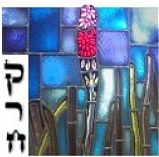
[ The following entry concerns this week's Torah reading, parashat Korach... ]
07.05.24 (Sivan 29, 5784) This week we read the dramatic story of Moses' cousin Korah who led a rebellion against Moses after the Israelites were turned away from the promised land and sentenced to wander forty years in the desert of Sinai. God quickly judged Korah's rebellion and vindicated the laws of the priesthood and Moses' leadership of Israel.
This story is a sober one that raises several provocative questions about our responsibility to submit to God's authority. On the one hand, the example of Korah teaches that we should obey God's direction for our lives and accept his will, lest we too should incur divine judgment. "For rebellion is as the sin of witchcraft, and stubbornness is as iniquity and idolatry" (1 Sam. 15:23).
When Korah questioned Moses' role as the divinely appointed leader of Israel, he was actually doubting God's plan of the redemption itself. Apparently Korah thought there was nothing special about his cousin, and indeed any Jew could be a leader. He asked: "Who is Moses? All of the people are holy!" (Num. 16:3). Now Moses likely didn't blame Korah for his wonder. After all, he knew he was a lowly and broken man whom God called during his exile in the land of Midian. God chose him to be his mediator, however, precisely because of this powerlessness and humility. Recall how Moses protested at the vision of the burning bush, reminding God that he was not worthy to lead Israel out of their slavery in Egypt. He even begged the Lord to send someone other than him to be his ambassador to Pharaoh (see Exod. 3:1-4:17).
Moses repented of his fear and submitted to be God's ambassador to the people, though he wrestled with his own inadequacies. Later, after the great Exodus, he remained broken and surrendered as he interceded on behalf of the people and proclaimed God's will, both at Mount Sinai - where he was given the Torah and the pattern of the Tabernacle - and later as he communed with God and faithfully directed the journey of the people to the promised land. So it should be clear that Korah's problem with Moses wasn't really about Moses after all. No, it was a problem he had with God. Like the faithless spies, Korah had trouble trusting God. Despite everything he had seen with his own eyes - the miracles of Moses and Aaron, the wonders of the Exodus from Egypt, the deliverance of the people as they crossed the sea, the manna that fell from heaven, the fiery glory at Mount Sinai and the audible witness of God from the midst of the Cloud - despite all this, Korah still questioned: "Is the LORD among us or not?" (Exod. 17:7).
It seems almost incomprehensible that Korah failed to trust in God after all he had seen, which again teaches us that seeing isn't believing, but the other way around. But perhaps he was suffering from post traumatic stress. Maybe many were in shock after all they had been through. The sudden displacement and loss of their homeland in Goshen; the suffering they witnessed during the judgments of the plagues, the terror of the Passover judgment, the frenetic activity to flee from the land of Egypt, and the insanity they must have felt as they saw the dead bodies of Pharaoh's army silently floating in the very waters that they had walked across during their nighttime flight to freedom... Perhaps Korah had trouble accepting Moses' leadership because he was unable to understand all that had happened...
Nevertheless, as difficult as it is to fathom Korah's mindset and lack of faith, it is clear that he wrestled with a desire to control things and to be a "man of power." The Torah introduces us to him by succinctly saying "Korah took..." suggesting the essential character of the man. The Midrash Rabbah notes that Korah was quite wealthy in Egypt, a nobleman accustomed to being respected among his people. The Exodus completely uprooted and changed his life, and perhaps he was anxious that he was no longer a man of worldly prominence. He no longer understood himself or his place in the new world order. Korah's envy was dangerous not because he honestly wanted to serve the Lord and his people, but because he wanted recognition as leader who would significantly contribute to the direction and destiny of the people of Israel....
Eventually Korah appealed to others who likewise felt dejected and displaced. He protested the social order, saying it was unjust and oppressive. He gained the audience of the disaffected crowd and others who fellt marginalized. Eventually Korah and his sympathizers decided it was time to take action and to openly revolt. "Then they united themselves against Moses and Aaron and said to them, 'You take too much upon you, for all the congregation is holy, every one of them, and the LORD is among them. Why then do you exalt yourselves above the congregation of the LORD?" (Num. 16:3). Moses' reaction revealed his surrendered character: "When he heard this, Moses fell on his face" in intercession before the Lord.
The madness of Korah led him to play the part of a "social justice warrior" who wanted to "deconstruct" the status quo that was governed by Moses and to give the "power to the people." Korah became a political opportunist who sought to "democratize" God's will by giving each person the right to vote on matters of the community. His apparent assumption was that the people have the collective wisdom to guide themselves, and that God's voice is disclosed by the will of the people. "Vox populi vox populi," the voice of the people is the voice of God...
The problem with Korah's political philosophy or theory, however, was that "democracy" often reduces to a matter of "majority rule" that leads to "might makes right" decisions... Minorities are often its victims. In many cultures today slavery is still considered "right" by the majority. Prejudice and intolerance for those regarded as "different" has often led to violence, persecution, and even genocide. This is sometimes called the "tyranny of the majority."
The error of thinking that the "majority" can define (or legislate) what is true should be obvious enough. Truth is not something decided by consensus or a vote. It is not a construct of social convention but a matter of what is ultimately real. Often it takes a good deal of effort to discern what is true, but the crowd is often lazy and wants quick answers to complex questions. Moreover the crowd can be manipulated by shrewd students of human nature who understand people's weaknesses, for instance, their self-serving interests, their fears, their susceptibility to flattery (the "Barnum Effect"), their willingness to deny or ignore unpleasant facts, and so on. Moreover the crowd is often influenced and controlled by social pressure, by propaganda, by the need to belong ("groupthink"), by misdirection and disinformation, and by other strategies used to cajole and entice them to accept statements without evaluating them.
The logical fallacy known as "argumentum ad populum," or the appeal to popularity, occurs when a something is claimed to be true or good simply because so many people believe it to be so (e.g., "McDonalds has sold billions of hamburgers, so they must be good!"). Common sense realism, however, regards truth as objective and independent of whatever the majority believes. In the Middle Ages, for example, the majority believed the earth was flat and that the sun revolved around it, but neither of these things were true. It was also once thought by that blood "humors" affected people's moods, that personality types were determined by the shape of the skull (or the color of one's skin), that people got sick from cold air, and so on. It was "common knowledge" that that the five elements of earth, fire, water, air and space made up the elements of entire universe. Alchemy, astrology, and magic potions were regarded as valid science, and so on. What's right isn't always popular, what's popular isn't always right.
I don't want to belabor the point, but saying that truth is a matter of majority rule would imply that the report of the faithless spies that the people could not inherit the promised land was "reality," and that Joshua and Caleb's minority report was therefore illusory and false... But again truth is not decided by consensus or popularity, particularly regarding matters of morality, theology and spirituality. For example saying "everybody's doing it" -- taking mind-altering drugs, fornicating, lying, stealing, etc., says nothing about the moral truth of the matter. The Lord is not a "presiding officer" over the consensus of the people but the King over all before whom every knee shall bow and every soul shall give account. Korah's "idealism" was a form of godless humanism, elevating the interests and desires of the people above that of God himself, and therefore his challenge was met with God's direct intervention and judgment.
The story of Korah raises some other things to consider, however, particularly regarding the question of God's seeking direction for our individual lives. In this connection note that the Torah says that the earth opened up and swallowed Korah and his followers, and that their fire pans were then beaten into "coverings for the altar." There is a hint of redemption here - not simply retributive justice - first because of the connection with the altar, and second because Korah was honored in Jewish tradition by having his name associated with several psalms in the Scriptures (e.g., Psalms 42-48, Psalms 84-88). And though Korah and his co-conspirators were swallowed up by the earth in judgment, in Numbers 26:11 we read that "the line of Korah, however, did not die out," and indeed the teshuvah of his children was later celebrated in Israel.
Some of the sages have said that Korah was honored because of the passion of his conviction. Instead of privately complaining about Israel's plight, he wanted to bring his questions out in the open to be settled. Korah wanted an answer regarding God's right to rule. Rather than letting his doubts fester, he sought to put the question to the test. Does God really "pick favorites" or establish an aristocratic caste system in Israel? If all the people are indeed holy, then why can't anyone offer incense before God's altar? Why were the priests only allowed to do so? Is not every Jew a priest in the eyes of heaven (see Exod. 19:6) ? In this way Korah perhaps sought for a resolution to what he regarded as an offense against egalitarian ideals of justice...
It is difficult to surrender to God's will when we are fearful people. Some people hide their fear by suppressing their questions and doubts, but then their "surrender" to God is not authentic. Doubt, however, is an inherent aspect of faith, since faith involves trusting what is presently not manifest (Rom. 8:24). We believe in the promise of unseen good; we walk in hope that fear will not ultimately destroy us. "Bad faith" refuses to engage doubt and answer its challenge. An honest faith overcomes doubt not by suppressing it but by wrestling its underlying concern.
There is a place for respectfully questioning God's apparent will. After all, did not our father Abraham intercede before the Lord, asking "Would you also destroy the righteous with the wicked? Far be it from You to do such a thing as this, to slay the righteous with the wicked, so that the righteous should be as the wicked; far be it from You! Shall not the Judge of all the earth do right?" (Gen. 18:23-25). And did not Job lament his afflicted estate and make his case before God? "Lo, even if he slays me, I will hope for him; yet I will appeal my ways before him" (Job 13:15). To his "godly" comforters woebegone Job said: "God forbid that I should say you are right; until I die I will not put away my integrity from me" (Job 27:5).
There is also place for lamentation, for anger, and even for reverential protest before God, though we must be careful here, for there is an invisible line that can be crossed that can lead to outright blasphemy. At "Meribah" the people provoked God by asking "Is the Lord with us or not?" They "hardened their hearts," a Hebrew phrase that means they became "kashah" (קָשָׁה) or "difficult." Therefore the psalmist speaks for God saying: "Harden not your heart, as in the provocation (מְֽרִיבָה), and as in the day of provocation (וֹם מַסָּה) in the desert: When your fathers tempted me and challenged me, though they saw my work. Forty years long was I grieved with this generation, and said, 'It is a people that do err in their heart, and they have not known my ways. So I swore in My wrath, They shall not enter My rest'" (Psalm 95:8-11).
In our mourning and in our lament, we appeal to God for solace and consolation; in our questions about God's justice in the face of evil, we return to his essential goodness. But if we fail to make our way back to trust we may accuse God of evil and harden our hearts. This is a real risk, a perilous movement into bitter darkness and sorrow. We do not need to defend or make excuses for God's sometimes inscrutable will, though we must make our way back to knowing the truth of his love and tender mercies. "For I know the plans I have for you, declares the LORD, plans for blessing and not for evil, to give you a future and a hope" (Jer. 29:11).
So the moral of the story of Korah is a bit more complex than then the warning not to defy God's will (though of course that is one application). No, the drama compels us to better define and understand God's righteous authority and will for our lives. But again we must be careful. Our fears and desires drive our convictions; we can fall into self-deception by believing that we are infallibly "in the right"; we can lose sight of God's care and blessing for our lives. The essence of Torah, after all, is mercy, which is to say that God's truth is grounded in his love (Psalm 86:11; Hos. 6:6; Matt. 23:23). The fire pans of zeal must be melted down into coverings for sacrifice...
"Korah took..." These are the opening words of the parasha, but there is no grammatical object given, no mention of what he took. His was an undefined "taking," a greed of the will that did not know what it wanted or really needed. Because of this, his radical questioning and discontent was intolerable and "unlivewithable" - a sort of suffering from which he needed healing. Korah was driven by fear that he was missing something though he didn't know what it was...
Part of teshuvah is realizing how our fears are destructive to both ourselves and to other people. Recall that after the earth swallowed up Korah and his co-conspirators into the pit of "Sheol" (a word that means "to ask or question," from לִשְׁאוֹל), the people complained and God sent a plague that was only remedied when the High Priest stood between the dead and the living, representing God's intervention and care for his people. "And he stood between the dead and the living (וַיַּעֲמֹד בֵּין־הַמֵּתִים וּבֵין הַחַיִּים); and so the plague was stopped" (Num. 16:48).
As a final test to vindicate God's will, each of the twelve tribal heads of Israel, as well as Aaron himself, were instructed to bring their staffs to Moses. Moses then inscribed their tribal names on each staff and brought them into the sanctuary before the Ark of the testimony to leave overnight. "And the staff of the man whom I choose shall sprout. Thus I will make to cease from me the grumblings of the people of Israel, which they grumble against you" (Num. 17:5).
The following day Moses went into the Mishkan ("Tabernacle") and "behold, the staff of Aaron for the house of Levi had sprouted and put forth buds and produced blossoms, and it bore ripe almonds." He then brought out all the staffs and gave them back to each of the tribal leaders. The LORD then told Moses to return Aaron's staff to the Mishkan as a memorial and testimony for the generations to come.
"The fruit of the Spirit is love, joy, peace, longsuffering, kindness, goodness, faithfulness, gentleness, self-control, against such there is no law" (Gal. 5:22-23). Aaron and Moses learned to walk before the Lord. Unlike Korah, they did not seek to take power for themselves but instead humbled themselves before God saying, "Thy will be done," and their surrender was revealed by the marvel and beauty of their fruits. The blessing we find in the story of Korah is that the final test of godly power is whether it is truly life-giving and healing. The power of the Holy Spirit blossoms and brings forth fruit that reveals the sacredness of true life. Amen.
Hebrew Lesson
Zechariah 4:6b reading (click):
Marks of False Teachers...

[ The following entry concerns this week's Torah reading, parashat Korach. Please read the Torah portion to "find your place" here. ]
07.05.24 (Sivan 29, 5784) False teachers (מורי שקר) tend to be "people pleasers." They desire the esteem of the crowd, the praises of men, and therefore appeal to the murmurings of the unregenerate heart: "Do not prophesy to us what is right; speak unto us smooth things, prophesy deceits" (Isa. 30:10). They flatter people by "tickling their ears"; they offer either platitudes or "new revelation" based on their own imagination. Consequently, they tend to be grandiose and quick to disparage God's faithful servants. Thus Korah accused Moses of wanting to exalt himself, when this only disclosed the evil lurking within his own heart (Num. 16:3).
False teachers speak in their own name and presume to be something when they are nothing (Gal. 6:3). "The prophets prophesy lies in my name: I sent them not... they are prophesying to you a lying vision, the deceit of their own minds" (Jer. 14:14). They secretly deny that Yeshua is LORD (יהוה), though they offer "lip service" about his importance (2 Pet. 2:1). Instead of focusing on the message of the gospel and the greatness of salvation found in Messiah, they "major in minors," passing over the weightier matters for the sake of divisive doctrines (Matt. 23:23). They crave to be teachers of the law, but they have no idea what they are talking about (1 Tim. 1:7). Often such deceivers have natural charisma, charm, "good hair," and an ability to bewitch people through buttery oratory or clever presentation (Col. 2:4,8). Often they focus on the truth of the head rather than the truth of the heart; they are more concerned with being vindicated than healing broken hearts. Finally, they tend to exploit people to promote their own self-serving agenda (1 Pet. 2:1-3). They make "merchandise" out of the gullible, regarding them as the means to support their "ministry" rather than as souls in need of God's love and care...
False teachers inevitably "twist the Scriptures" by offering unsound interpretations contrary to the ruach, or spirit of the Hebrew prophets, and by evading the commandment to "rightly divide" the word of Truth according to basic logic and the rudiments of clear thinking (2 Tim. 2:15; 2 Pet. 1:20-21; 3:16). In Christian circles, they often come in the name of the law (legalism) or in the name of grace (licentiousness), but rarely do they take the trouble to carefully (and equitably) work through the paradoxical tensions. False teachers are uncomfortable humbly confessing they don't know or understnd something, and therefore they are quick to style themselves as an infallible prophet or source of authoritative wisdom...
There is no substitute for taking the time and energy to humbly study Torah, friends, and we should be suspicious of those who claim special insight when it is evident that they have not really labored working through the Scriptures... All disciples of Yeshua are called "students," or talmidim (תַּלְמִידִים), a word that comes from lamad (לָמַד) meaning "to learn" (the study of Scripture is called talmud Torah (תַלְמוּד תּוֹרָה) from the same root). Among other things, then, following Yeshua means becoming a student of the Jewish Scriptures that he both loved and perfectly fulfilled (Matt. 5:17-18; Luke 24:44-45). Only after learning the truth of the Scriptures will you be equipped to "go to all the nations and teach" others (Matt. 28:19). This is accomplished not merely by explaining (propositional) doctrine but by kiddush HaShem -- sanctifying the LORD in our lives (1 Pet. 1:15-16). "You shall know them by their fruits..."
Yeshua brings the kingdom of God "at hand," that is, into the realm of this fallen world. False teachers are emissaries of evil, commissioned by the devil to seduce, deceive, and ensnare souls; they disguise themselves as an "angel of light" (2 Cor. 11:14). God allows false teachers to justify the desires of the unregenerated heart, for such teachers find their audience among those who want to be deceived (Matt. 13:24-30; 15:14). In other words, there can be no false teachers apart from false believers who go along with the ruse. In light of this possibility, we should be careful to honestly examine our hearts. What are your motives for faith? What draws you to Yeshua? Do you accept the message of the gospel or are you trusting in something else? Are you really one of his "sheep"? Do you hear his voice, or are you heeding something contrary to the truth of the Holy Spirit?
Just as the easiest way to spot a counterfeit bill is to know the various details of the original, so our best defence against false teaching is to know the details of doctrine and to use discernment as the LORD helps us "test the spirits" (1 John 4:1). This implies that we "build ourselves up in the most holy faith" by carefully (i.e., humbly) studying the word of God - especially the Torah, since the Torah is the foundation of all that follows (Jude 1:20). In this way we will be able to accurately wield the Sword of the Spirit (2 Tim. 2:15-16, 2 Pet. 1:19-20). In order to grow, we must have "good soil" for the seed of the word to take root. We "get rooted by knowing the roots" of our faith! Studying the Scriptures and praying in the Spirit of Truth keeps us securely in the love of God as we wait for the mercy of Yeshua who gives us eternal life (Jude 1:21).
Hebrew Lesson
Proverbs 14:15 reading (click):
Crying out for Healing...
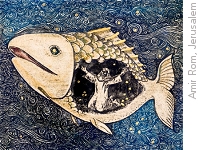
[ "I saw a great oneness between Christ and us, because when he was in pain, we were in pain. All creatures of God's creation that can suffer pain suffered with him. The sky and the earth failed at the time of his dying because he too was part of nature." - Julian of Norwich ]
07.04.24 (Sivan 28, 5784) Where it is written in our Scriptures: "O LORD my God, I cried out to you, and you healed me" (Psalm 30:2), the sages comment that the heartfelt act of crying unto God is in itself a source of healing for spiritual ailments, and that the promise, "I am the LORD who heals you" (אֲנִי יְהוָה רֹפְאֶךָ, Exod. 15:26) means the knowledge that "the LORD is God, and there is none other" (הוָה הוּא הָאֱלֹהִים אֵין עוֹד מִלְבַדּוֹ, Deut. 4:35) is the true cure for troubles of the heart and mind.
Often, however, we resist turning to the LORD God for healing... Like Jonah we first must be "swallowed up" in the consciousness that we are undone and without remedy apart from His direct intervention and deliverance. עָקב הַלֵּב מִכּל וְאָנֻשׁ הוּא מִי יֵדָעֶנּו (Jer. 17:9). Often we find ourselves there - in the "belly of the fish" - and later are resurrected to go forth by God's mercy and grace. Likewise we first see ourselves as dying and go to the cross, finding pardon and given the power of the ruach HaKodesh to live unto God according to the truth.
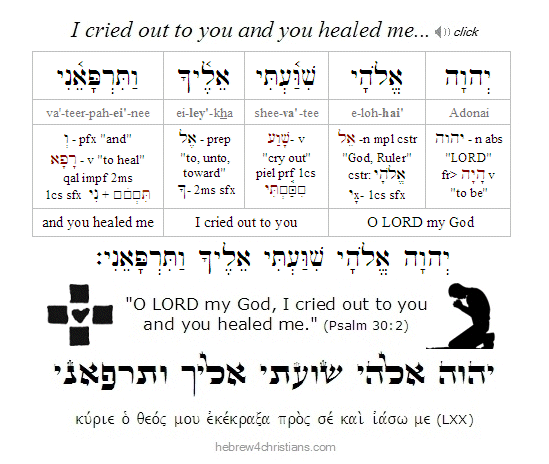 |
Daily Dvar Podcast:
Meaning of Independence Day...
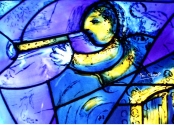
07.04.24 (Sivan 28, 5784) I don't usually write about worldly politics, though in the United States on July 4th we commemorate the Declaration of Independence and the establishment of a Constitutional Republic -- matters that many today discount and some even want to overthrow. So this is an opportune time to think about the significance of "Independence Day" and whether it is something we should indeed honor and celebrate.
In this "Daily Dvar" broadcast (see link below) I discuss the meaning and significance of the Fourth of July "Independence Day" observed the United States, particularly in light of the radical agenda to deconstruct American values and to incite a "second American revolution" at the hands of Antifa and globalists. Note that I recorded this podcast back in 2020 but repost it here because the issues are even more relevant today. I hope you will find it helpful:
Sojourners of Hope...

07.04.24 (Sivan 28, 5784) I have written about the dangers of being "double-minded" or "two-souled" over the years. This is the ambivalent condition of heart wherein the soul desires two (or more) contrary things at once and therefore is in a state of contradiction and fragmentation. "A double-minded person (δίψυχος) is unstable in all his ways" (James 1:8). This is because he is pulled in conflicting directions, unsure of where he wants to go. And since he is unclear and undecided about what he truly desires, he invariably gets lost within a "repetition" of feckless affections, never able to seek for the highest...
If "purity of heart is to will one thing," then impurity of heart is the result of simultaneously willing two things. It is therefore a state of inner opposition, of having two separate "minds" or "wills" that hold contrary thoughts or desires. Yeshua said that "a divided house cannot stand." A divided heart is at war within itself, "two-souled" and unstable in all its ways...
Paradoxically, there is another danger we may face even if we have inwardly resolved to love the love the LORD our God with all our heart, soul, mind, and strength, and that danger is impatience that may be expressed as discontent of heart. We may feel bereft of our heart's deepest longing. We may go through our days, with worldly concerns and the needs of immediacy, lost in holy distraction. We may experience homesickness, ennui, and sorrow as we return to the dust.
Perhaps you can relate to these words of Hadewijch of Antwerp: "I wander alone and must remain far from him to whom I belong above all that I am, and for whom I would so gladly be perfect love. And - God knows - he has fruition of all, and I lack everything through which my soul might repose in him." As the Song of Songs says: "All night long on my bed I look for the one my heart loves." Does not my beloved cry out to my heart: "O my dove, in the clefts of the rock, In the secret places of the cliff, Let me see your face, Let me hear your voice; For your voice is sweet, And your face is lovely."
I stand looking out through my little window, upon the vastness; my eyes fail as I scan the heavenly abyss; inwardly sighing, groaning, crying for his presence...I rehearse my need; I am swallowed up in my emptiness; all I am is hunger, thirst, and longing, hoping for I know not what -- but his touch.
I recall his comforts, like a dream, the smile in his eyes set upon me, my heart aflame. I have felt his touch, in ecstatic moments; I have warmed in his light; I have heard his voice whisper to me in the dancing wind. But then I return - falling back to earth, to the darkness of the shadows; I am caught in the thicket of the fleeting; my heart prisoned by its fears...
It is a painful contradiction between the person I am when I am close to God's heart, leaning upon his breast, and the faint shade of myself wandering the waste places of the desert. Abraham closed his eyes to this world to see the eternal, but when he opened them he saw once again the emptiness of exile that stretched out before him. Everything was changed through his vision, but everything then became strange, and his dream and his love were whisked into the unseen once again.
That is the "aching side" of hope - the waiting - the gap, the delay, the "already-not-yet" expectation, and the separation forged between this lonely world and our eternal home... Ironically enough, hope itself sees the "divided house" that cannot stand, and finds its refuge in the everlasting habitation of God's house. Hope endures in the midst of our dissolution and fading away; even when all we have left is hope to our very last breath.
Alas, our love for God - at least in this life - remains incomplete and unfulfilled. God's love draws our hearts to him in longing, yet we await the realization of salvation, or as Paul puts it. "we ourselves groan within ourselves, waiting for the adoption, to wit, the redemption of our body" (Rom. 8:23). God "wounds us" to seek Him with greater intimacy and fervor. Such a divine disappointment is a hidden blessing, though, since God's love leads to a greater desire to love God, and this desire leads to further desire, and so on. As it says in the Song of Songs: "I opened for my beloved, But my beloved had turned away and was gone. My heart leaped up when he spoke. I sought him, but I could not find him; I called him, but he gave me no answer." Yet the Beloved did not give up...
"In hope we are saved" (τῇ γὰρ ἐλπίδι ἐσώθημεν), but hope that is seen is not hope, for why would someone hope for what he sees? But if we hope for what we do not see, then we must eagerly wait for it with endurance" (Rom. 8:24-25). As Jeremiah encouraged himself: "The LORD is my portion, saith my soul; therefore will I hope in him. The LORD is good unto them that wait for him, to the soul that seeketh him. It is good that a man should both hope and silently wait for the salvation of the LORD" (Lam. 3:24-26). Or as David said: "I wait for the LORD, my soul doth wait, and in his word do I hope. My soul waiteth for the Lord more than they that watch for the morning: I say, more than they that watch for the morning" (Psalm 130:5-6). Though we must await the fulfillment of our hope, we pray to the LORD: "Place me like a seal over your heart, like a seal on your arm; for love is as strong as death, its jealousy unyielding as the grave. It burns like blazing fire, like a mighty flame" (Song 8:6). "Our soul waits for the LORD: he is our help and our shield. For our heart shall rejoice in him, because we have trusted in his holy name" (Psalm 33:20-21).
Therefore do not give up! Never give up! Press on in hope. In our struggle against the darkness, there is an end coming, so don't let your heart grow numb. Encourage yourself with words of hope. Choose to fight (ἀγωνίζομαι - "agonize," "struggle") another day. Do not yield to despair or give place to anxiety. Press on and keep fighting the "good fight" of faith (1 Tim. 6:12). Trust that the deepest longing of your heart will one day be manifest; there is a "future and a hope" reserved for you (Jer. 29:11). In the end you shall see. "All shall be well, and all shall be well and all manner of thing shall be well." Amen.
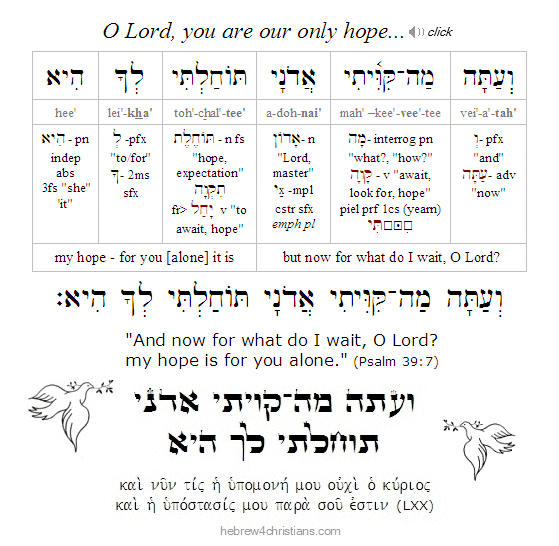 |
The Crowd and its Spies...

07.03.24 (Sivan 27, 5784) According to Numbers Rabbah (a medieval commentary on the Book of Numbers), even those Israelites who disagreed with the majority in the incident of the spies were decreed to die in the desert because they were unwilling to take a stand for the truth, as did Joshua and Caleb. As Dietrich Bonhoeffer once wrote, "Silence in the face of evil is itself evil: God will not hold us guiltless. Not to speak is to speak. Not to act is to act." Or as Edmund Burke is famously reported to have said, "The only thing necessary for the triumph of evil is for good men to do nothing."
In most cases, the dynamic of the crowd (or mob) brings out the worst in human nature, inducing cowardly irresponsibility, appeals to selfishness, and even acts of violence. Soren Kierkegaard warned, "Going along with the crowd" weakens the individual's sense of responsibility by placing it in a "fractional" category. Personal responsibility for living out moral truth is negated by appeals to "consensus" or the "greater good" principle (or worse, by simply "going along with the crowd"). Like Pontius Pilate, most people disingenuously "wash their hands" by conceding to the mob and its lies.
"When we're less accountable we tend to behave in ways we wouldn't," he said. "If I'm among thousands of celebrating people and I were to throw a beer bottle against a brick wall, you'd have a hard time picking me out." ("Sports Riots: The Psychology of Fan Mayhem," National Geographic magazine)
The crowd induces a "gang" mentality (group think) that appeals to the lowest common denominator of depraved human nature, preying on our vulnerability to feel "included," a part of something bigger than ourselves, or sometimes by appealing to our desire to hide ourselves to be unseen, an abstract person, and therefore "anonymous." Its seduction is based on our need for security, though its "reasoning" is inherently fallacious, since it is based on emotion rather than on truth. To the politician or other instigator, the applause or hiss of the crowd are the means of bullying human passions....
"So if we see someone throw a beer bottle and it draws cheers from our group members who we're really identifying with at the time, we might be apt to match that behavior or up it" (ibid.)
Often demagogues tell part of the truth in order to win the crowd. When the ten spies returned to deliver their evil report, they did not lie per se. When they reported that the "land eats up its inhabitants" (Num. 13:32), they referred to the high death rate they witnessed in the land. According to the sages (Sotah 35), the Canaanites had a custom not to bury their dead immediately, but would keep their dead in boxes and wait until a prominent person died to perform a large-scale funeral for the community (the prominent soul was thought to escort the others to heaven). However, when the spies witnessed so many dead being buried, they failed to consider that God was already at work, weakening the enemy by bringing deadly plagues upon the land. The spies did not outright lie in this case, though they were misled because they did not understand what God was doing. Their lack of faith (fear) caused them to misinterpret the situation.
In this regard, "truth" extends far beyond the realm of the objective and factual. Not everything that is not a lie (objectively speaking) is therefore the truth. Truth is not superficial but goes beyond the realm of appearance to the realm of the possible. In other words, truth and faith go hand in hand. We "see" according to our presuppositions and underlying convictions. How we see is as important as what we see... Faith sees the promise. As Yeshua said, "According to your faith, be it done unto you" (Matt. 8:13, 9:29).
Sometimes true words and actions performed in an unloving or spiteful manner are morally blameworthy. Bonhoeffer tells the story about how a teacher once humiliated one of her students by standing him up in front of the class to ask whether his father -- notoriously known as the town drunk -- had been out drinking the night before. The little boy knew the accusation was true but bravely announced "No." When the teacher mockingly asked him again, pressing him for "the truth," the boy was adamant: "NO!" Bonhoeffer's comment was that this little boy spoke more truth by his lie than if he had merely reported the "facts" to the class -- and thereby betrayed the dignity of his father... The truth is not some objective state of affairs that can be reported dispassionately. Without love as its context, such "truth" becomes a lie. Satan keeps his own books.
The way we "see" is determined by how we hear.... The Midrash Rabbah says that the ear (אזֶן) gives life to all the organs of the body. How so? By listening (שׁמע, shema) to the Torah. This idea is repeated in the New Testament: "Faith comes from listening to the Word of God" (Rom. 10:17). The Word of God (דְּבַר־אֱלהִים) is our very life, chaverim. Listening to other voices (regardless of how seemingly well-intended) risks cutting yourself off from the Source of life itself.... Hearing and obeying are linked, and "hearing" the messages of this corrupt world (i.e., "crowd") can eventually make you into an enemy of God Himself (James 4:4). The world always speaks its message to members of its "crooked and twisted generation" (Deut. 32:5). How else do politicians gain their audiences?
In this connection note that the Hebrew word for falsehood (or lie) is sheker (שֶׁקֶר), which the sages note can be rearranged to spell kesher (קֶשֶׁר), meaning a band, gang, or group of people.... The power of the lie is always found in the "group" rather than in the individual, and if enough people in the group repeat something untrue, eventually the individual's conscience will be overruled and the truth will be lost... Consider the propaganda and disinformation constantly served up by the evil princes of mass media, for instance...
Following the LORD is not based on "majority rule," much less does it have anything to do with approval from the anonymous crowd. Indeed, Yeshua was crucified because He would have nothing to do with the crowd (though He addressed himself to all). No one gets to heaven by following a crowd (or attending a church, joining a political party, etc.) but by surrendering their individual will to the reign of Yeshua. "For it is no empty word for you, but your very life, and by this word you shall live" (Deut. 32:47). Following the crowd (world) and following Yeshua are therefore entirely antithetical ways of life that will lead to collision. Guard your heart with all diligence (Prov. 4:23).
May God give us all ometz lev ("strength of heart," i.e., courage) to stand for Him, despite the pressures of this world and its ongoing deception. Amen.
Hebrew Lesson
Psalm 119:29 reading (click):
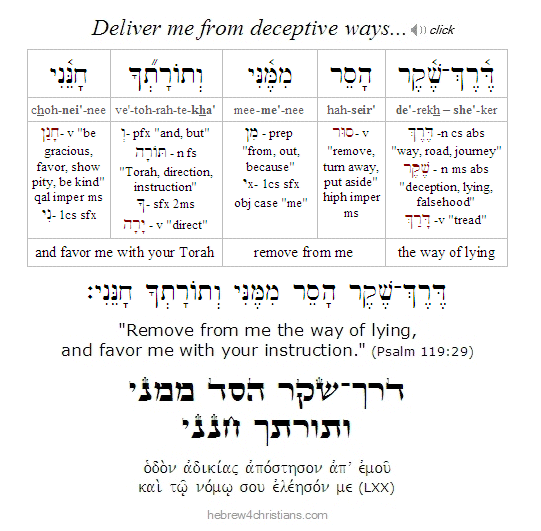 |
The Narrow Door...

07.03.24 (Sivan 27, 5784) "Make every effort to enter through the narrow door, because many, I tell you, will seek to enter but will not be able" (Luke 13:24). The narrow door is the way of humility (דרך עֲנָוָה), assuming a low position, crawling, if you will, and making yourself small... It is to confess the truth of our condition and to trust in God alone for deliverance.
The narrow door is the way of faith - trusting God's compassion and righteousness given on our behalf (2 Cor. 5:21). The large, wide-open door is designed for the crowd and its various circuses. Beware of the world that seeks to assimilate the soul: beware of becoming part of the crowd! The individual is lost and overwhelmed in the midst of the crowd and its momentum. The crowd assimilates the soul, laughs at the notion of individual responsibility, and abandons itself to the gravity of fallen natural forces... The life of faith, on the other hand, refuses to regard the individual human heart as a triviality. Faith is an individual struggle, a walk into unknowing; it is the way of the sojourner who feels uneasy in this world of shadows...
God promises to be always with us and to help us stay resolute, even as we struggle through the vanity and darkness of this age. Press on, friend: the day and the hour draw near!
Hebrew Lesson
Psalm 25:9 reading (click):
Personal note: I've been sick the last few days, friends. A lot of body aches and exhaustion. I am writing a longer meditation on this week's Torah portion I hope to post later this evening. Thank you for praying for me; the Lord knows I need it! Shalom and blessings on you. - John
The Breath of God...
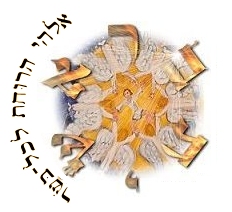
07.02.24 (Sivan 26, 5784) A verse from this week's Torah portion (i.e., Korach) reveals another great Hebrew name for God: Elohei ha-ruchot lekhol basar (אֱלהֵי הָרוּחת לְכָל־בָּשָׂר), which can be translated "the God of the breath of all flesh" (Num. 16:22). The LORD is the Source of your breath, the One who exhales to you nishmat chayim (נִשְׁמַת חַיִּים), the "breath of life" that enables you to live (Job 12:10).
To understand this, the sages use the analogy of a glassblower who creates a glass vessel. Just as the glassblower blows into a tube to form a vessel from molten glass, so the breath (i.e., neshamah: נְשָׁמָה) that comes from the LORD functions as spirit (i.e., ruach: רוּחַ) that forms and fills the human soul (i.e., nefesh: נֶפֶשׁ). Note that the Name YHVH (יהוה) first appears in this connection (Gen. 2:7), a Name that means "God is Present" (Exod. 3:14) and "God is Mercy" (Exod. 34:6-7). Note also that each letter of the Name YHVH represents a vowel sound (i.e., breath), suggesting that God's Spirit is as close as your very next breath. Like the wind that cannot be seen, so is the spirit the essential part of your identity. Yeshua breathed on his followers and said, "Receive the Holy Spirit" (John 20:22).
The special Name Elohei ha-ruchot lekhol basar appears only one other place in the Torah. After accepting the fact that he would soon die and therefore be unable to finally lead the people into the promised land, Moses prayed: "Let the LORD (יהוה), "the God of the spirits of all flesh" (אֱלהֵי הָרוּחת לְכָל־בָּשָׂר), appoint a man over the congregation who shall go out before them and come in before them, who shall lead them out and bring them in, that the congregation of the LORD may not be as sheep that have no shepherd." So the LORD said to Moses, "Take Joshua the son of Nun (יְהוֹשֻׁעַ בִּן־נוּן, lit. "son of life"), a man in whom is the Spirit (רוּח), and lay your hand on him" (Num. 27:16-18).
The Talmud notes that the word Nun (נוּן) means "fish," a symbol of activity and life. Joshua, the chosen one who succeeded Moses and led the people into the Promised Land, was the "Son of Life" - a clear picture of Yeshua our Messiah, the "spirit-filled good Shepherd" who would lay down His life for the sheep (John 10:11). The LORD is indeed the "God of the breath of all flesh." When Yeshua cried out, "It is finished" and breathed his last breath as He died for our sins upon the cross, the greatest exhalation of the Spirit occurred, the greatest sigh, the greatest utterance was ever declared. The sacrificial death of Yeshua for our deliverance was God's final word of love breathed out to those who are trusting in Him.
Hebrew Lesson
Job 12:10 reading (click):
Stewardship for Life...
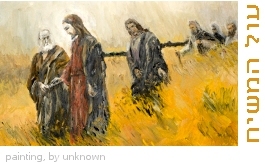
[ "One life on this earth is all that we get, whether it is enough or not enough, and the obvious conclusion would seem to be that at the very least we are fools if we do not live it as fully and bravely and beautifully as we can." - Frederick Buechner ]
07.02.24 (Sivan 26, 5784) When I first read the parable of the "unjust steward" (see Luke 16:1-13), I was a bit puzzled. Yeshua tells the story of a certain rich man who had discovered that his "steward" (or manager) was stealing from him, and he therefore decided to remove him from his service. The steward, in his desperation, then quickly called his employer's debtors and gave each a significant discount on the debt they owed. In this way the steward sought to gain their favor so that he would be taken care of in days to come...
Now what is surprising about this story is that Yeshua commended the unjust steward for his shrewdness, and then he cryptically added: "Make friends for yourselves by means of the "mammon of unrighteousness" (μαμωνᾶ τῆς ἀδικίας), that when it fails, they may receive you into the eternal dwellings" (Luke 16:9). Wait, what? How are we to understand this?
At first glance the story seems simple enough, at least in worldly terms: Do someone a favor in their need, and they will reciprocate regarding your need: "Scratch my back, and I will scratch yours." It is likely that the steward thought that if he did some favors for others, they would return the favor in the days to come. Moreover the steward, savvy as he was, likely understood that the interest charged to the debtors was technically forbidden by Jewish law, and therefore he reasoned that his wealthy employer could not accuse him of larceny without therby incriminating himself. He could therefore leverage the loss of his job and make a profit for himself at the same time. Despite the devious ploy, however, the rich man "commended" (i.e., ἐπαινέω, "praised") the steward because he had acted shrewdly. "Check Mate..."
Now this story is not to suggest that our righteous Lord approved of such devious financial schemes and deception, though it is likely Yeshua told the story to illustrate the importance of seizing opportunities in life with an eye to future benefit. He was drawing a comparison: just as the unjust steward managed his desperation to secure opportunities for his future, so we should manage our resources and opportunities so that we will be welcomed into the "eternal habitations" of heaven itself. If worldly wealth can be used to gain friends that will welcome you into their hearts, then how much more should such wealth be used to secure the "true riches" of blessing of the world to come?
Yeshua admonishes both his followers as well as those who rely on worldly wealth: The one who is faithful with little is faithful also in much, but the one who is unjust in the least is unjust also in much. If we are not trustworthy in handling worldly wealth, how will we be so regarding heavenly riches? He therefore said that it is not possible to serve both God and "mammon," a word that means possessions of all kinds -- not just money or silver. If you place mammon as your highest good or concern, you cannot serve God, since covetousness, desire, and various fears will demand all of your heart, soul, and strength.
Our stewardship of mammon is therefore a spiritual test, since mammon will either control us as we seek worldly power and personal satisfaction, or we will yield all that we have to the LORD for godly and righteous purposes that will yield interest in this world and riches in the world to come. When Yeshua said "gain friends so that you will be welcomed into eternal habitations," he meant that we should be rich toward God by helping others, by promoting organizations that teach and share the message of the gospel, and so on (Luke 12:21).
Therefore invest your life and your resources "shrewdly" for eternal purposes. Whether you have much or little, do what you can for the sake of the Kingdom of God. The stewardship of your resources has eternal significance and consequences. Imagine that when your life is over how the account ledger will read... Will your life be credited by giving the gifts you were given for the blessing of others, or will it expose your worldly debits and fears? "Follow the money" and you will see what you find to be most important, after all.
We are all stewards - not owners - of whatever we have. In Hebrew, we do not say "I own x," but instead say "there is to me x" (יש לי) implying that God alone is the Source and Owner of reality. Wealth can be a blessing or a curse depending on how it is used. Our Lord teaches that we should be "shrewd" in our investments for the sake of what really matters. The choices we make today will follow us tomorrow, and indeed, for eternity.
Hebrew Lesson
Proverbs 11:18 reading (click):
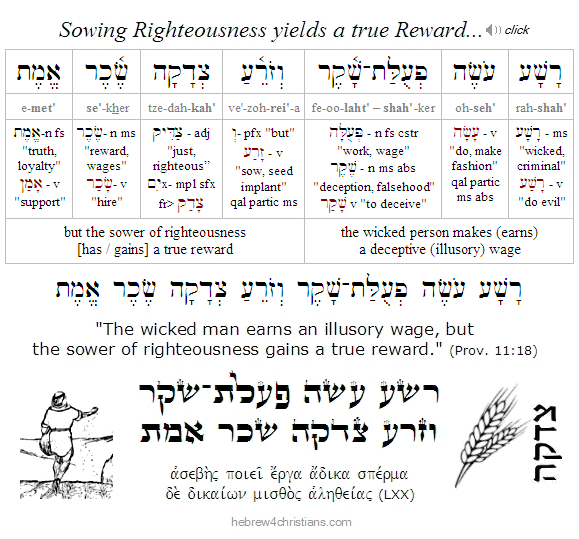 |
From Faith to Faith...

07.01.24 (Sivan 25, 5784) If you were ask to God for just one thing, what would it be? Our deepest yearnings are like prayers. Whatever the heart genuinely seeks, it will find. The person who pursues righteousness will find it, just as evil comes to the person who searches for it (Prov. 11:27). Therefore the voice of wisdom cries out, "I love those who love me, and those who seek me diligently find me" (Prov. 8:17), and the prophet shouts, "Seek the LORD while he may be found, call upon him while he is near" (Isa. 55:6). God is near to us in Yeshua, who said, "Ask, and it will be given to you; seek, and you will find; knock, and it will be opened to you. For everyone who asks receives, and the one who seeks finds, and to the one who knocks it will be opened." As you believe, so you will receive (Matt. 21:22).
This is the "like for like" principle of faith. Forgive us as we forgive; judge us as we judge; love us as we love; make us righteous as we take hold of righteousness, give us courage as we believe, and so on. As Isaiah said to fearful king Ahaz: "If you will not be firm in faith, you will not be firm at all" (Isa. 7:9). Your "amen" echoes the "amen" of heaven: "Let it be done for you according to your faith" (Matt. 9:29).
The principle of "let it be according to your faith" is profound and is a two-edged sword, since it applies not just to matters of velleity and hope, but also to murmurs of the heart and discontent. The sages said that the manna in the desert would taste good or bad depending on the heart attitude of the person. Likewise, when the people arrived at Marah, they could not drink the water because it was "bitter" (מָרָה), though the Hebrew text allows us to read that it was the people themselves who were bitter - ki marim hem (כִּי מָרִים הֵם), and their bitterness made the waters seem bitter as well (Exod. 15:23).
Hebrew Lesson
Proverbs 21:21 Hebrew reading (click):
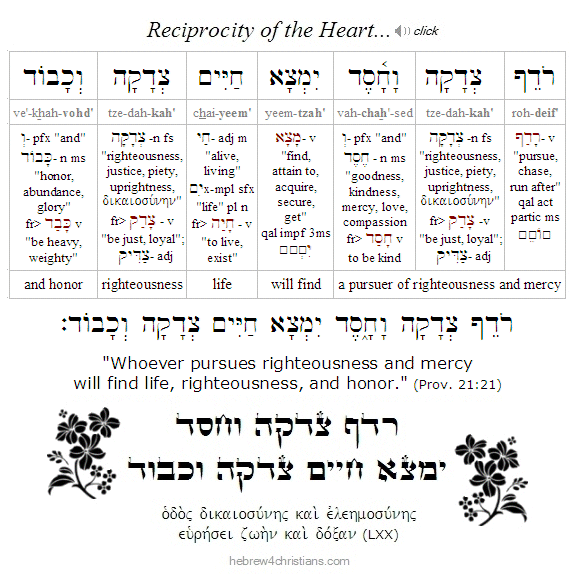 |
"Whoever pursues righteousness and kindness will find life, righteousness, and honor" (Prov. 21:21). Notice that the subject of this verse is a participle that comes from the verb radaf (רָדַף), which means to follow after, or to pursue, as in a chase or a hunt. This same verb is used when King David exclaimed, "surely goodness and love will pursue me (יִרְדְּפוּנִי) all the days of my life" (Psalm 23:6). King David understood that as he pursued God, so God's love would pursue him! In other words, as we seek, so we are sought by God; as we draw near to God, so He will draw near to us (James 4:8).
Notice further the repeated use of the word "righteousness" (i.e., tzedakah: צְדָקָה) in this verse. When we pursue God's righteousness, we will find it, and we will be declared righteous (i.e., tzaddik: צַדִּיק) and given life (i.e., chayim: חַיִּים) and honor (i.e., kavod: כָּבוֹד). "In the path of righteousness is life, and in its pathway there is no death" (Prov. 12:28). Therefore Yeshua calls us to "seek first the kingdom of God and His righteousness, and all these things will be added to you" (Matt 6:33).
The prophet expresses hope: "Let us know; let us press on to know the LORD; his going out is sure as the dawn; he will come to us as the showers, as the spring rains that water the earth" (Hos. 6:3). Salvation is "of the LORD." May God help us pursue him b'khol levavkha - with all our heart - because the He has promised, "You will seek me and find me, when you seek me with all your heart" (Jer. 29:13). Amen.
That which is of Ultimate Concern...
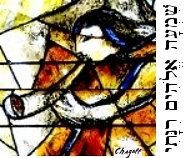
[ The following entry concerns this week's Torah reading, parashat Korach... ]
07.01.24 (Sivan 25, 5784) We read in our Torah portion for this week the terrible fate of Korah and his co-conspirators: "And the earth opened its mouth and swallowed them up" (Num. 16:32), which the sages say metaphorically refers to being consumed by this world, its desires, and its end...
Life is a serious business, an irrepeatable opportunity. Many trifle their way to the grave, fully unprepared for the shock of the world to come... How few make it the great business of life to prepare themselves "until their change comes" (Job 14:14); how few consciously number their days to obtain a heart of wisdom (Psalm 90:12)? We mustn't fool ourselves by thinking we have a long road ahead before we face who we are at the time of our death (Luke 12:19-21). "No one knows the day or hour," yet it is certain to come, and wisdom bids us be prepared. All must die; there is no escape (Heb. 9:27). "No man has power to retain the spirit, or power over the day of death. There is no discharge from this war, nor will wickedness deliver those who are given over to it" (Eccl. 8:8).
In light of this somber truth, do you reflect on its significance? Have you taken time to consider how it will be for you at your death? Allow such thoughts to awaken you from your careless and unwatchful state. Lay up treasure in heaven (Matt. 6:20). You are not saved by doing ma'asei tovim (good works) but they evidence genuine faith (Eph. 2:10). Good works validates the presence of faith, and its absence is a sign of "Laodicean" apostasy (Rev. 3:14-22). Considering the vastness of eternity, human life is likened to a mere vapor that quickly passes away (Psalm 103:15-16). It is madness to put off that which is of ultimate concern until the last moment. Therefore "repent one day before you die." Live each day as if it might be your last before your judgment (Heb. 9:27), and may our blessed God help you to "seek the LORD while He may be found; call upon Him while He is near" (Isa. 55:6).
כי־ידעתי מות תשׁיבני
ובית מועד לכל־חי
kee-yah·da'·tee · mah'·vet · te·shee·vei'·nee
oo·veit · moh·eid · le·khol-chai

"For I know that you will bring me to death,
and to the meeting place for all the living."
(Job 30:23)

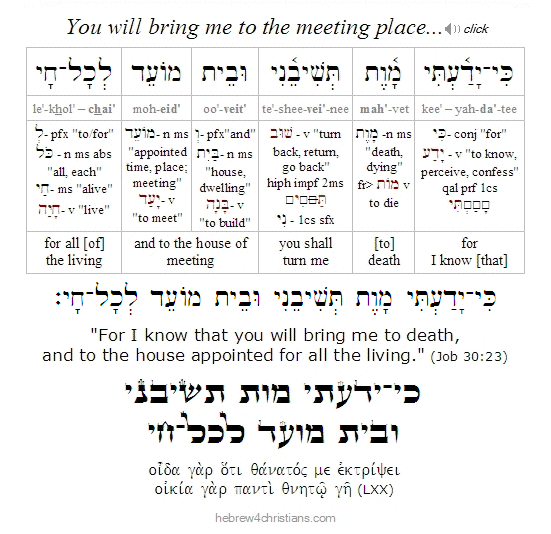 |
Of course dying in the LORD assumes you are really "in Him," that is, that you are a person whose heart is known by Him (1 Cor. 8:3). You can't die in him if you have never lived in him. In this world we learn to die, and as we die in Him, so we will live in him. Resolve this within your heart: "Blessed are the dead who die in the Lord" (Rev. 14:15).
Concerning the prospect of death we are full of confidence, of course, since Yeshua has overcome death for us and secured our place in heaven (John 11:25; Heb. 2:9-10). "We must all die; we are like water spilled on the ground, which cannot be gathered up again. But God will not take away life, and he devises means so that the banished one will not remain an outcast" (2 Sam. 14:14). Though physical life inevitably returns us to dust (Heb. 9:27), death does not have the final word, since God wonderfully "devises the means by which the banished are brought back home." If you belong to the Lord, your death is the day of precious homecoming to be with your beloved Savior: "For me to live is Messiah, and to die is gain" (Phil. 1:21). As it is written, "just as we have borne the image of the man of dust, we shall also bear the image of the man of heaven" (1 Cor. 15:49). Amen.
 |
The Projection of Korah...
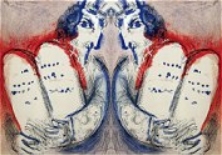
07.01.24 (Sivan 25, 5784) In our Torah reading for this week (i.e., parashat Korach), Moses' cousin Korah brazenly accused Moses of self-aggrandizement and superiority by saying, "Why do you exalt yourself above the assembly of the LORD? ... Is it a small thing that you have brought us up out of a land flowing with milk and honey to kill us in the desert, that you also make yourself a prince over us?" (Num. 16:3,13). The Talmud comments: "One who seeks to disqualify another projects his own defects upon him." Korah's own self-exaltation and vanity led him to suppose that Moses was likewise proud and vain. His envy so twisted his perspective that he saw good as bad and bad as good. For him Egypt was the land "flowing with milk and honey" and Moses - not Pharaoh - was the real tyrant! In this connection the sages have said that other people serve as mirrors, and the defects we see in them reflect our own. Korah needed to see that his envy of Moses was rooted in fear, and that healing would come if he would let go and trust that God was in control of his life.
We can learn from the self-deception of Korah -- as well as his terrible end... "As you judge another you condemn yourself, for you that judge do the same things" (Rom. 2:1). How you react to another person reveals what is within your own heart, and this provides the opportunity to find healing by doing teshuvah and extending compassion to yourself. When you condemn another you are hurting yourself, after all. It is not a matter of factual truth as much as it is of the truth of hope and love. As we forgive others, so we find our own forgiveness (Luke 6:37), but if we insist on our rights, we find ourselves in hell... Fire offered falsely will be answered by the fire of God's judgment.
Hebrew Lesson
Psalm 18:25-26 reading (click):
<< Return
|



















































